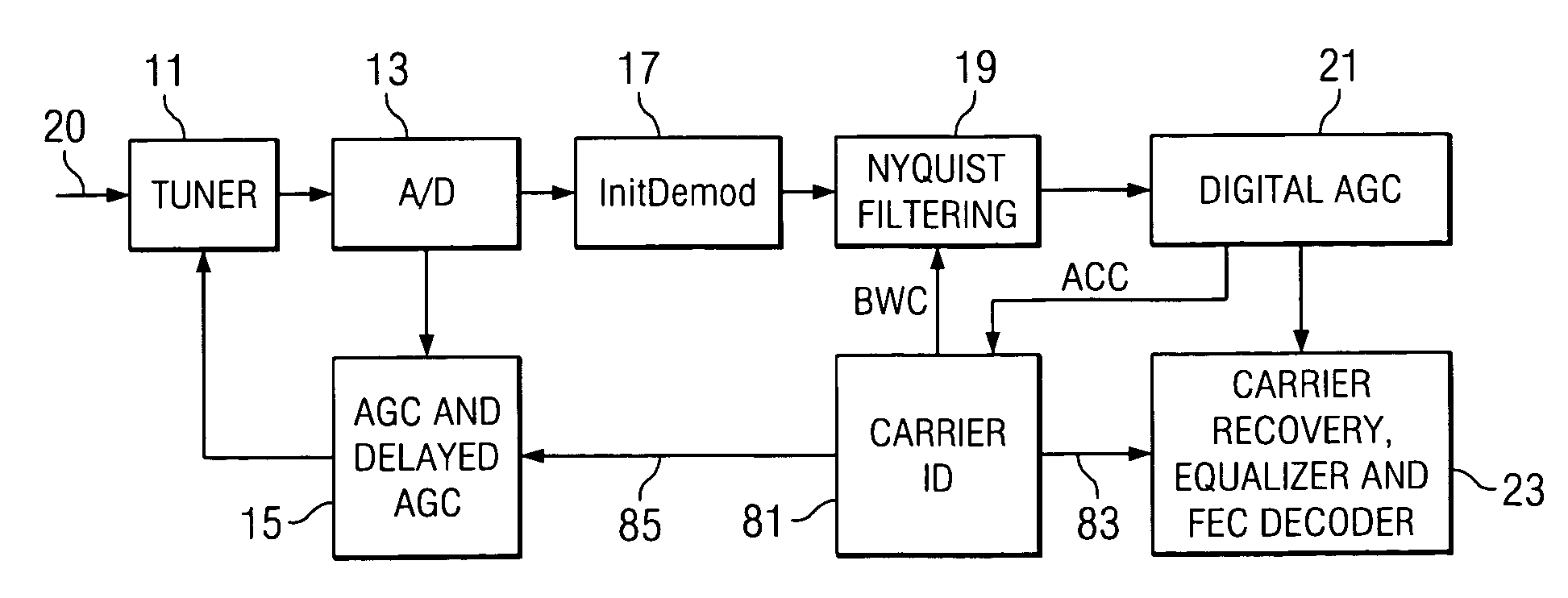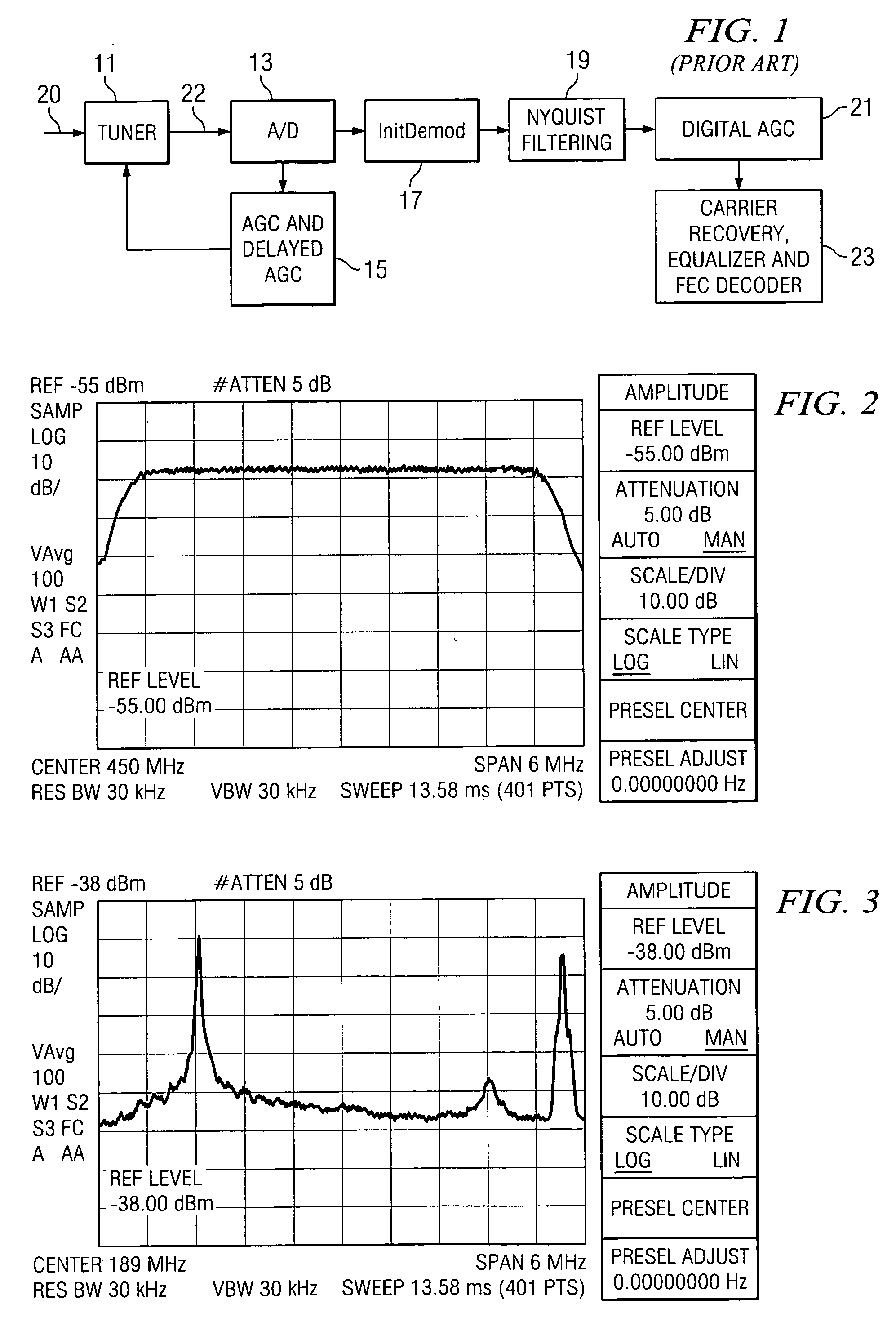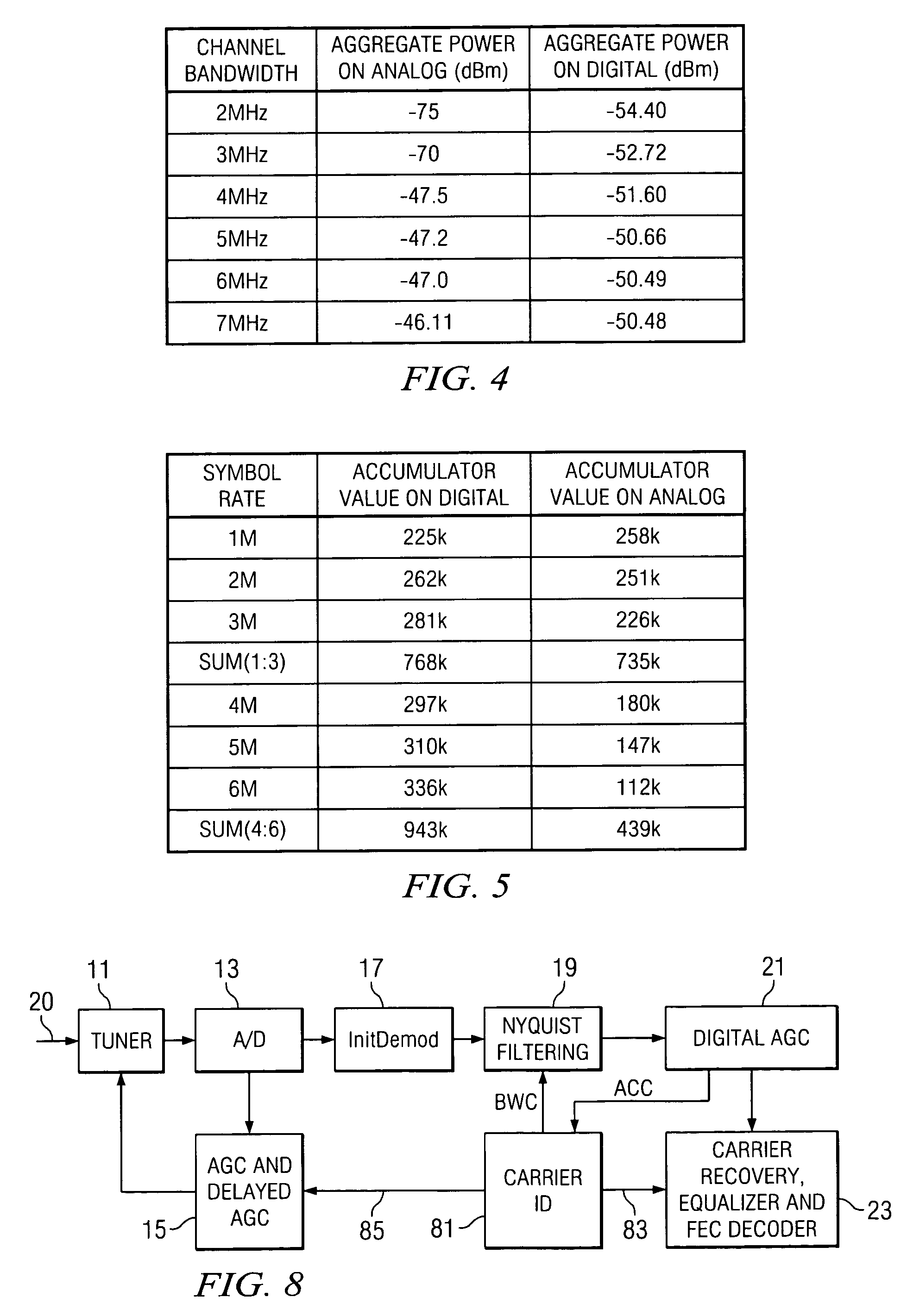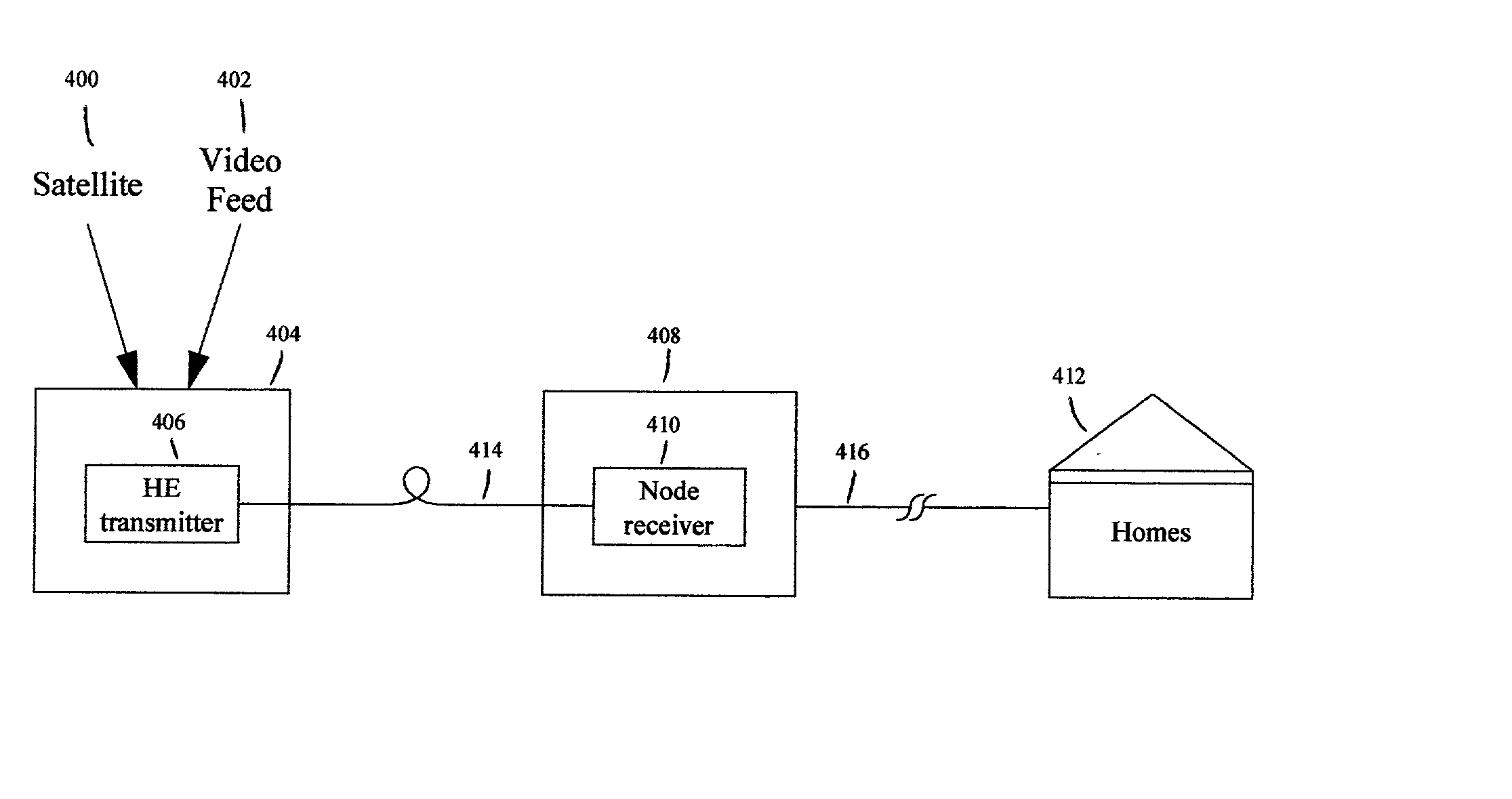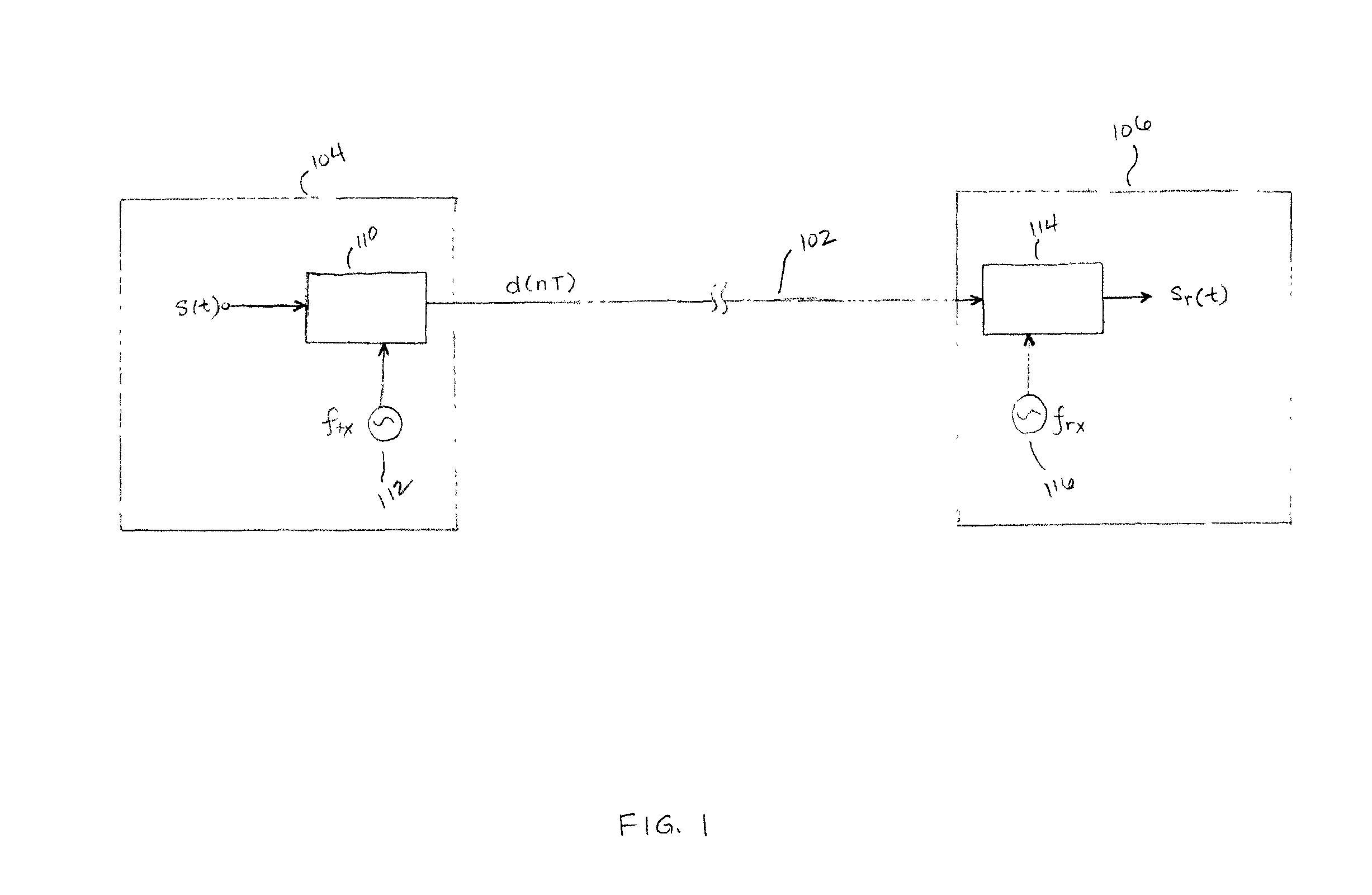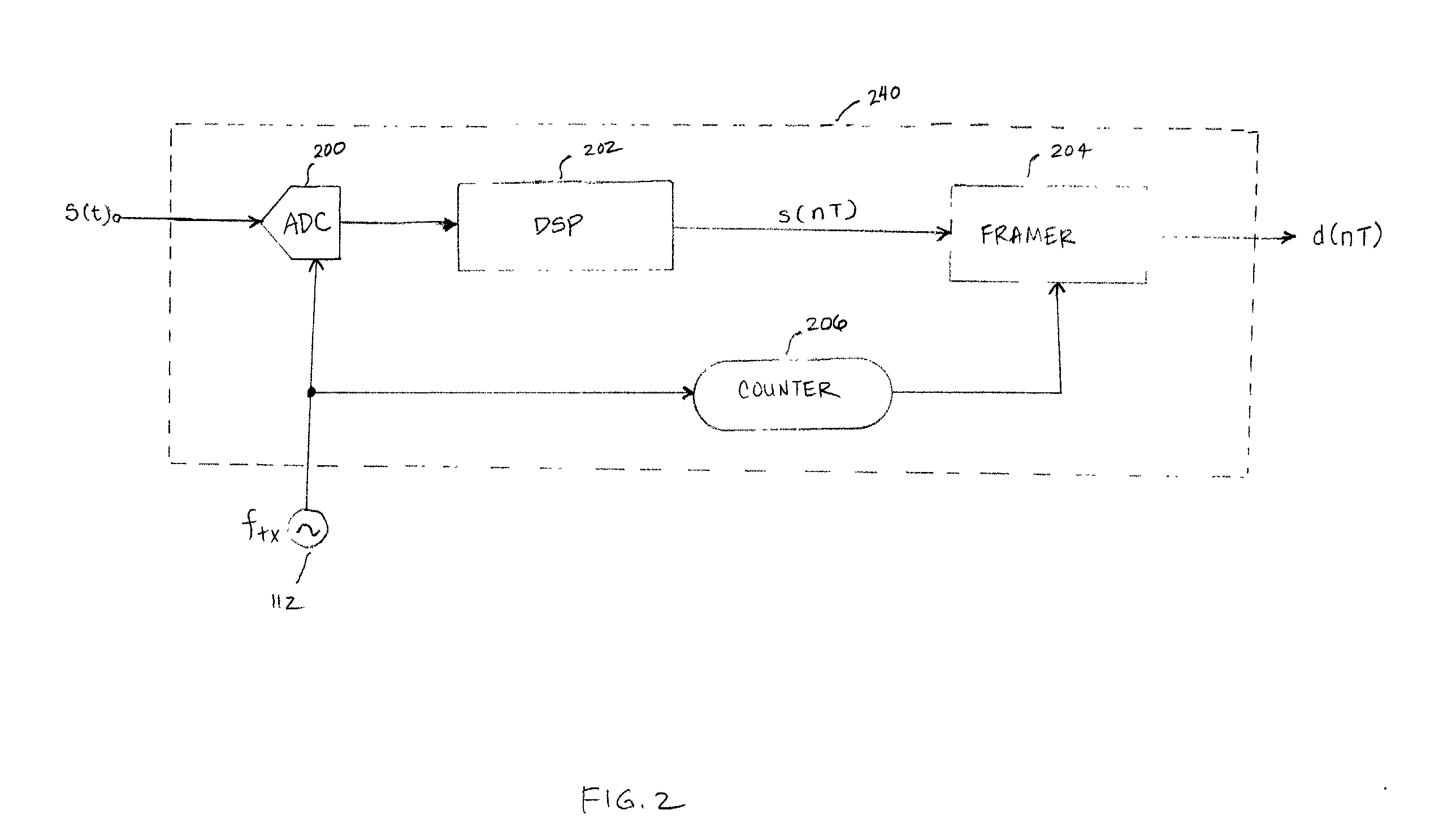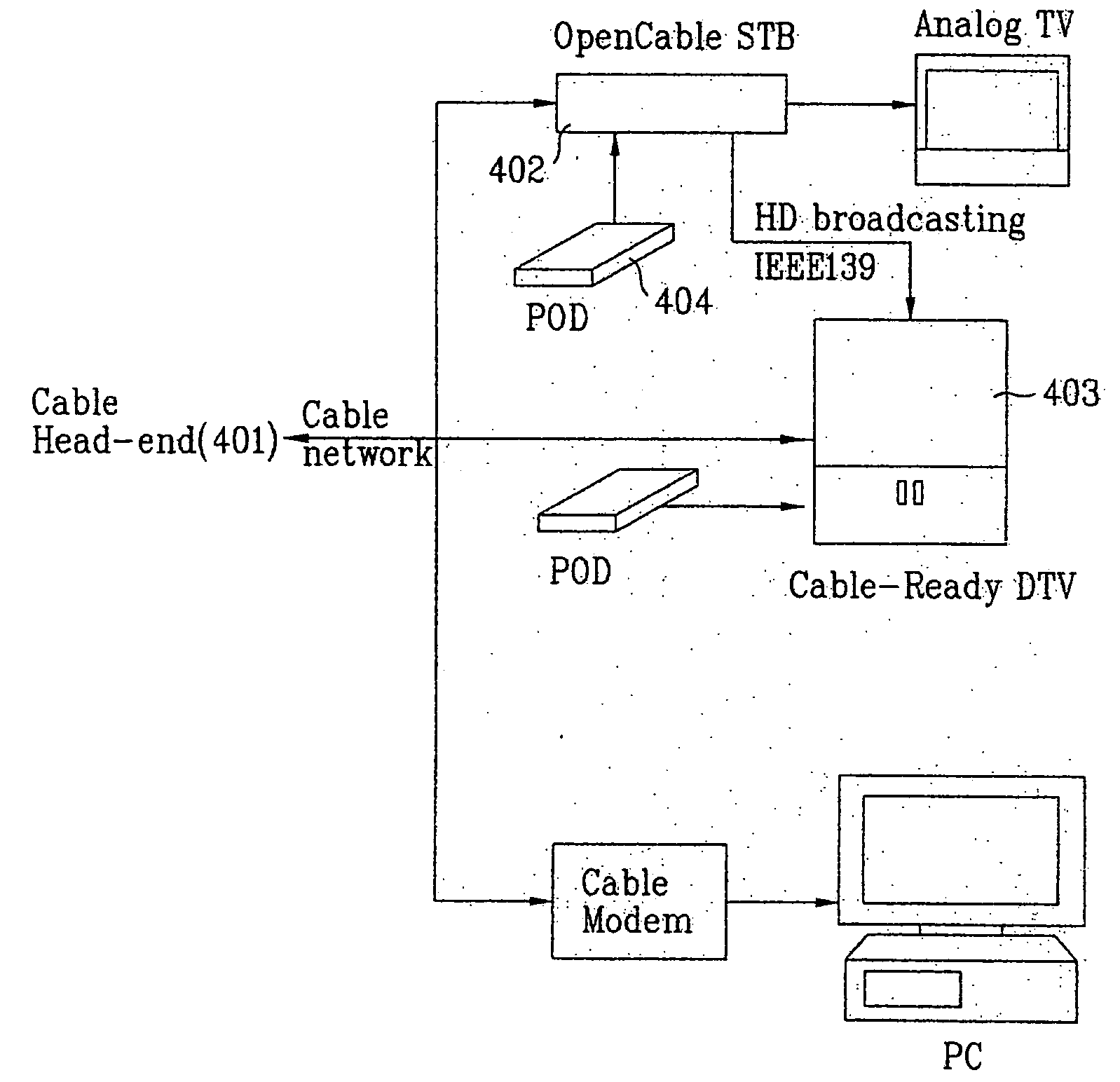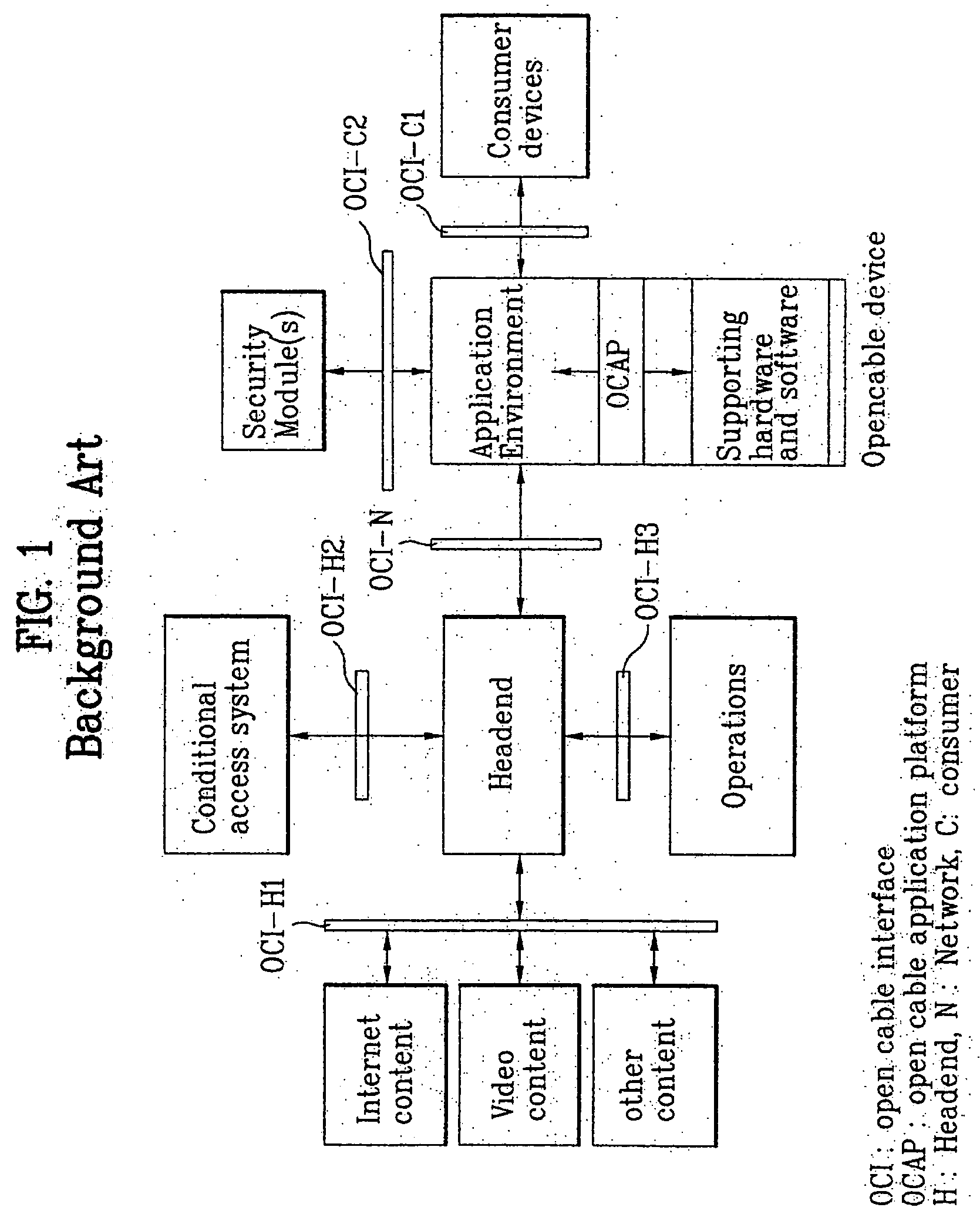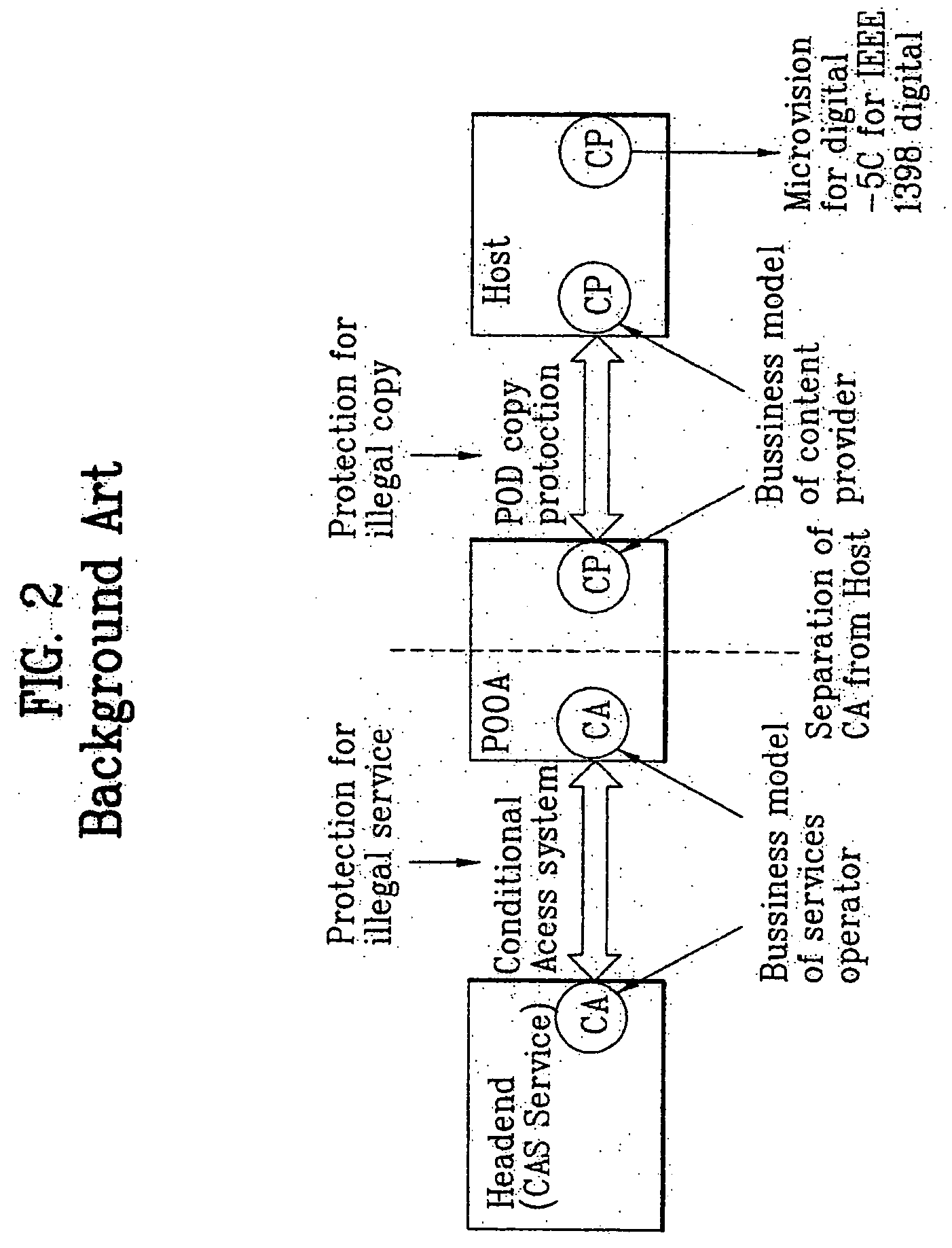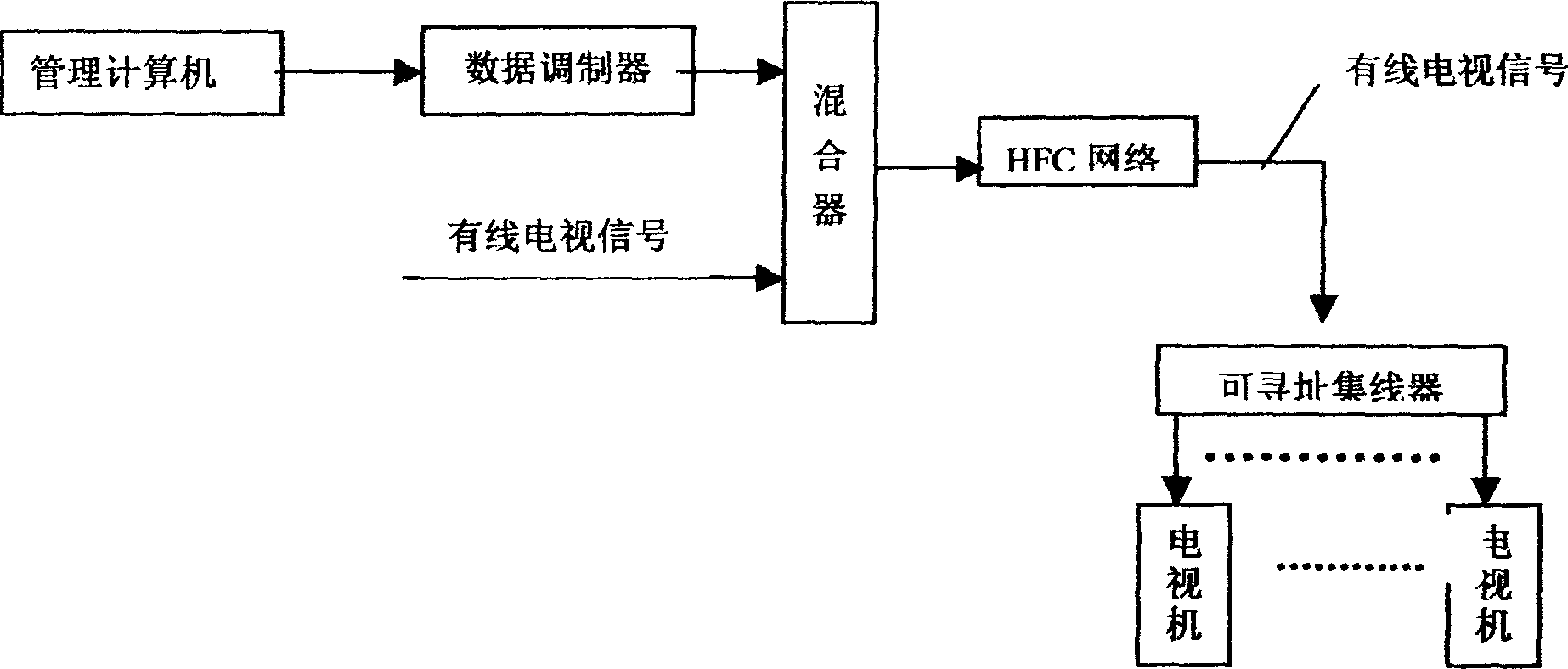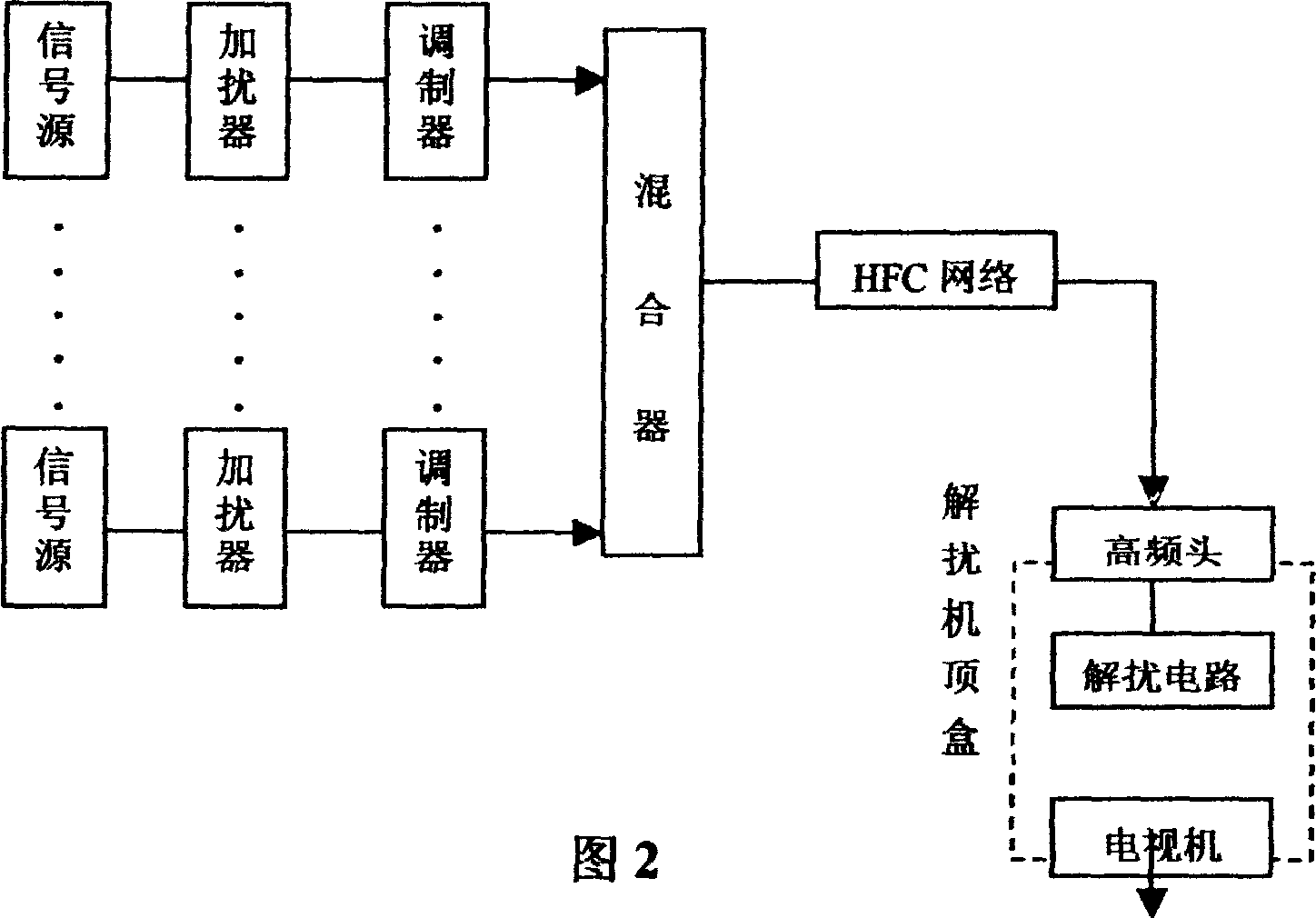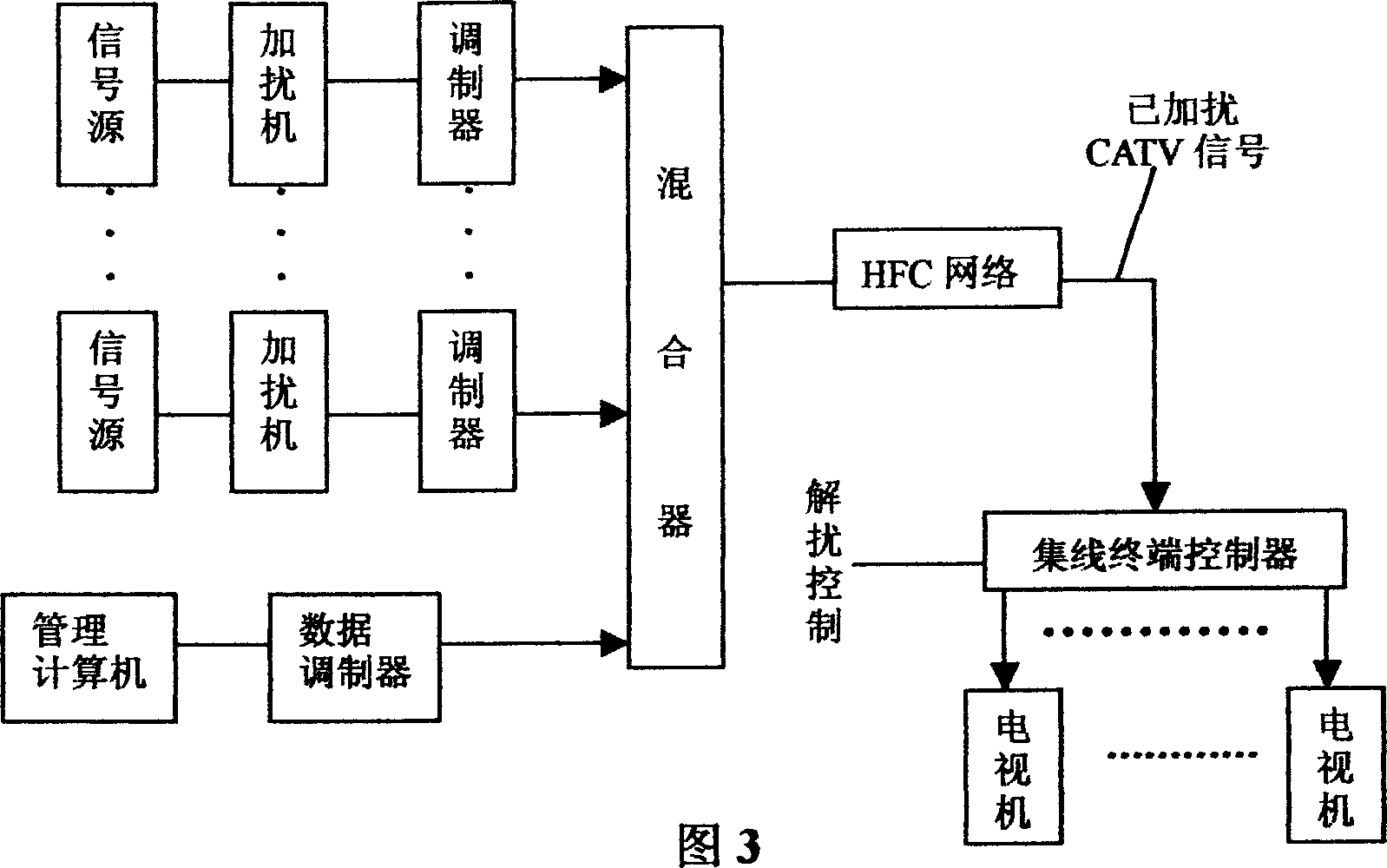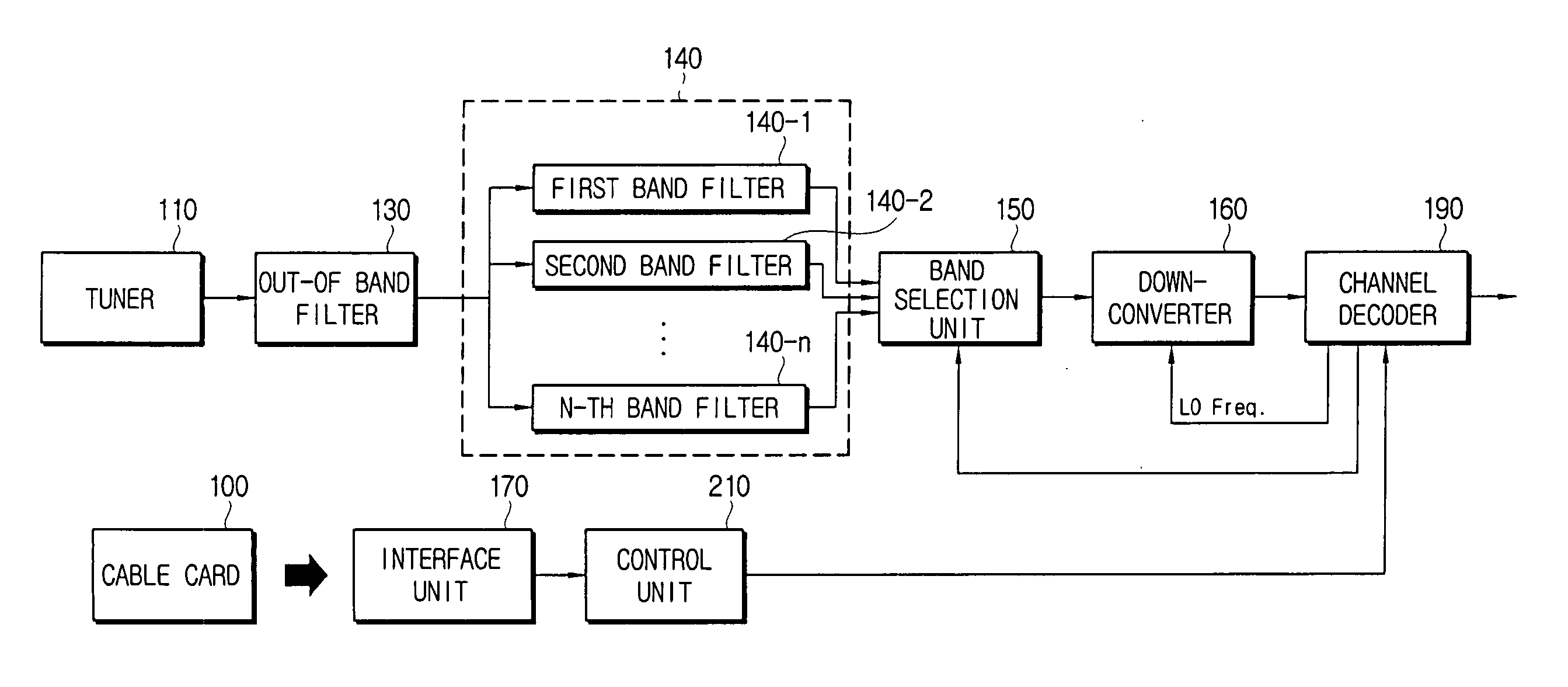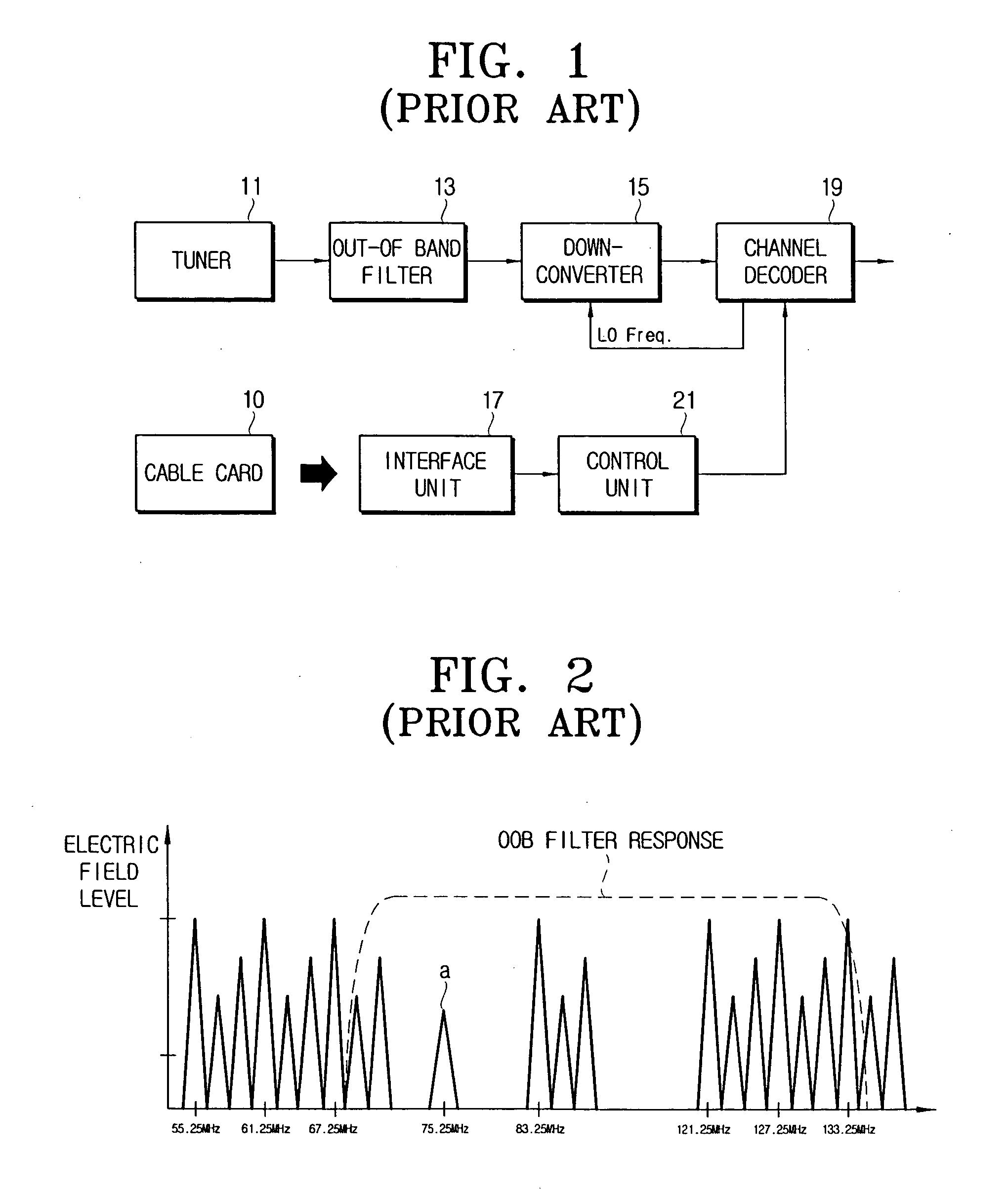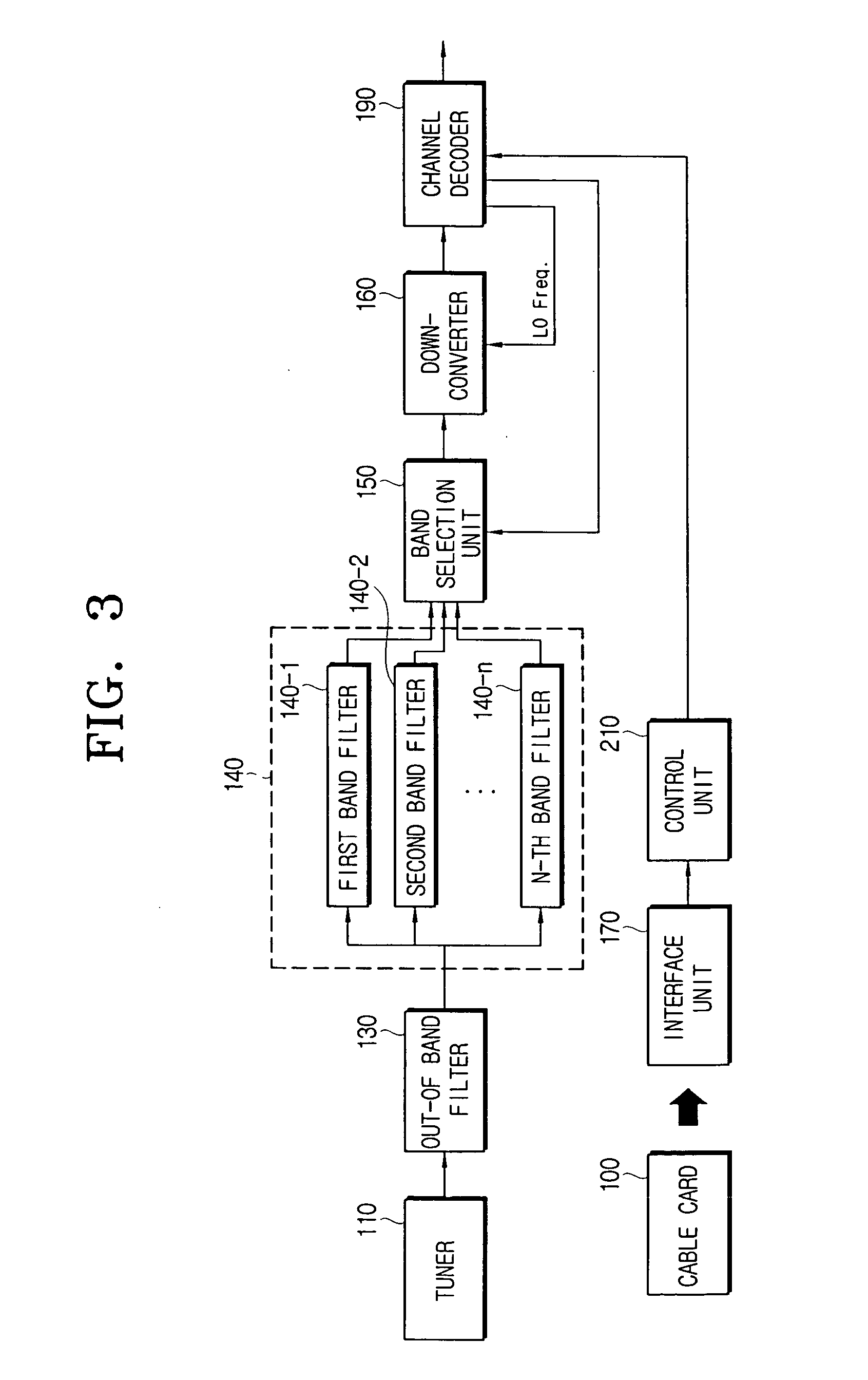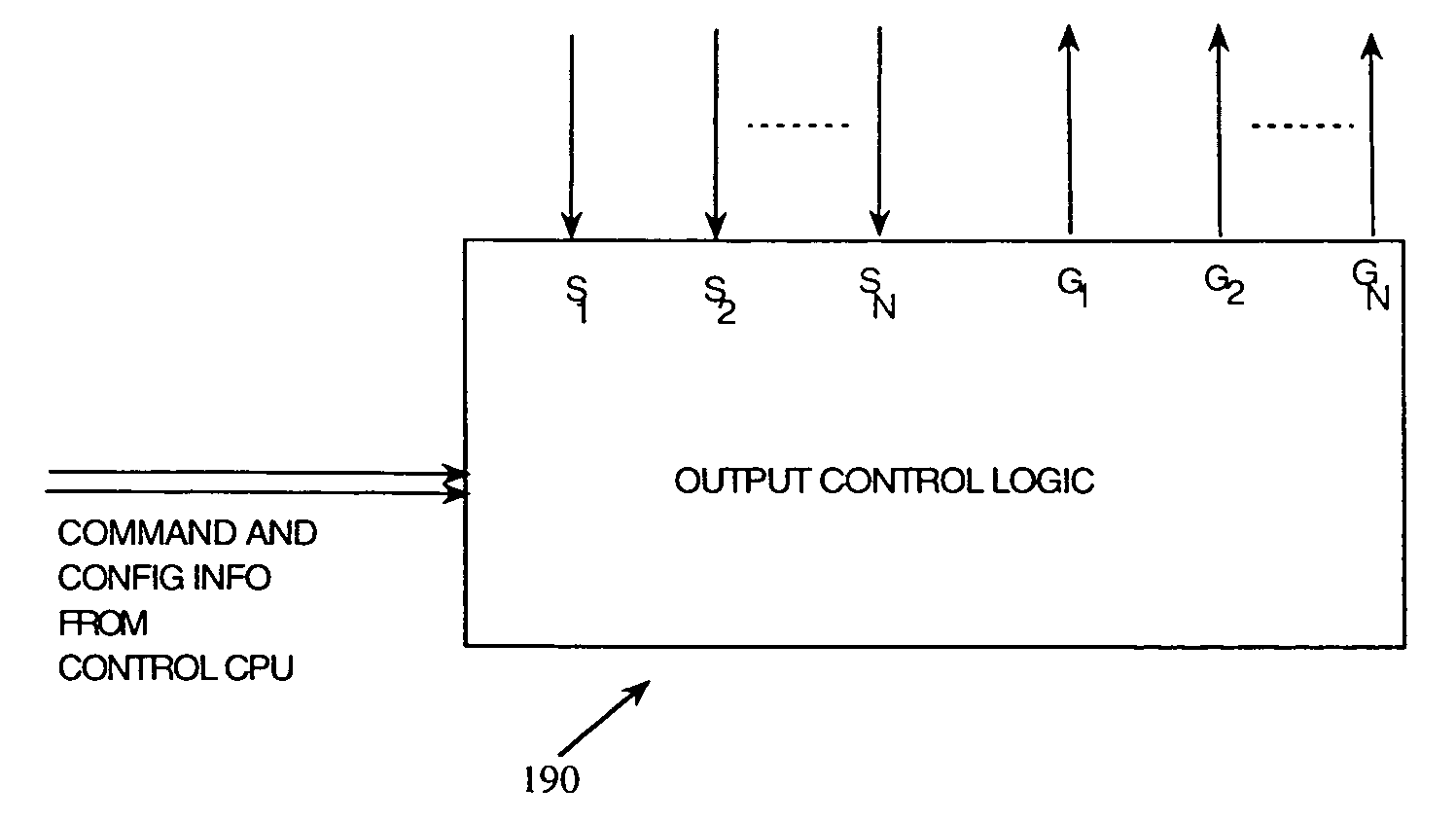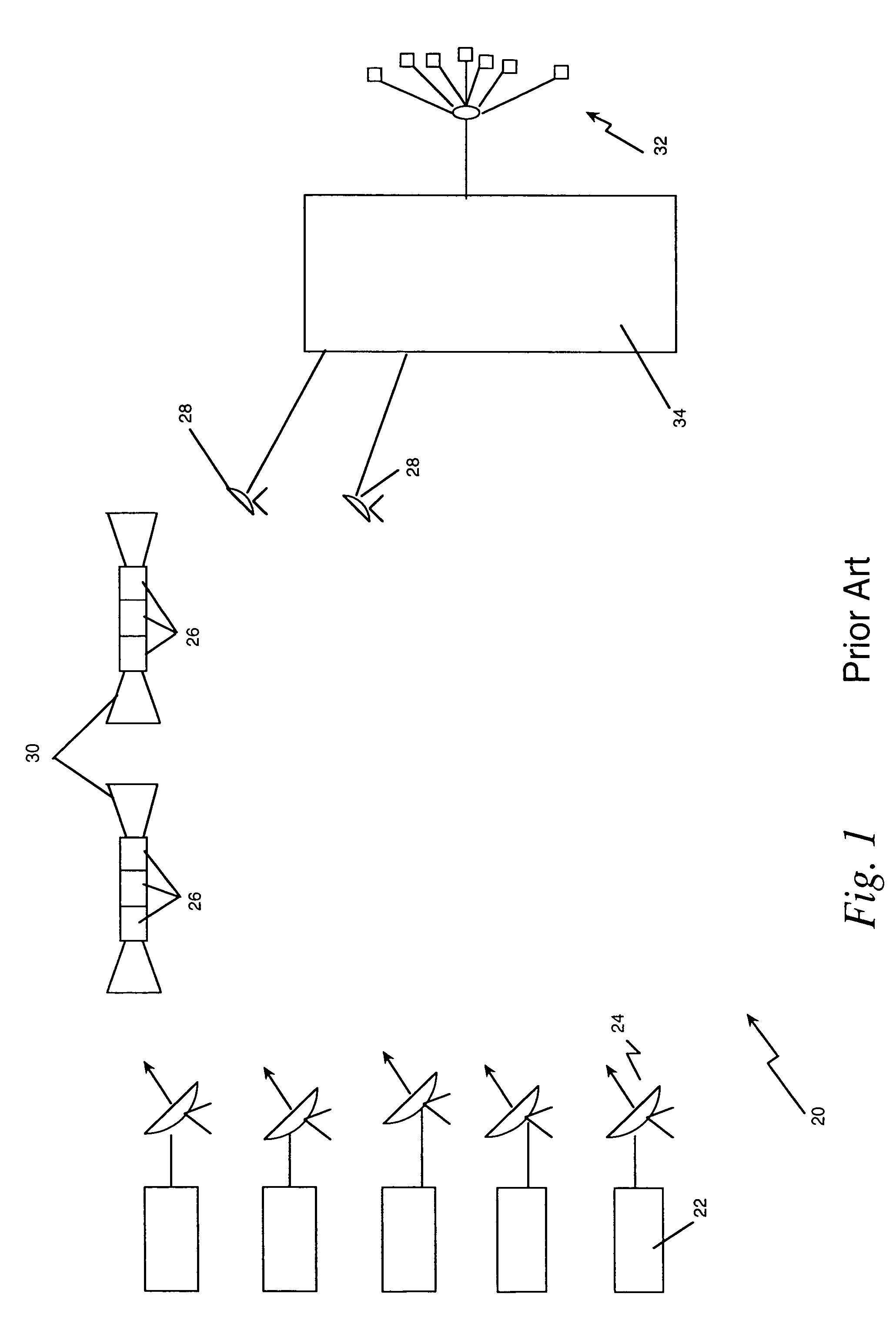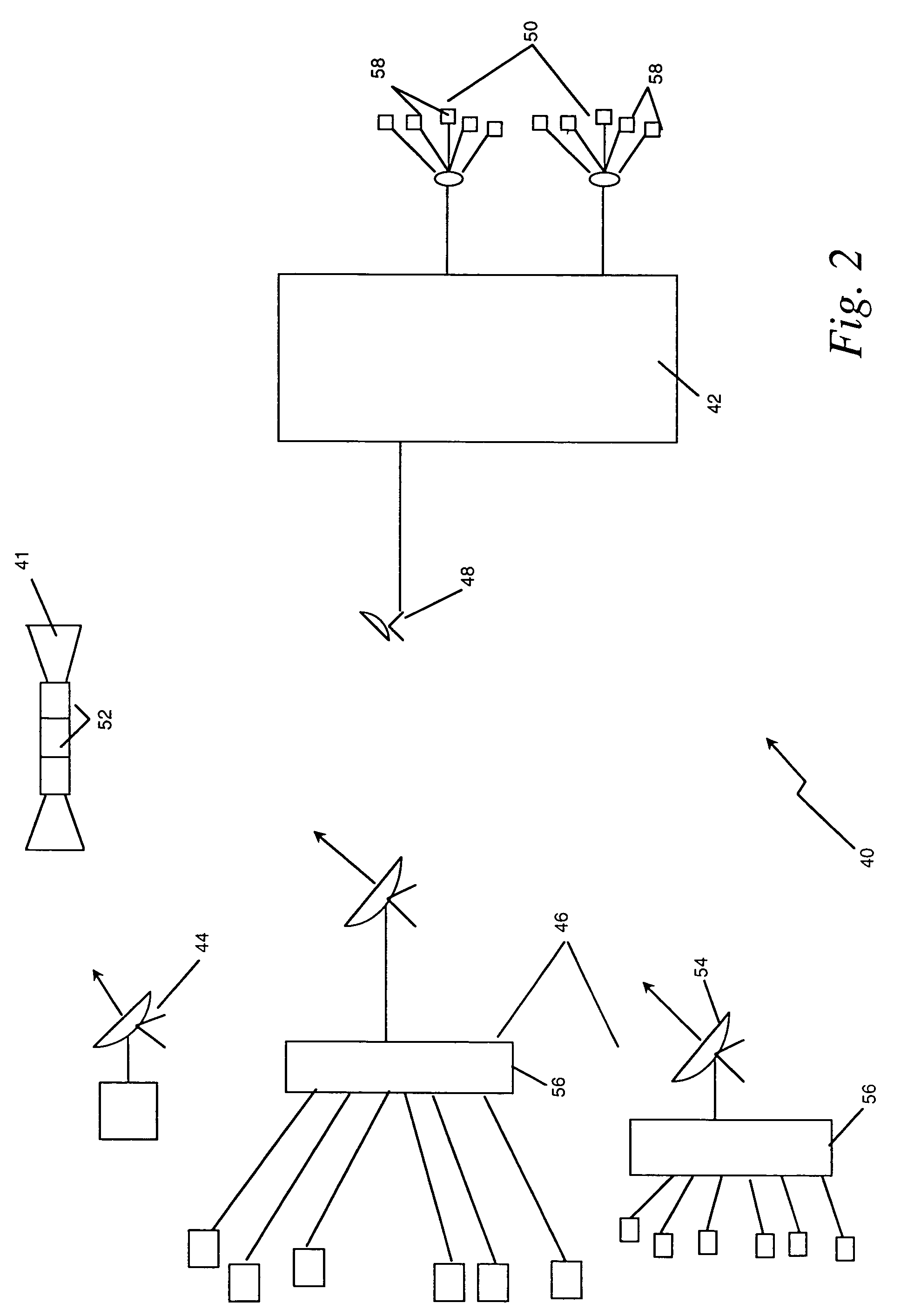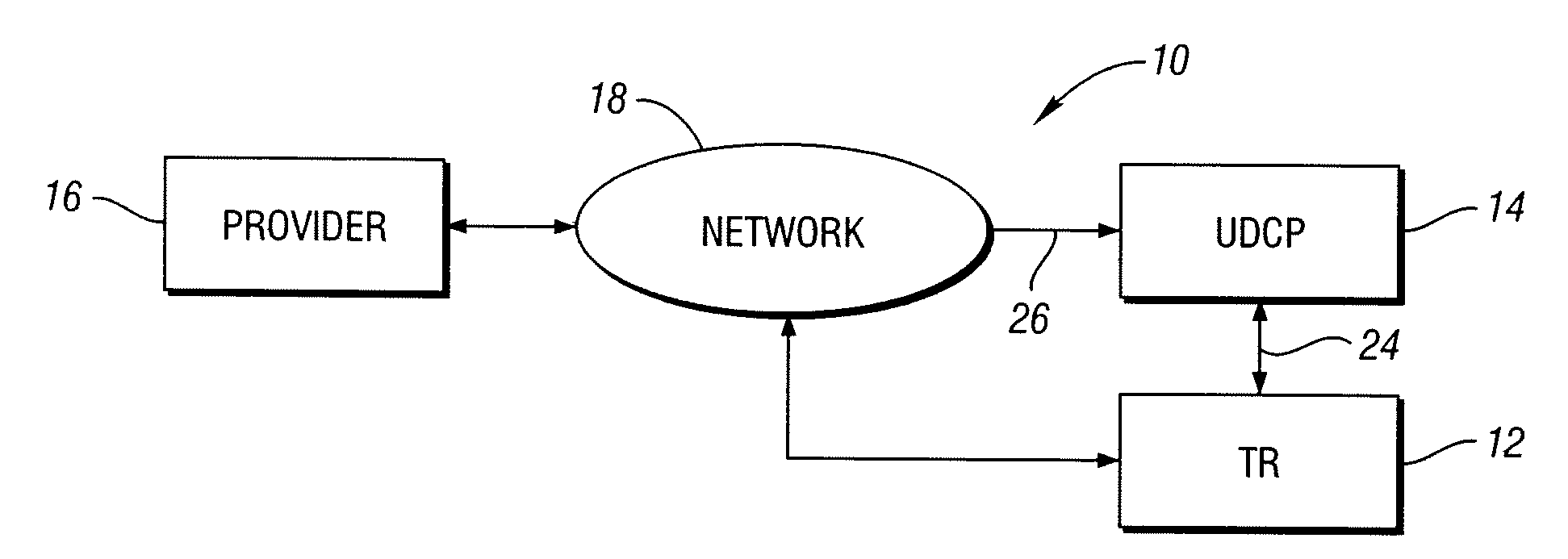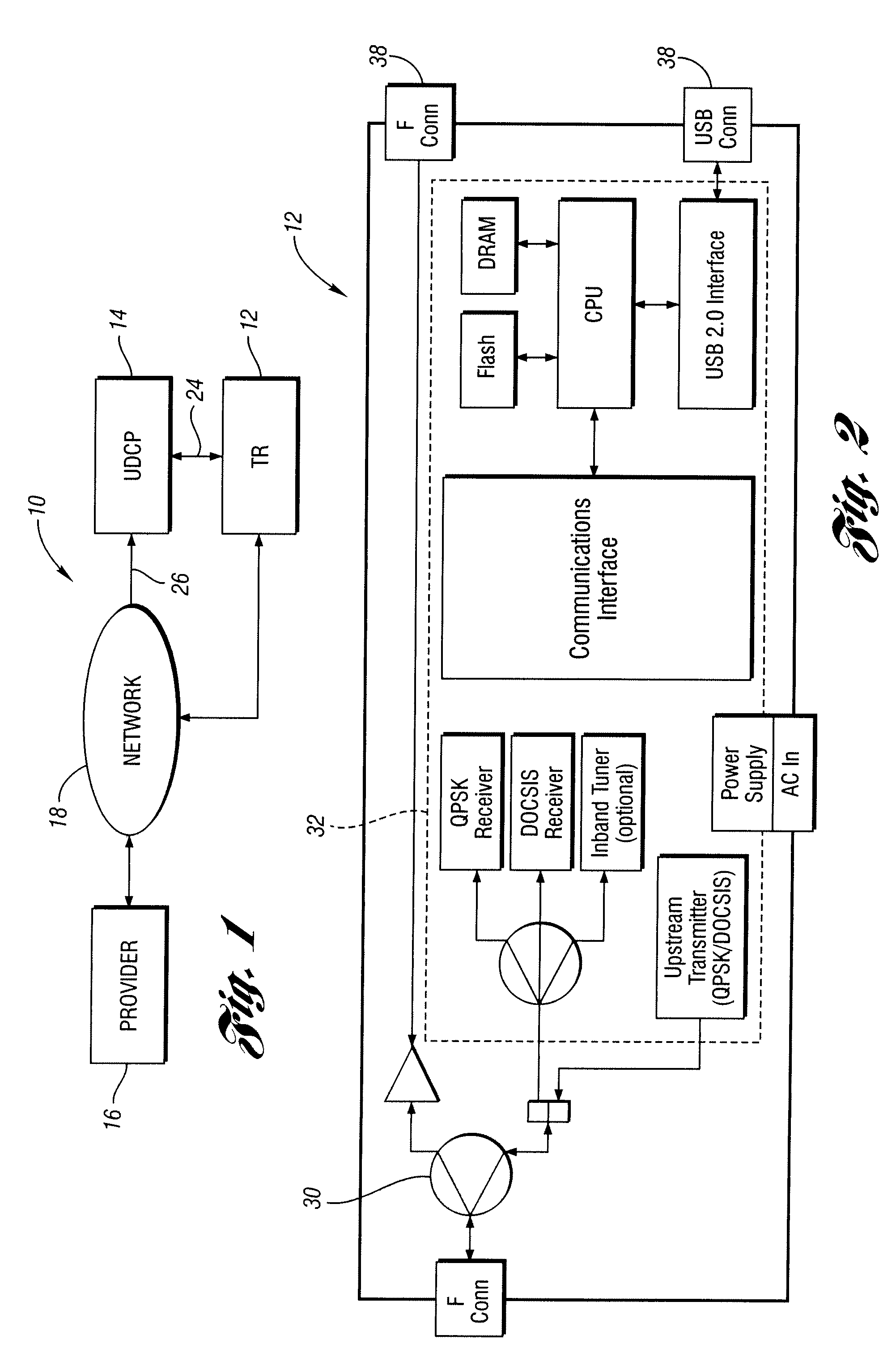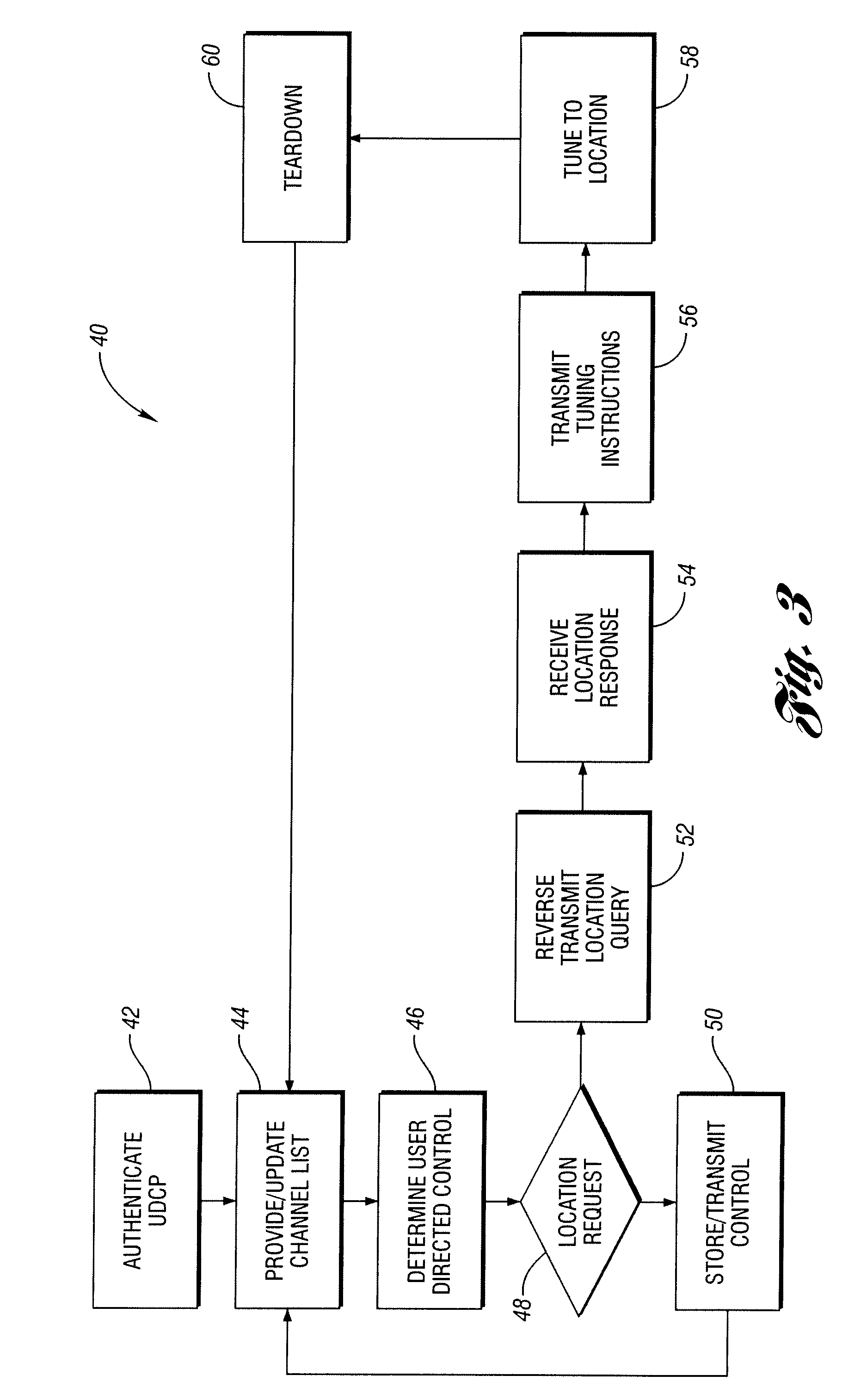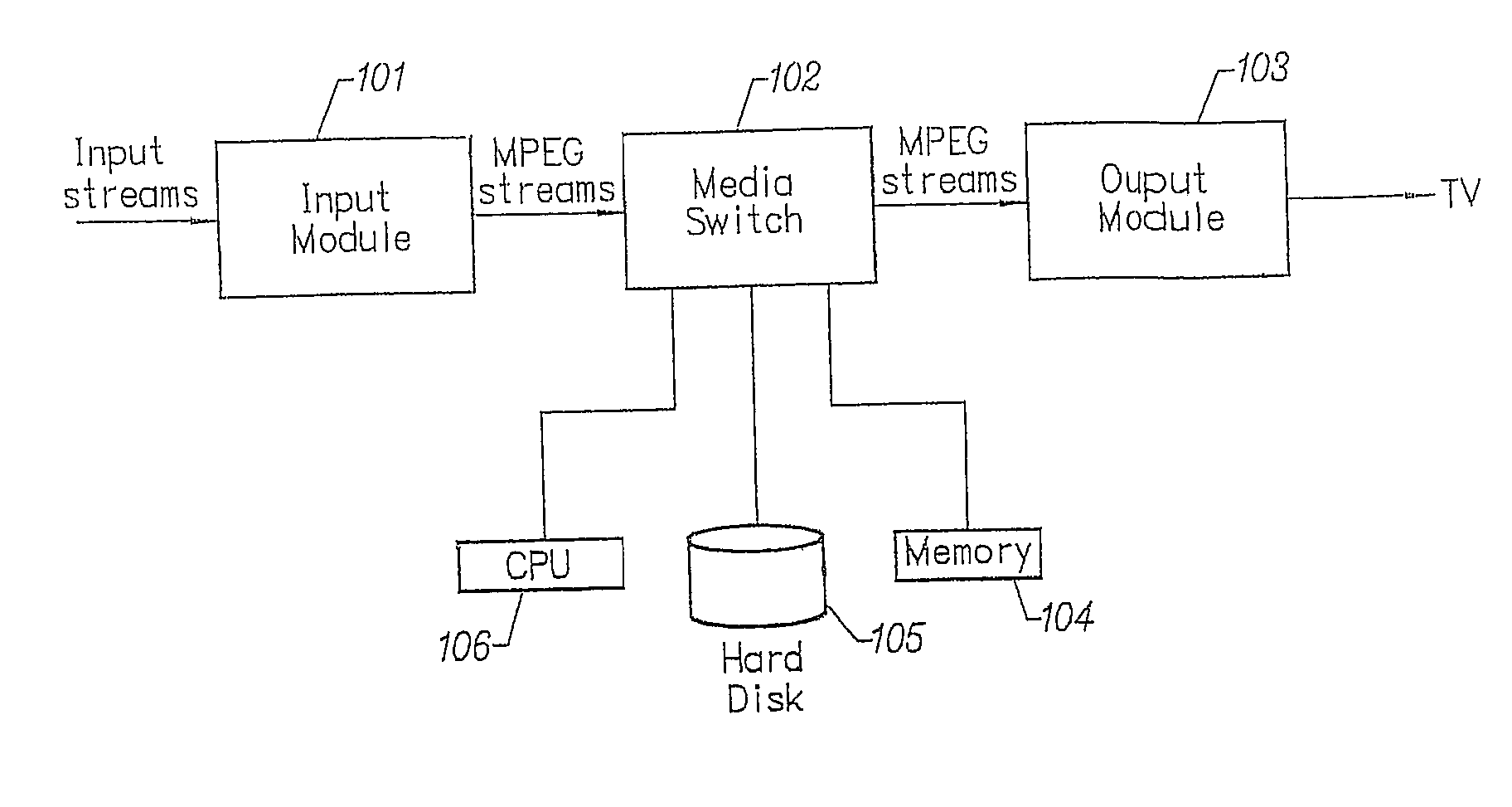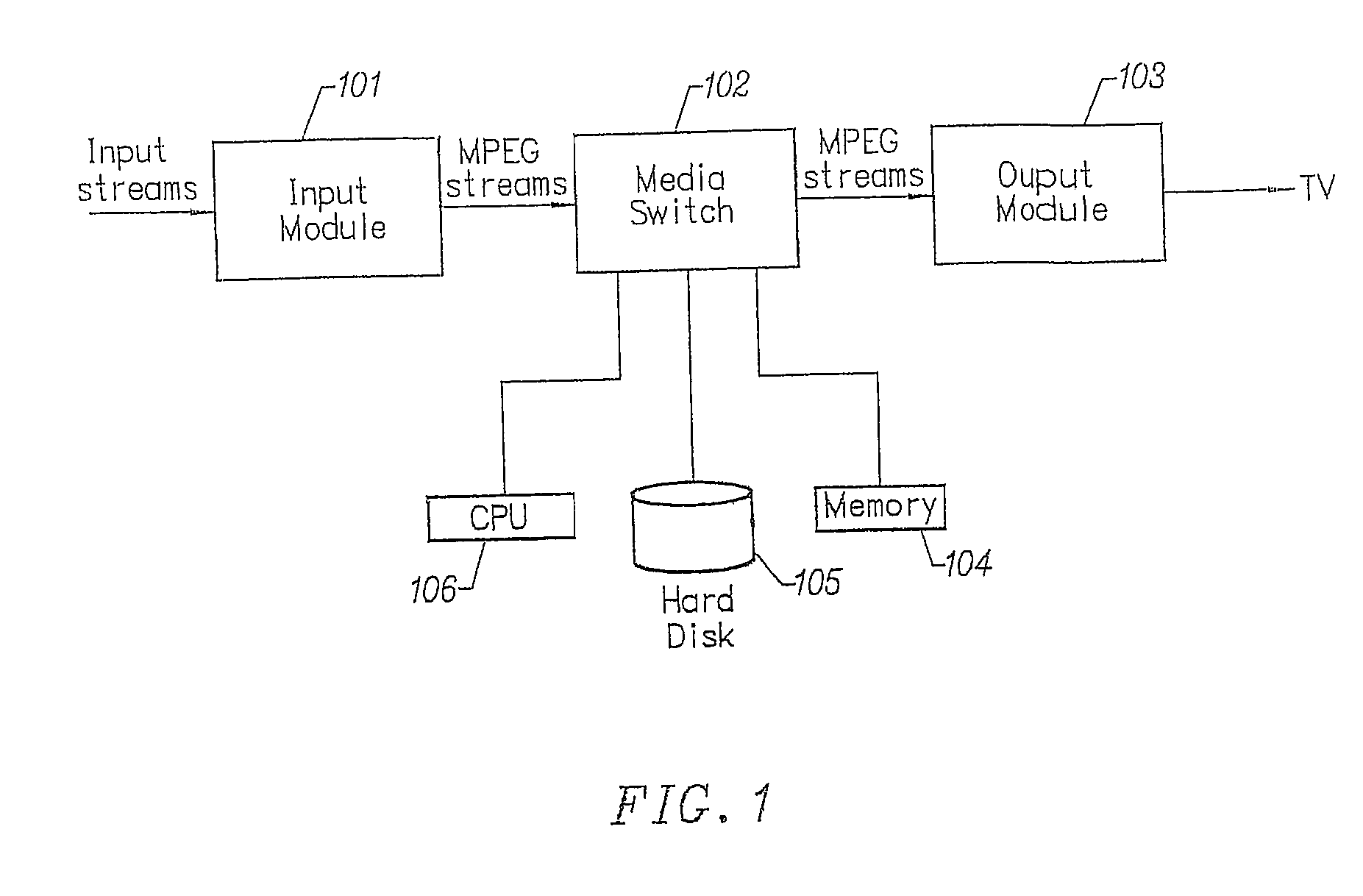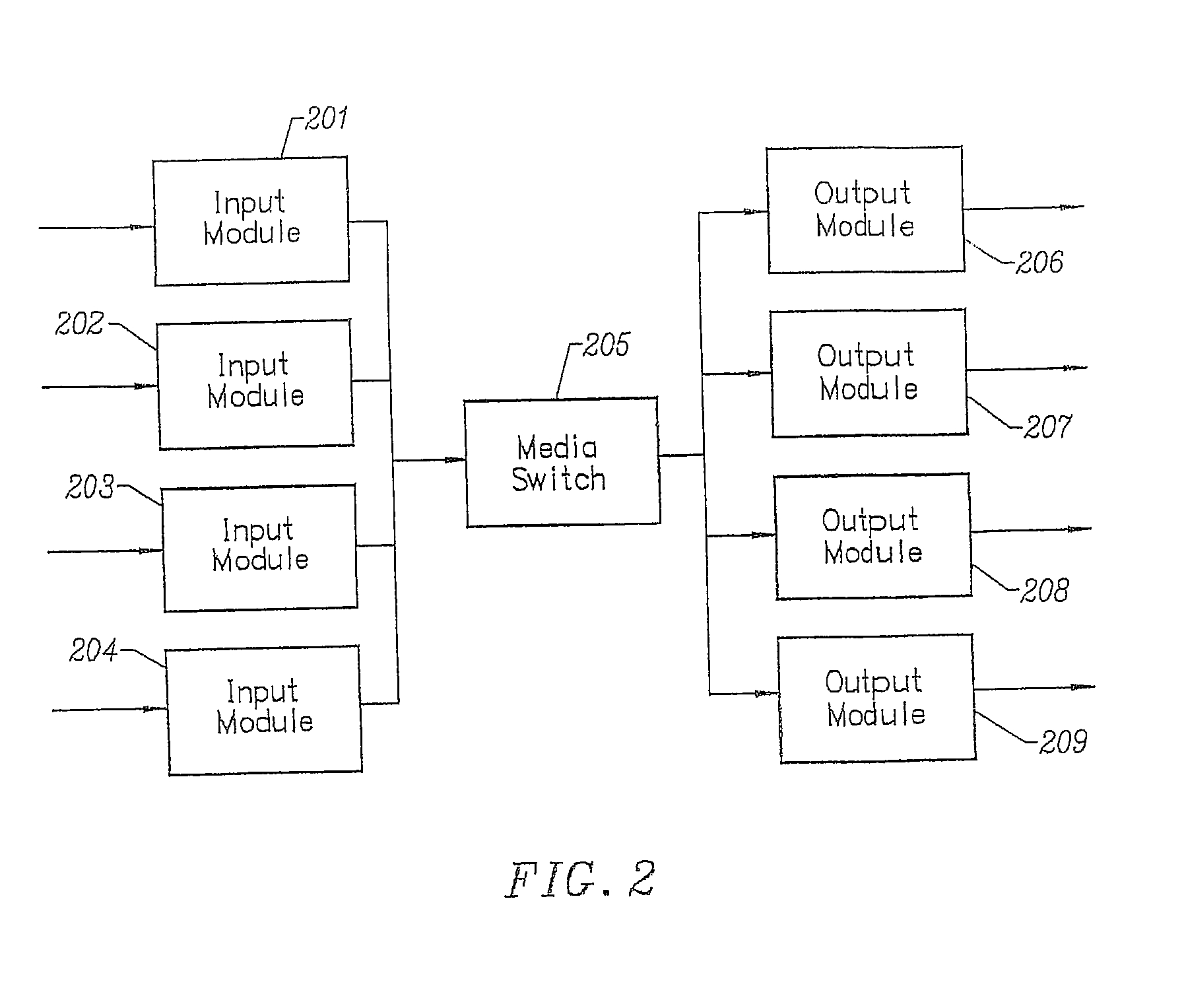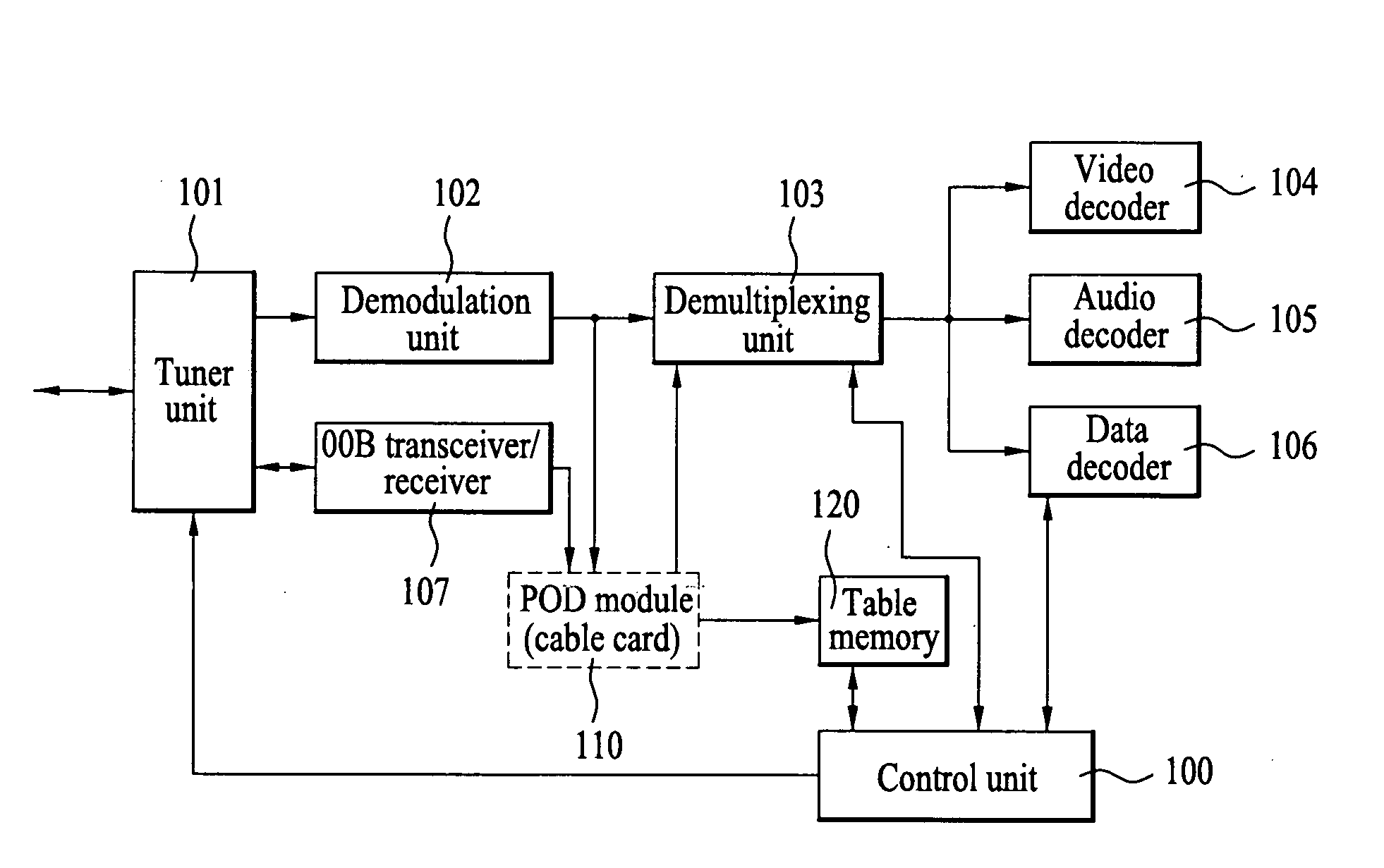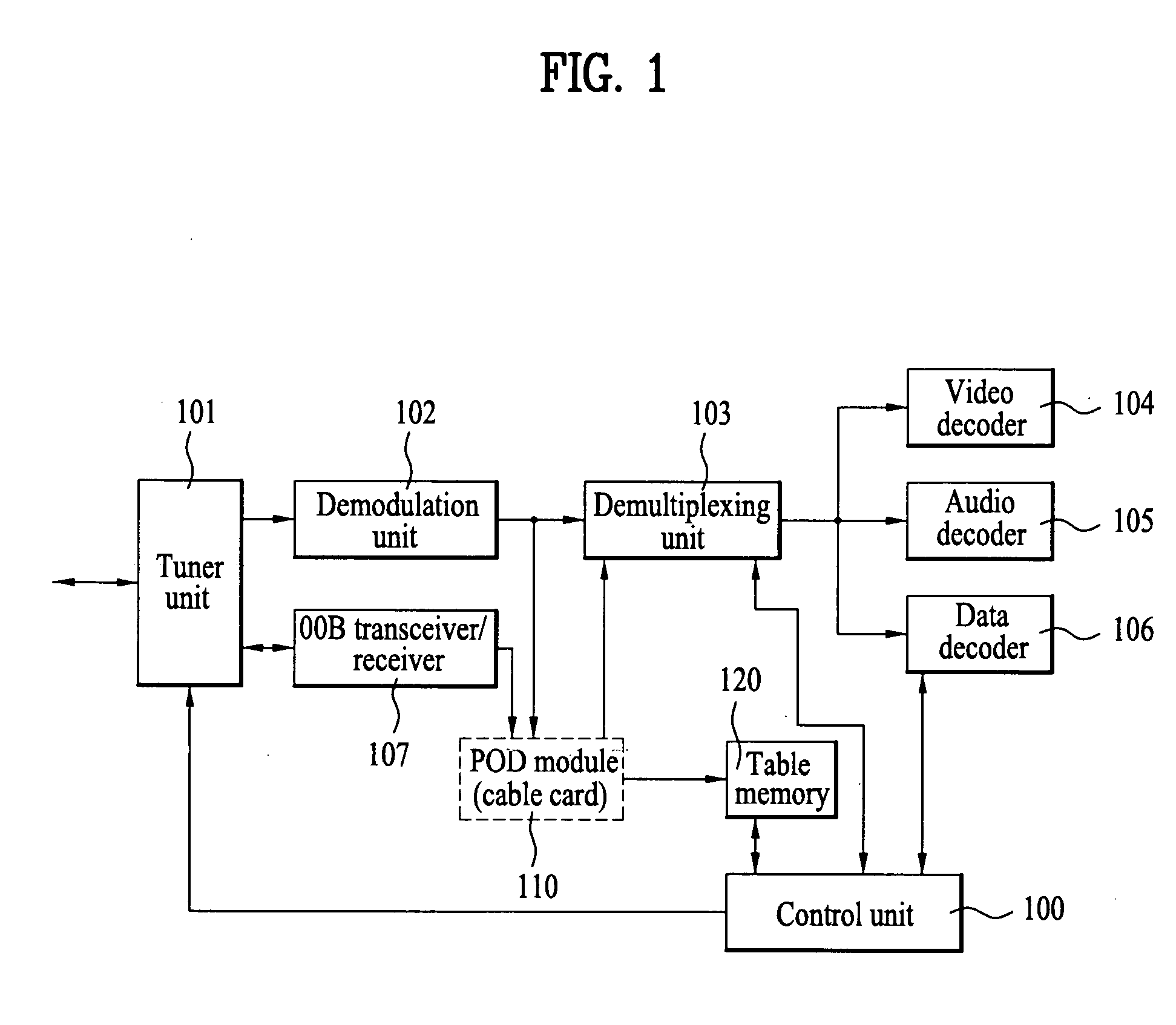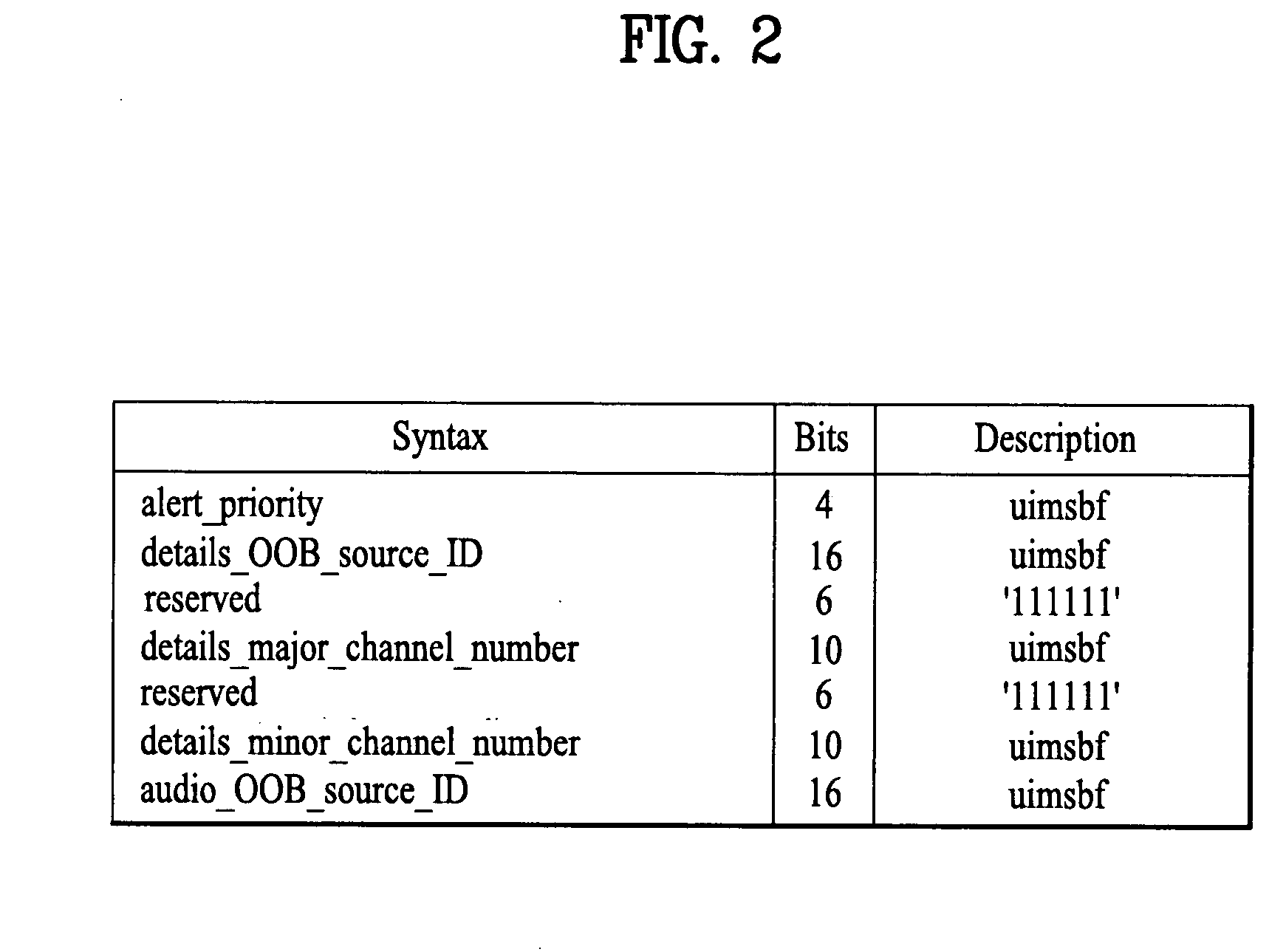Patents
Literature
199 results about "Digital cable" patented technology
Efficacy Topic
Property
Owner
Technical Advancement
Application Domain
Technology Topic
Technology Field Word
Patent Country/Region
Patent Type
Patent Status
Application Year
Inventor
Digital cable is the distribution of cable television using digital video compression for distribution. The technology was originally developed by General Instrument before being acquired by Motorola and subsequently acquired by ARRIS Group. Cable companies converted to digital systems during the 2000s, around the time that television signals were converted to the digital HDTV standard, which was not compatible with earlier analog cable systems. In addition to providing higher resolution HD video, digital cable systems provide expanded services such as pay-per-view programming, cable internet access and cable telephone services. Most digital cable signals are encrypted, which reduced the high incidence of cable theft which occurred in analog systems.
Hybrid mpeg/ip digital cable gateway device and architecture associated therewith
A novel cable gateway system and architecture incorporating a hybrid digital video transceiver. The digital cable system architecture combines reception of legacy video such as MPEG-TS based DVB-C streams with that of original IP video over DOCSIS channels. The system comprises a hybrid DVB / IP cable gateway STB capable of receiving both legacy DVB-C video and original IP video streams. The cable gateway device performs the front-end functionality (including QAM receiver, tuner and broadband connection) while the back-end functionality of video decoding and display is performed by one or more standard IP-STBs connected to the cable gateway device over a network (e.g., home LAN). Legacy MPEG-TS based DVB-C video is captured and encapsulated into packets for distribution over the network to the IP-STBs. The cable gateway distributes the original IP video received over the CATV source and the encapsulated legacy video as video over IP packets over the network.
Owner:INTEL CORP
Systems and methods for packaging, distributing and managing assets in digital cable systems
ActiveUS7761899B2Digital computer detailsAnalogue secracy/subscription systemsTelevision systemService provision
Assets, such as content and related data are packaged, transmitted, received and managed in a digital cable television system to standardize the distribution of content and services from a content / service provider to subscribers in the system. The standardized format for packaging content enables the digital cable system to package, transmit, receive and manage diverse types of content, such as MPEGs, executable files, HTML pages, and the like, using standard system components without requiring reprogramming of the system to deploy new services. Service and content providers are freed from having to develop custom formats for delivering content and data to the cable system. Moreover, the standardized bundling of content and related data that is enabled by the invention allows the cable system operator to automate the deployment of services based on specific content and data to select subscribers.
Owner:N2 BROADBAND +1
Method and system for providing VOD services in a digital cable TV network
InactiveUS20060010477A1Television system detailsColor television detailsService informationVideo on demand
A method and system for providing video-on-demand services are provided. The method of providing video-on-demand (VOD) services comprises transmitting service information to a set-top box via an out-of-band channel, receiving location and identification information of the set top box via the out-of-band channel, receiving a VOD service request from the set-top box via the out-of-band channel, and providing the set-top box with the requested content via an in-band channel with reference to the location and identification information of the set-top box.
Owner:SAMSUNG ELECTRONICS CO LTD
Cable billing systems and methods enabling independence of service marketing and provisioning from billing and collection of revenue
ActiveUS20020129358A1Complete banking machinesTelephonic communicationRelevant informationService configuration
Systems and methods that divide the billing function of a billing system from the provisioning function of a service in digital cable systems. Because the billing system is only responsible for billing, rather than the provisioning of services, new services may be quickly added to cable systems without the time consuming and expensive task of configuring the billing system specifically for new services added to the system. The services are implemented using an offering package created by the service, where the offering package contains billing related information forwarded to the billing system to bill for the service.
Owner:MK SYST USA INC +1
Digital cable TV receiver, diagnosis method for the same, and data structure of HDMI status report
ActiveUS20070056012A1Television system detailsPulse modulation television signal transmissionComputer networkDiagnosis methods
A host includes at least one High-Definition Multimedia Interface (HDMI) port. A controller is configured to receive a request from a source external to the host. The controller is further configured to collect HDMI status information associated with the HDMI port in response to the request.
Owner:LG ELECTRONICS INC
Method and system for an integrated VSB/QAM/NTSC/OOB plug-and-play DTV receiver
ActiveUS20050177860A1Television system detailsTelevision system scanning detailsDTV receiverOutside broadcasting
Certain embodiments of the invention may be found in a method and system for a vestigial side band (VSB), quadrature amplitude modulation (QAM), NTSC, out-of-band (OOB) receiver that is integrated in a single chip. The single chip integrated digital television (DTV) receiver provides plug and play DTV receiver capability for handling both North American digital cable television and digital terrestrial broadcast television compatible systems. The integrated DTV receiver may receive all standard-definition and high-definition digital formats (SDTV / HDTV) and an on-chip NTSC demodulator handles NTSC video. An output of the NTSC demodulator may be directed to an external broadcast television system committee (BTSC) or Zweiton M decoder, or it may be sent to an on-chip audio BTSC compliant decoder. The single chip integrated DTV receiver may also comprise an integrated out-of-band QPSK receiver, which may be adapted to, for example, handle a CableCard compliant with the CableCard Specification.
Owner:BROADCOM CORP
Method and apparatus of mutual authentication and key distribution for downloadable conditional access system in digital cable broadcasting network
InactiveUS20090144541A1Increase costIncrease in costUser identity/authority verificationProgram loading/initiatingDownloadable Conditional Access SystemConditional access systems
A method and apparatus of X.509 certificate-based mutual authentication and key distribution for a Downloadable Conditional Access System (DCAS) in a digital cable broadcasting network is provided for composing a software-based secure DCAS in various Conditional Access Systems (CASs) based on an embodiment form of Conditional Access (CA) application for CA of digital cable broadcasting.
Owner:ELECTRONICS & TELECOMM RES INST
Secure printing over cable network to home printer
Secure printing of print data from a client application residing on a data network to a set top box which has a printer, the set top box residing on a digital cable network which has a cable head end for interfacing the digital cable network to the data network, wherein print data is generated in the client application after which it is determined whether a secure communication path exists between the client application and the set top box. If the secure communication path exists, the print data is transmitted from the client application to the set top box. The print data is then sent from the set top box to the printer for printing.
Owner:CANON KK
Statistical remultiplexer performance for video on demand applications by use of metadata
ActiveUS20060067362A1Improve performanceLower latencyError preventionFrequency-division multiplex detailsBandwidth limitationComputer science
The present invention improves the performance of video on demand (VOD) in a digital cable system. A statistical remultiplexer (stat mux) acquires metadata that statistically describes the bandwidth characteristics of each VOD channel. When the metadata indicates that the VOD channel will require more bandwidth than is available, the stat mux can re-encode or re-compress other streams or the VOD stream streams to meet the bandwidth limitation. The metadata is generated off-line and streamed out ahead of the VOD program content. The stat mux includes a minimal length buffer for storing VOD program content that when combined with the metadata enables a viewer to randomly access VOD program content without noticeable latency. When a VOD function request is received from the viewer, the previously supplied metadata is used to allocate bandwidth rather than waiting for a look-ahead buffer to acquire a sufficient amount of future VOD program content.
Owner:TRITON US VP ACQUISITION CO
Digital cable TV receiver, diagnosis method for the same, and data structure of HDMI status report
ActiveUS20060031895A1Television system detailsPulse modulation television signal transmissionTelevision receiversHDMI
A digital cable TV receiver includes a POD module and a host device. The host device includes a controller and a HDMI port linked to a first peripheral device. When the controller receives a diagnostic request for HDMI status from the POD module, it generates a HDMI status report and transmits the DVI status report to the POD module. The HDMI status report includes HDMI status information associated with the first peripheral device. If the host device further includes a DVI port linked to a second peripheral device and receives a diagnostic request for HDMI / DVI status from the PDO module, it generates a HDMI / DVI status report and transmits the HDMI / DVI status report to the POD module. The HDMI / DVI status report includes HDMI status information associated with the first peripheral device and DVI status information associated with the second peripheral device.
Owner:LG ELECTRONICS INC
Digital broadcast receiver and method for processing caption thereof
InactiveUS20050060758A1Television system detailsPicture reproducers using cathode ray tubesComputer hardwareInformation control
A digital cable broadcast receiver and a method for automatically processing caption data of various standards and types, is disclosed. The digital broadcast receiver includes: a demultiplexer for dividing a received broadcast stream into video data, audio data, supplementary information; a controller for determining whether caption data included in the video data is digital caption data or analog caption data on the basis of caption information included in the supplementary information, and outputting a control signal according to a result of the determining; a digital caption decoder for extracting and decoding digital caption data from the video data according to the control signal; and an analog caption decoder for extracting and decoding analog caption data from the video data according to the control signal.
Owner:LG ELECTRONICS INC
Multimedia signal processing system
ActiveUS7558472B2Easy to operateLow costTelevision system detailsElectronic editing analogue information signalsComputer architectureMultimedia signal processing
A multimedia signal processing system utilizes an easily manipulated, low-cost storage and display system that allows the user to view a television program and instantly review previous scenes within the program. The invention also allows the user to store selected programs while simultaneously watching or reviewing another. A versatile system architecture enables providing the invention in multiple configurations, each adapted to receive input signals from a different source. At the highest level, the system includes an input section and an output section. Across all configurations, the output section remains substantially the same, while the input section varies according to the signal type and the source. Thus, several configurations are provided, each one requiring only minor system board modifications. The system architecture thus simplifies the design and manufacturing challenge presented by producing units to serve different markets, such as digital satellite, digital cable and analog cable.
Owner:TIVO SOLUTIONS INC
Master guide table for a digital broadcast protocol and method of broadcasting and receiving broadcast signals using the table
InactiveUS7376964B1Efficient methodTelevision system detailsColor television detailsComputer hardwareTelevision system
A master guide table for a digital broadcast protocol, and a method of broadcasting and updating an electronic program guide using the table, uses identification information included in a bit stream syntax of the master guide table to classify whether contents of an event information table are merely shifted in time, or are actually changed. The master guide table is transmitted in accordance with a program and system information protocol (PSIP) for an advanced television system committee (ATSC) defined standard digital television broadcast protocol. A digital television receiver of a receiving party, or a digital cable broadcast receiver, can determine whether the contents of the event information table EIT are merely shifted in time or actually changed by parsing the identification information in the master guide table MGT. If the parsed contents of the identification information indicate that the event information table contents are merely shifted in time without any change, then a database maintaining previous event information table is not updated. Accordingly, time wasted in unnecessarily updating the database can be decreased.
Owner:LG ELECTRONICS INC
Method and system for an integrated VSB/QAM/NTSC/OOB plug-and-play DTV receiver
Certain embodiments of the invention may be found in a method and system for a vestigial side band (VSB), quadrature amplitude modulation (QAM), NTSC, out-of-band (OOB) receiver that is integrated in a single chip. The single chip integrated digital television (DTV) receiver provides plug and play DTV receiver capability for handling both North American digital cable television and digital terrestrial broadcast television compatible systems. The integrated DTV receiver may receive all standard-definition and high-definition digital formats (SDTV / HDTV) and an on-chip NTSC demodulator handles NTSC video. An output of the NTSC demodulator may be directed to an external broadcast television system committee (BTSC) or Zweiton M decoder, or it may be sent to an on-chip audio BTSC compliant decoder. The single chip integrated DTV receiver may also comprise an integrated out-of-band QPSK receiver, which may be adapted to, for example, handle a CableCard compliant with the CableCard Specification.
Owner:BROADCOM CORP
Method for real-time identification and diagnosis of video network problems for digital cable and IPTV service providers
InactiveUS20070283401A1Readily availableProblem can be identifiedBroadcast information monitoringTwo-way working systemsRemote controlNetwork management
A method for identifying video network problems for digital cable and IPTV (Internet Protocol Television) service providers based on real-time on-line video quality monitoring by customers. A video quality problem reporting button is provided on each customer's set-top box and / or on a remote control unit therefor, which is used by the customer to report a video quality degradation problem to the service provider. Based on an aggregation of video quality problem reports by a plurality of customers, and based on geographical and topological information regarding these customers in connection with knowledge of the network topology, a network management system of the service provider advantageously identifies, locates, and potentially diagnoses a network problem.
Owner:LUCENT TECH INC
Cost-effective multi-channel quadrature amplitude modulation
A highly-efficient, cost-effective technique for multi-channel QAM modulation is described. The technique employs an inverse fast-Fourier transform (IFFT) as a multi-channel modulator. QAM encoding expresses QAM symbols as constellation points in the complex plane such that each QAM symbol represents a specific phase and amplitude of a carrier frequency to which it is applied. In multi-channel systems, the carrier frequencies are generally uniformly spaced at a channel-spacing frequency (6 MHz, for digital cable systems in the United States). The IFFT accepts a set of complex frequency inputs, each representing the complex frequency specification (i.e., phase and amplitude) of a particular frequency. The inputs are all uniformly spaced, so assuming that the IFFT is sampled at a rate to provide the appropriate frequency spacing between its frequency-domain inputs, the IFFT will produce a time domain representation of QAM symbols applied to its various inputs modulated onto carriers with the desired channel separation. Since the channel spacing and the symbol rate are different due to excess channel bandwidth, interpolation is used to rectify the difference. An efficient scheme for combining this interpolation with baseband filtering and anti-imaging filtering is described.
Owner:RGB NETWORKS
Method and apparatus for performing real-time on-line video quality monitoring for digital cable and IPTV services
InactiveUS20070283400A1Reduce quality problemsTwo-way working systemsSelective content distributionRemote controlSet top box
A method and apparatus for performing real-time on-line video quality monitoring for digital cable and IPTV (Internet Protocol Television) services, wherein a problem reporting button is advantageously provided on a (video service provider's) customer's set-top box and / or on a remote control unit therefor. Such a button may be advantageously used by the customer to report a video quality degradation problem to service providers. Illustratively, a single push of this button initiates the reporting process to report the existence of a problem regarding video quality which the customer is experiencing. The customer may indicate the severity of the problem with use of the button, and may also respond interactively to questions and or suggestions presented by the service provider on the video screen. Such an interactive troubleshooting procedure may be implemented as software on the set-top box.
Owner:LUCENT TECH INC
Multichannel Digital Cable Tuner
InactiveUS20090174822A1Low costSuitable for useTelevision system detailsElectric signal transmission systemsDigital down converterForward error correction
A method and apparatus is presented for simultaneous reception of a plurality of digital RF channels. Specifically, N amplifier-filter circuits are configured to receive and separate a multichannel analog RF input signal into N analog signals, each including a different frequency band. N analog-to-digital converters are provided, each respectively coupled to one of the N amplifier-filter circuits and configured to receive an analog signal and generate a respective digital signal. A digital tuner is coupled to receive and demultiplex the N digital signals generated by the N analog-to-digital converters thereby recovering M digital RF channels. M demodulation circuits are provided for performing demodulation and forward-error-correction of the M digital RF channels (see FIG. 1). This combination of components permits substantially simultaneous reception of multiple digital cable channels within a single digital receiver circuit suitable for use with conventional cable delivery systems and at a reasonable cost.
Owner:INTERDIGITAL MADISON PATENT HLDG
System and method for personal video recording
ActiveUS7177522B2Television system detailsColor television signals processingComputer hardwareEntry point
A system and method for personal video recording (PVR) is provided for recording digitally encoded streams, and for playing back and decoding the recorded streams. The PVR system may receive the digitally encoded streams from a digital cable box or a network server. The system enables trick modes including fast forward and reverse mode displays at various speeds. The system an method for PVR may also be applied to digitally encoded streams without I-pictures, such as, for example, progressive refresh streams or HITS streams. Reverse decode and display may be implemented by starting at a suitable entry point, decoding quickly up to the point of the desired picture, and displaying the result, and repeating the process. Index tables of entry points may be used for proper operation in some modes where the entry points are entry pictures (E-pictures) which start a pattern of progressively refreshing I-slices.
Owner:AVAGO TECH INT SALES PTE LTD
Flexible digital cable network architecture
InactiveUS7058964B2Digital computer detailsAnalogue secracy/subscription systemsService provisionNetwork architecture
A digital cable network architecture and services method includes a cable medium and a plurality of hosts that include a receiver. A policy file store contains policy files having at least one of a service provider section, a consumer section, and a manufacturer section that can be updated by at least one of the service provider, a consumer and a receiver manufacturer, respectively. A service provider that is associated with the policy file store provides digital cable services over the cable medium to the hosts and downloads monitor applications and policy files to the hosts over the cable medium. The MAs use the service provider section, the consumer section, and / or the manufacturer section of the policy file to alter resource contention, alter service provisioning at levels below a channel level, and / or alter fraudulent receiver identification calculations.
Owner:PANASONIC CORP
[cable signal distribution system]
InactiveUS20050044573A1Analogue secracy/subscription systemsBroadcast components for monitoring/identification/recognitionTelevision systemOperating energy
A cable signal distribution system to allow the distribution of a digital cable signal in a building using the existing cable network in the building. The cable signal distribution system is a low cost system coupled with simple functionality. The cable signal distribution system splits the initial cable signal frequency range into two separate bands, a low band for operating cable television system-related equipment, and a higher frequency band used to create a Home Band Network of cable frequencies within the cable signal frequency range. The Home Band Network is used to transmit the channel tuned by the CATV digital set top box to existing analog Televisions in the building.
Owner:PRESCHUTTI JOSEPH P
Analog/digital carrier differentiation in digital cable receivers
A communication signal carrier on a communication channel in a digital cable receiver can be characterized as analog without exhaustively attempting to determine a symbol rate or modulation scheme of a digital carrier. The signal level in the channel is observed at different channel bandwidths, and these observations are used to differentiate between analog and digital carriers.
Owner:STMICROELECTRONICS SRL
Synchronization for digital cable network
InactiveUS20020056133A1Television system detailsPulse modulation television signal transmissionDigital dataCommunications system
A communication system, such as a digital cable network, achieves synchronization using data rate synchronization, clock frequency synchronization, or clock recovery synchronization techniques. The communication system includes a conversion clock at a transmitter and a conversion clock at a receiver. The data rate synchronization techniques adjust data rates by resampling digital data sent from the transmitter to the receiver to compensate for frequency variations in the conversion clocks. The clock frequency synchronization techniques use time stamps to adjust the receiver conversion clock frequency to substantially match the transmitter conversion clock frequency. The clock recovery techniques use a reference clock to adjust the transmitter conversion clock frequency and the receiver conversion clock frequency to be approximately the same.
Owner:AVAZ NETWORKS
Digital cable receiver
InactiveUS20050060749A1Simple structureReduce manufacturing costTelevision system detailsBroadband local area networksManufacturing cost reductionEngineering
A digital cable receiver, which has a simplified structure and can reduce the fabrication cost, is disclosed. The digital cable receiver includes an out-of-band (OOB) receiver receiving an out-of-band signal outputted from a cable head-end, a point of deployment (POD) interface transmitting the out-of-band signal outputted from the cable head-end and a transport stream outputted from POD module, and receiving the transport stream scrambled at the POD module, and an out-of-band (OOB) transmitter outputting the out-of-band signal outputted from the POD interface.
Owner:LG ELECTRONICS INC
Remote controlled single channel outputting method for concentrating controller in digital analog Tv-set
InactiveCN1615017ARealize the mouthpiece functionAdapting to the choice of autonomyElectrical cable transmission adaptationRemote controlTerminal equipment
The invention consists of: TV station signal output device; HFC transmission network; hub and descramble controller; user terminal device. The remote control for single channel output at the mode of signal processing combining channel processing can make scramble / descramble of digital cable TV more efficiency, safety.
Owner:梁光海
Digital cable capable of improving a reception performance for an additional signal in an out-of-band channel and a method of receiving thereof
InactiveUS20050057700A1Improve reception performanceEliminate distractionsTelevision system detailsAnalogue secracy/subscription systemsFrequency changerIntermediate frequency
A digital cable receiver capable of improving reception performance of an additional signal in an out-of-band channel and a method of receiving the additional signal. The digital cable receiver can include an out-of-band filter to output the out-of-band channel, a band splitting unit to split the out-of-band channel into a predetermined number of frequency bands, a band selection unit to select a frequency band carrying the additional signal out of the split predetermined number of frequency band, a down-converter to down convert the additional signal in the selected frequency band into a predetermined intermediate frequency signal, and a control unit to control the band selection unit and the down-converter in cooperation with the cable card. Accordingly, the digital cable receiver can selectively pass only the frequency band carrying the additional signal out of the out of band channel using the information on the frequency band carrying the additional signal in the out-of-band channel obtained by cooperating with the cable card and can down-convert the selected frequency band, thereby eliminating interference with other channels adjacent to the additional signal.
Owner:SAMSUNG ELECTRONICS CO LTD
Digital cable headend for cable television delivery system
InactiveUS7269841B1Great capability and flexibilityFiltered outTwo-way working systemsSelective content distributionModularityModular design
Several cable headend configurations that utilize digital technology are disclosed. The present invention provides greater capability and flexibility than existing cable headends. Specifically, a modular design for a cable headend and a combiner component for cable headends are disclosed. The invention is particularly useful in cable television program delivery systems transponding large numbers of digitally compressed program signals. The combiner disclosed allows cherry-picking of programs from transponded signals.
Owner:COMCAST IP HLDG I
Tuning resolver
ActiveUS20090119728A1Solve insufficient capacityBroadband local area networksTwo-way working systemsTelevision systemEngineering
A method and system for supporting media services on devices lacking capabilities to execute reverse transmission communicates necessary to request and / or locate the services. The method and system may be suitable for use with switched broadcast television (SBT) system having unidirectional digital cable products (UDCPs) which are unable to execute reverse transmission communicates necessary to support SBT.
Owner:CABLE TELEVISION LAB
Multimedia signal processing system
InactiveUS20080288998A1Easy to operateLow costTelevision system detailsElectronic editing analogue information signalsComputer architectureMultimedia signal processing
A multimedia signal processing system utilizes an easily manipulated, low-cost storage and display system that allows the user to view a television program and instantly review previous scenes within the program. The invention also allows the user to store selected programs while simultaneously watching or reviewing another. A versatile system architecture enables providing the invention in multiple configurations, each adapted to receive input signals from a different source. At the highest level, the system includes an input section and an output section. Across all configurations, the output section remains substantially the same, while the input section varies according to the signal type and the source. Thus, several configurations are provided, each one requiring only minor system board modifications. The system architecture thus simplifies the design and manufacturing challenge presented by producing units to serve different markets, such as digital satellite, digital cable and analog cable.
Owner:TIVO SOLUTIONS INC
Data structure and signaling method for emergency alert message and digital TV receiver
InactiveUS20060015898A1Pulse modulation television signal transmissionSimultaneous/sequential multiple television signal transmissionDTV receiverSource field
An emergency alert message is included in a cable broadcast signal. The emergency alert message includes major and minor details channel numbers associated with a details channel. A details channel number is configured based on the major details channel number when the minor details channel number is set to a null value. Next, it is tuned to a channel frequency of a digital cable channel corresponding to the details channel number when the details channel number exists in a digital channel number list. Alternatively, the emergency alert message includes a details channel source field which indicates whether a details channel is a digital or an analog channel. Then, it is tuned to a channel frequency of one of a digital cable channel and an analog cable channel based upon a value of the details channel source field.
Owner:LG ELECTRONICS INC
Features
- R&D
- Intellectual Property
- Life Sciences
- Materials
- Tech Scout
Why Patsnap Eureka
- Unparalleled Data Quality
- Higher Quality Content
- 60% Fewer Hallucinations
Social media
Patsnap Eureka Blog
Learn More Browse by: Latest US Patents, China's latest patents, Technical Efficacy Thesaurus, Application Domain, Technology Topic, Popular Technical Reports.
© 2025 PatSnap. All rights reserved.Legal|Privacy policy|Modern Slavery Act Transparency Statement|Sitemap|About US| Contact US: help@patsnap.com
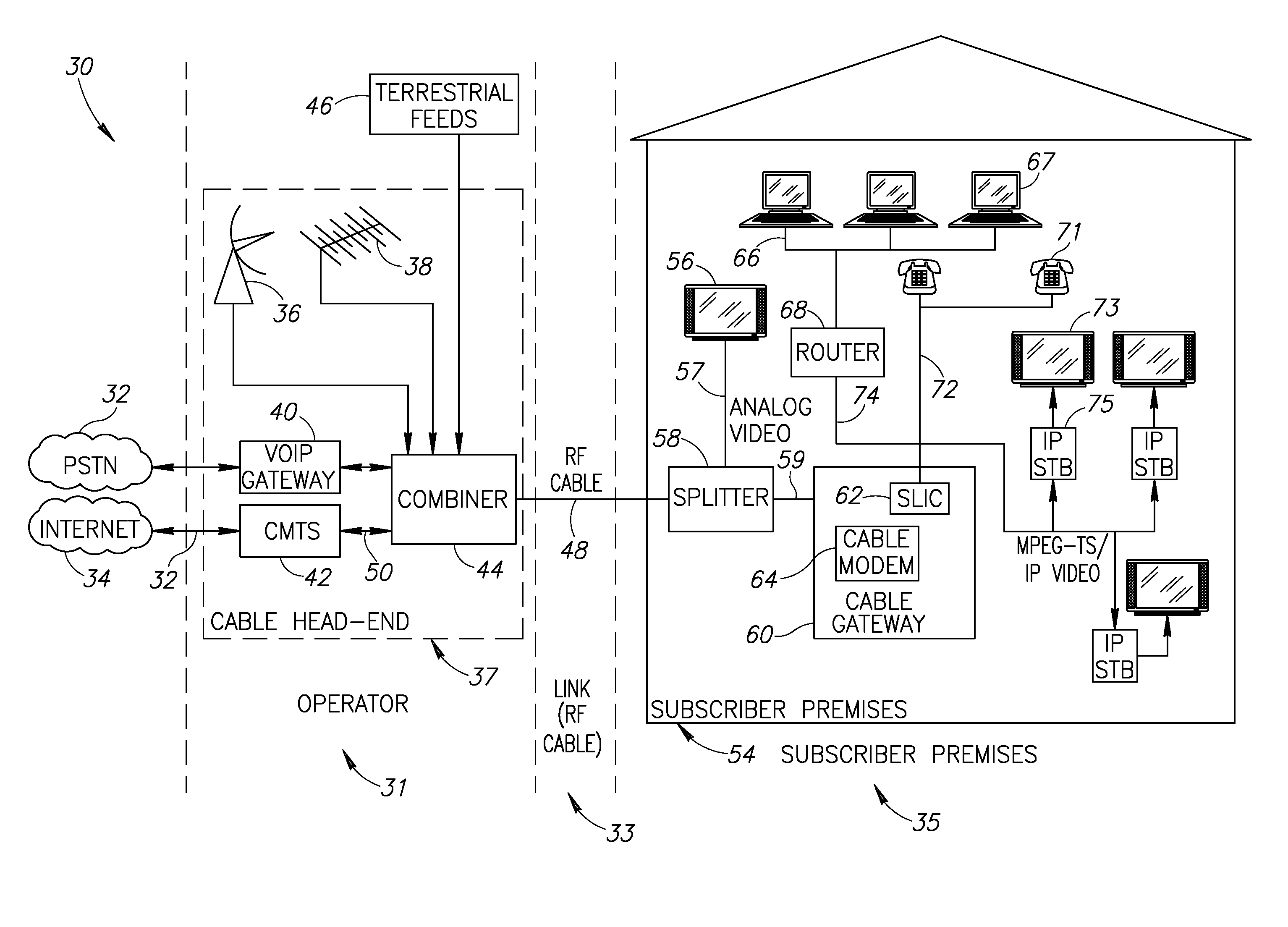
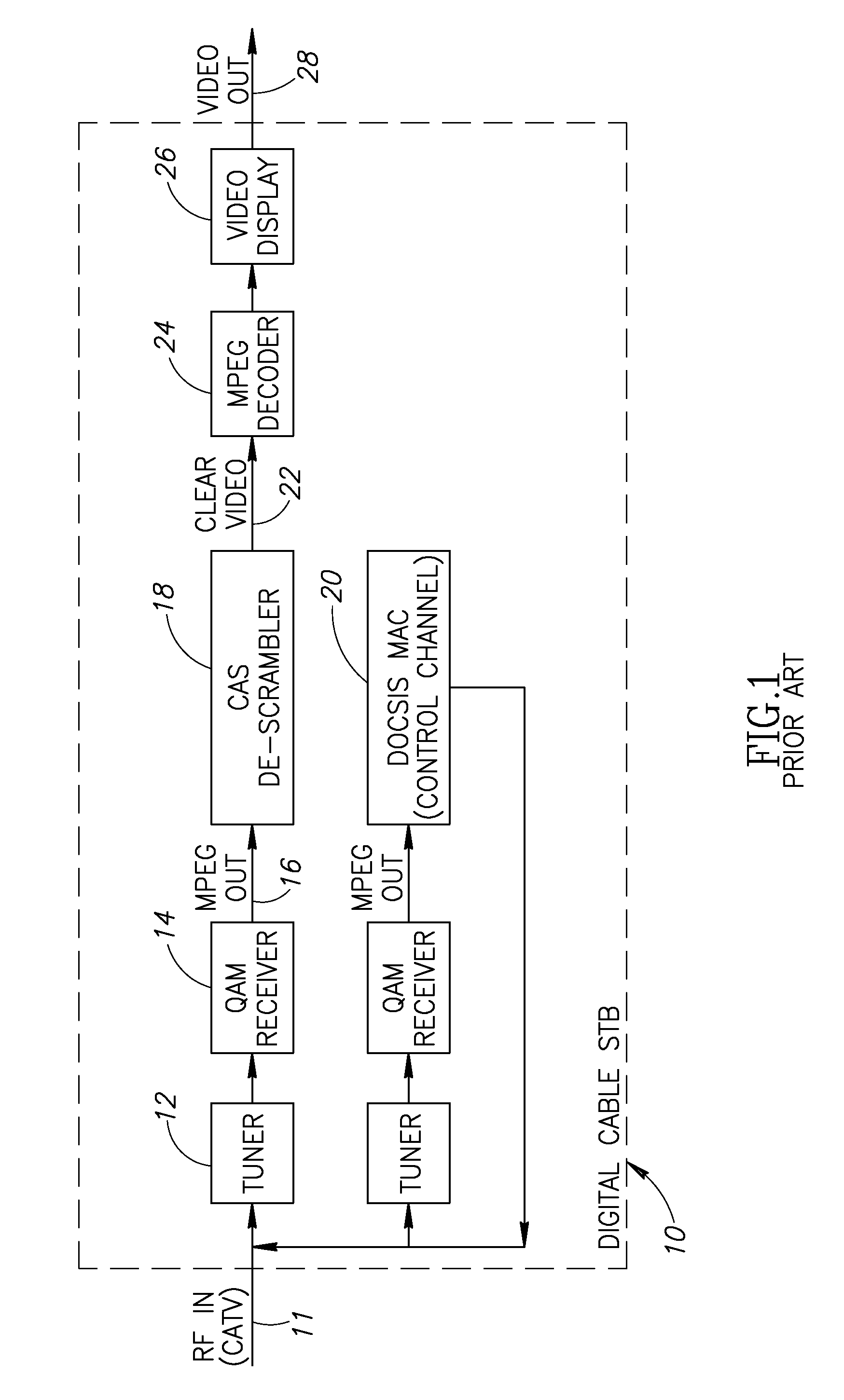
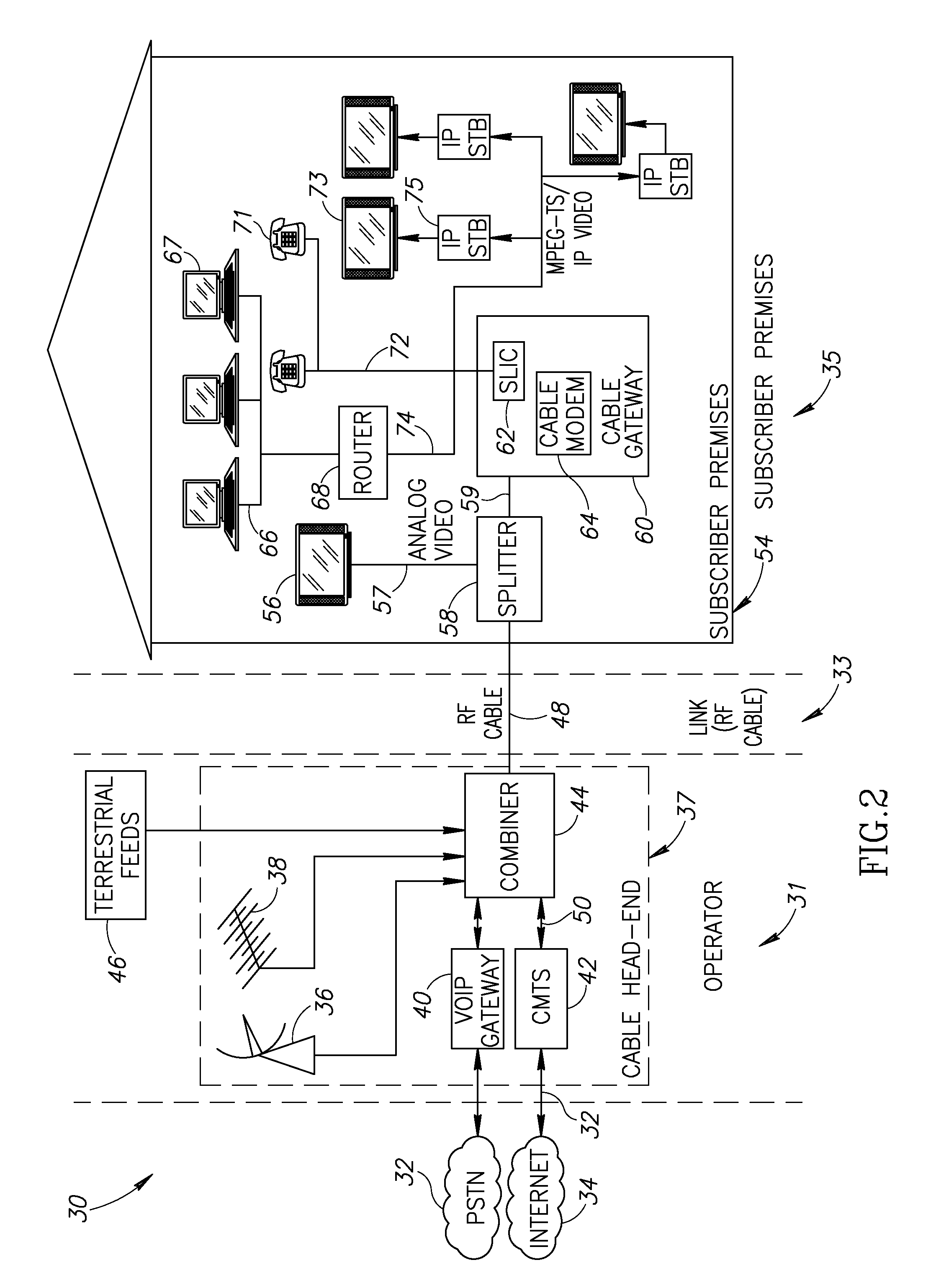
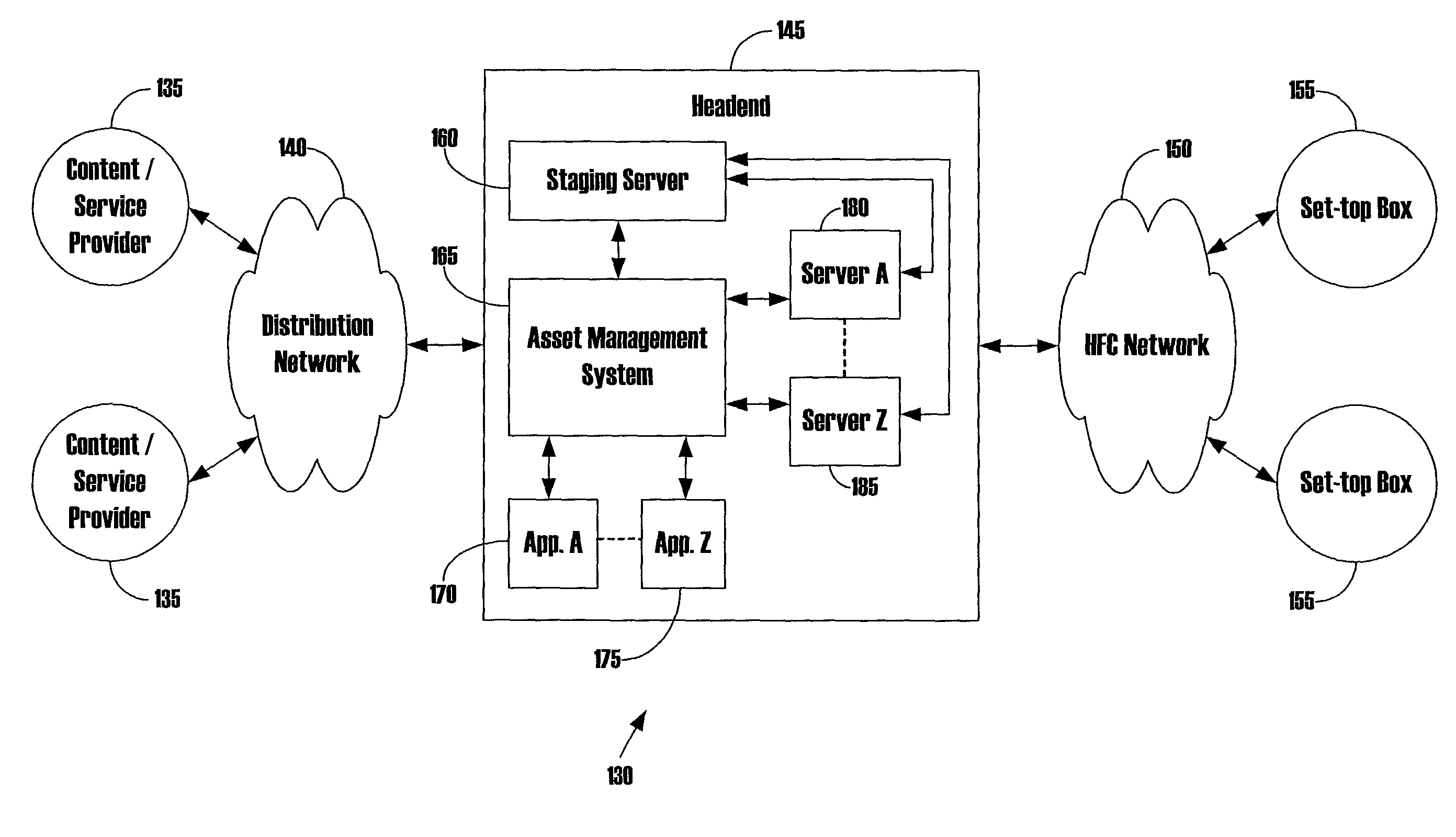
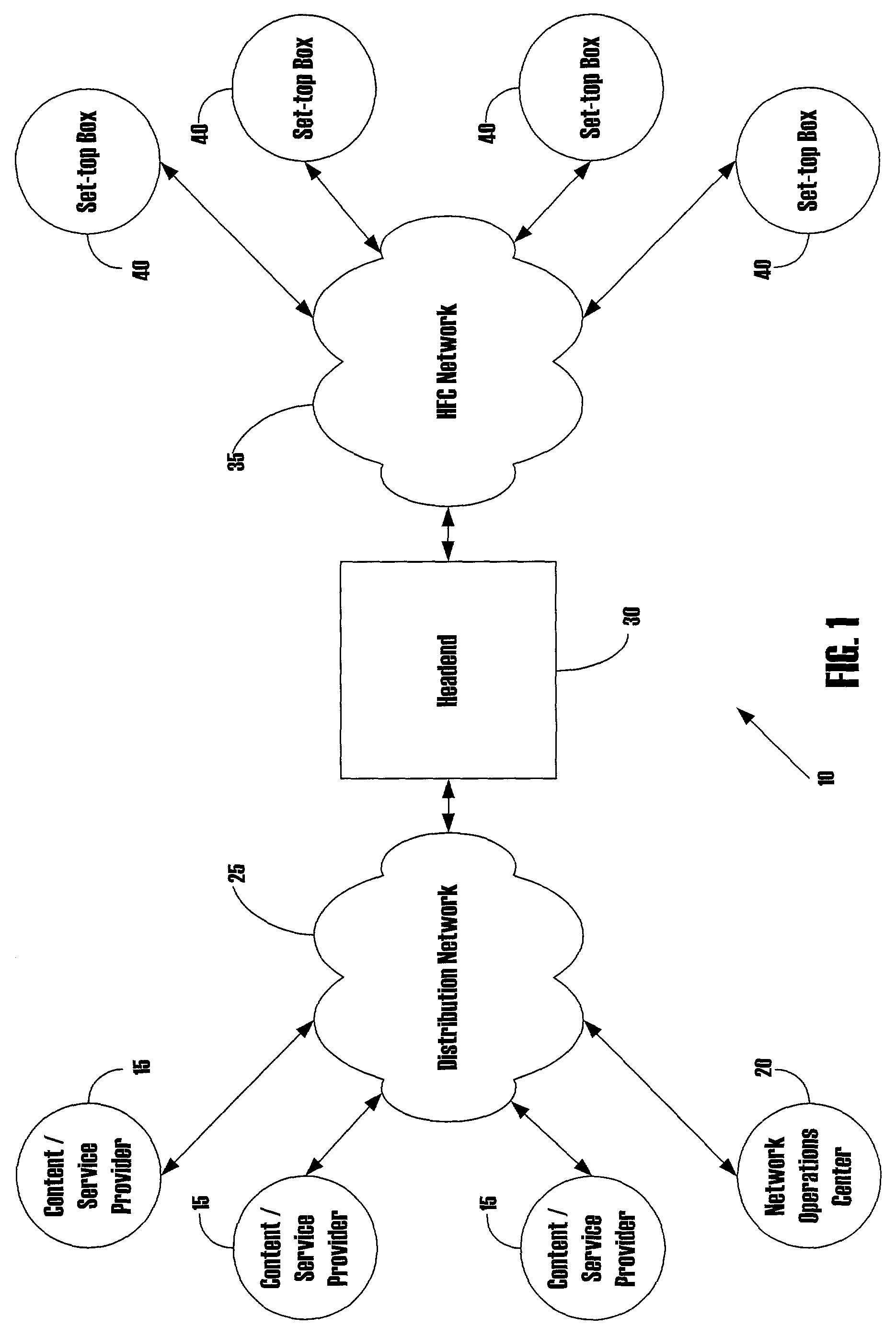
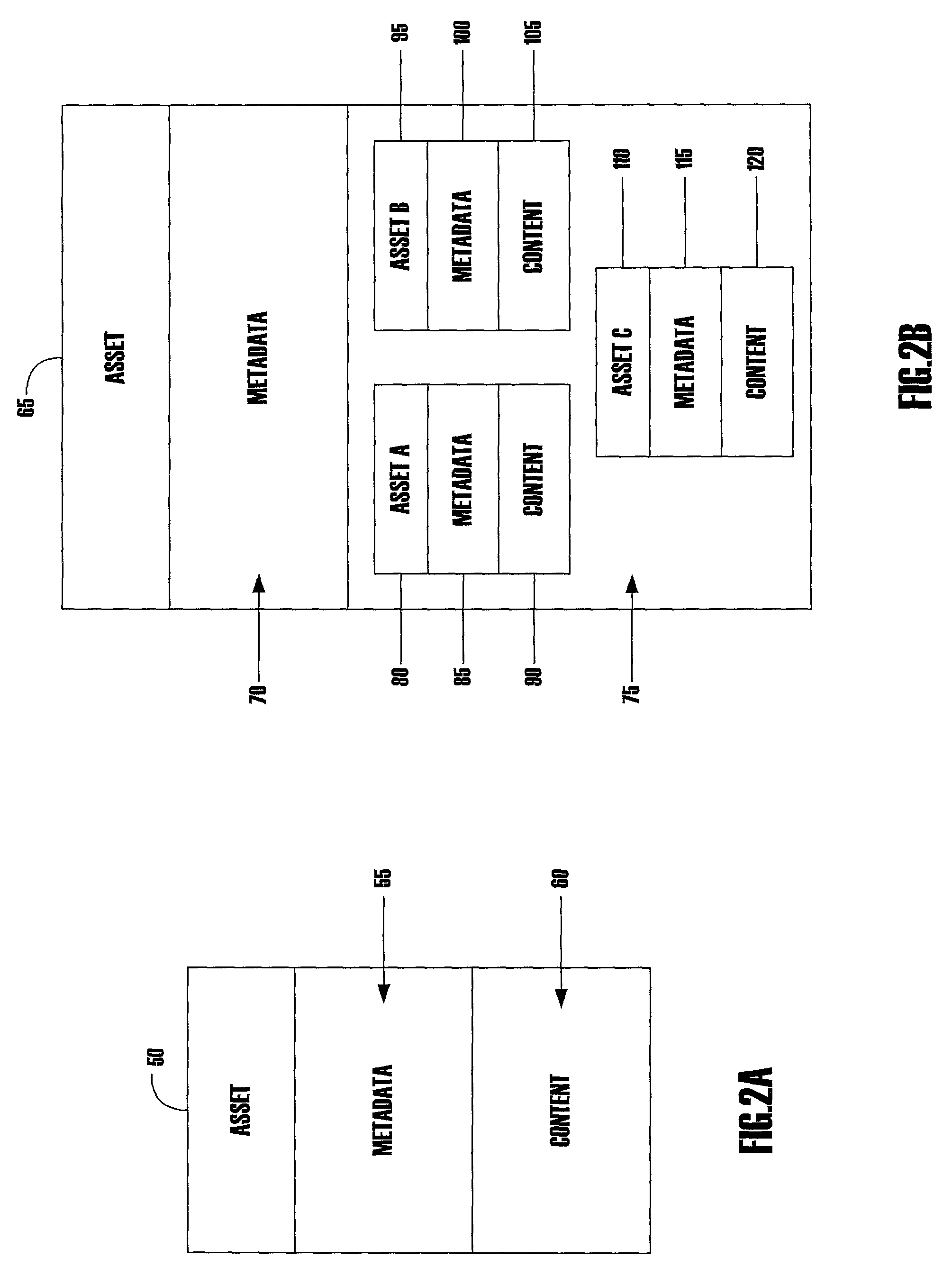
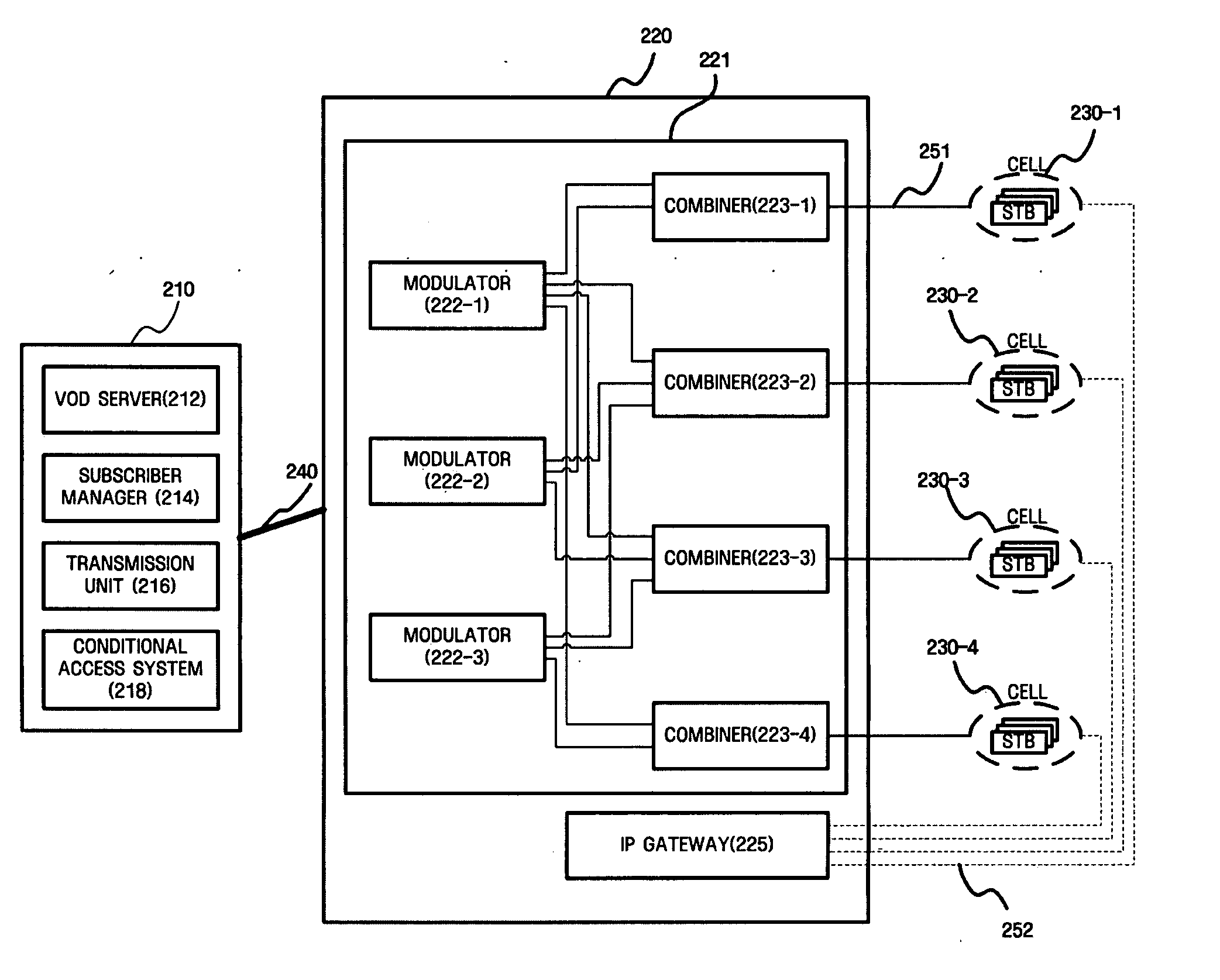
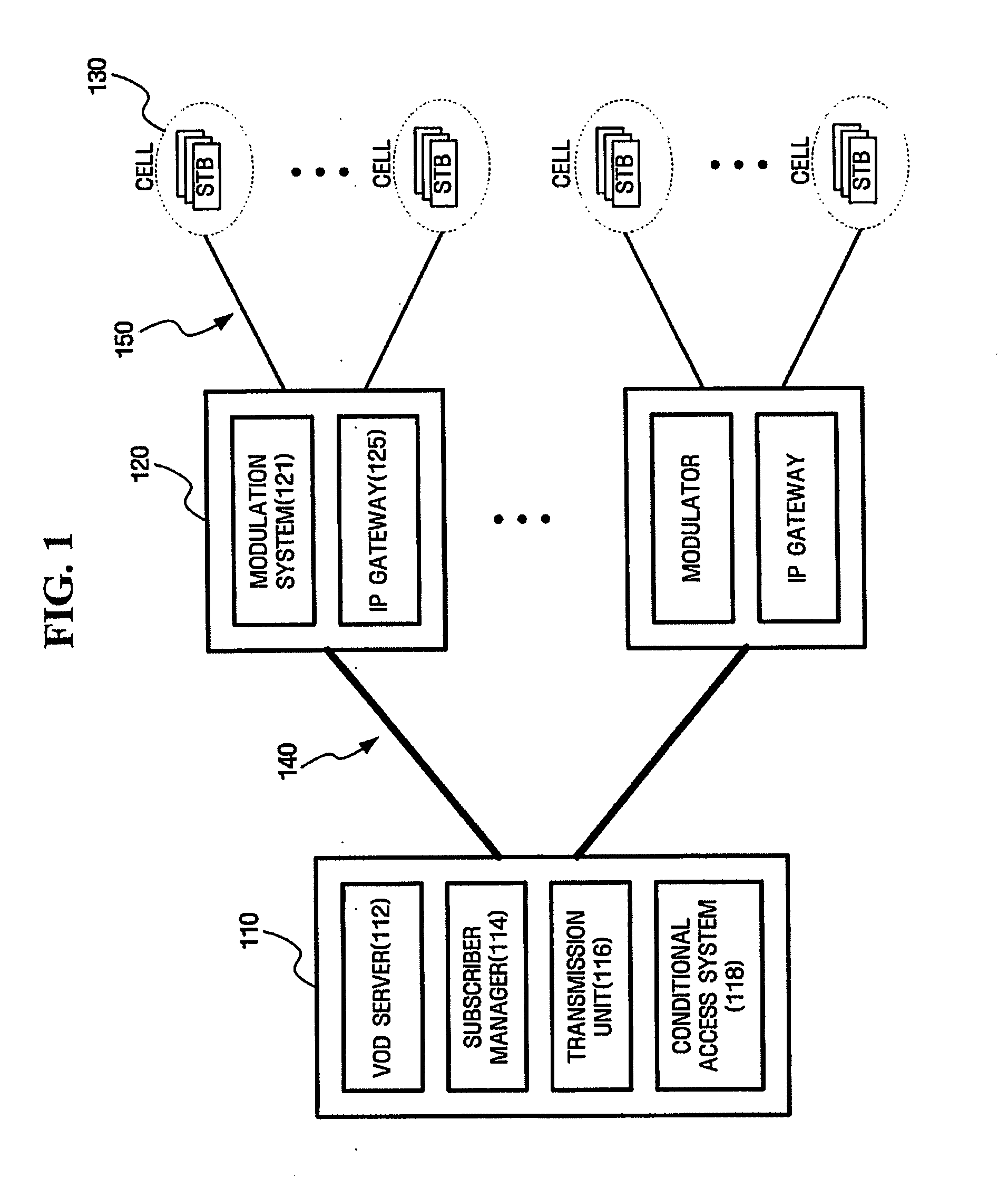
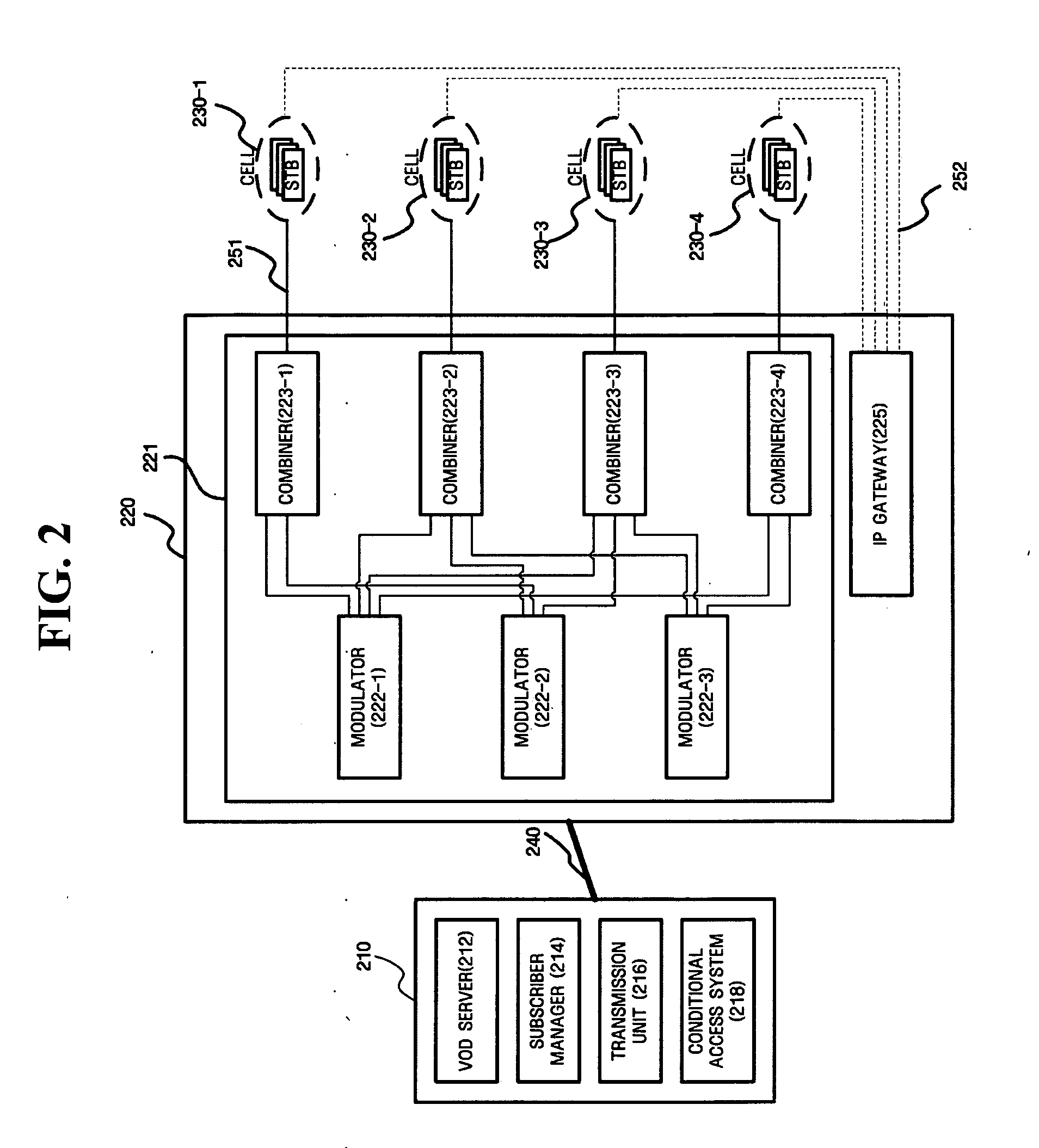
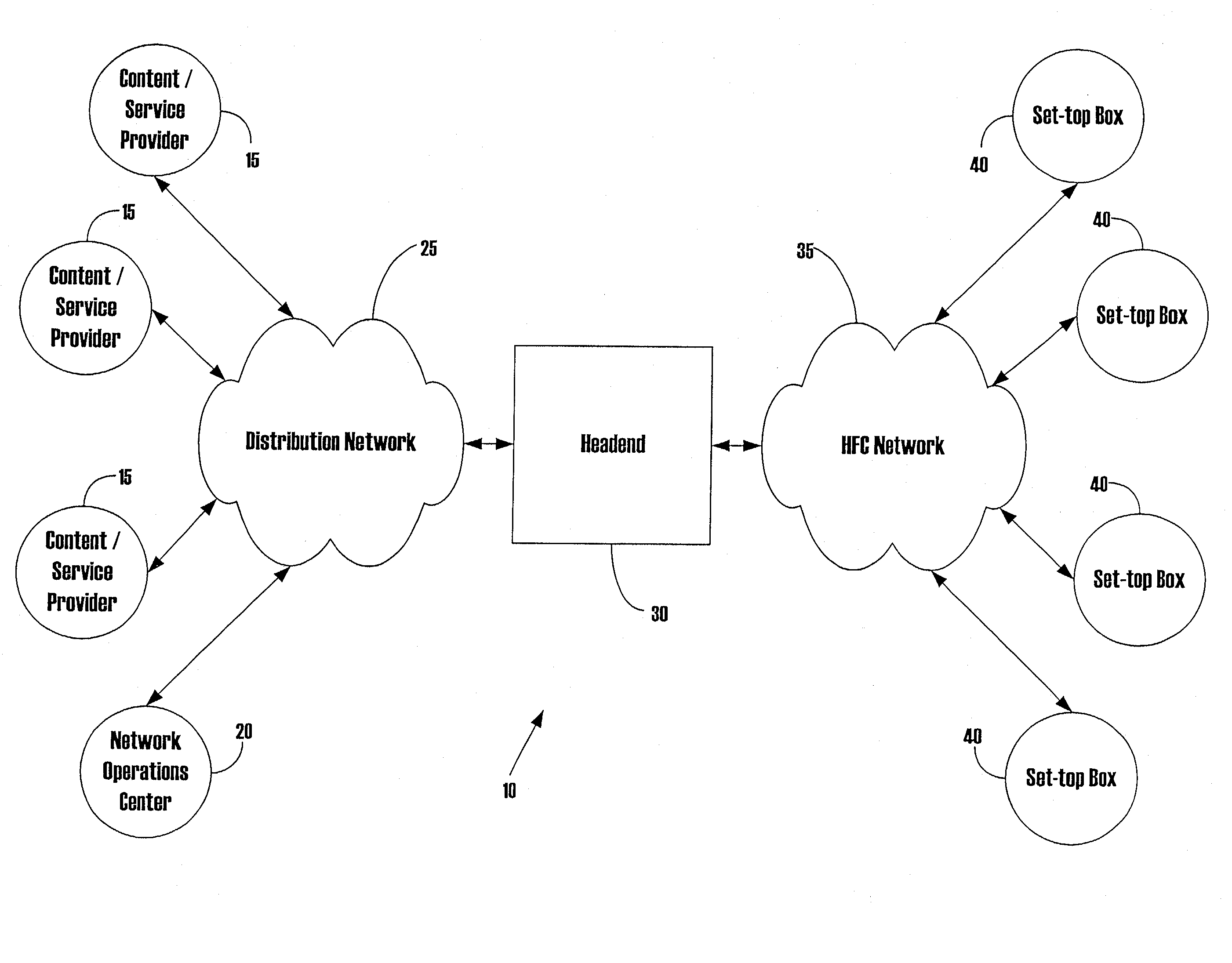
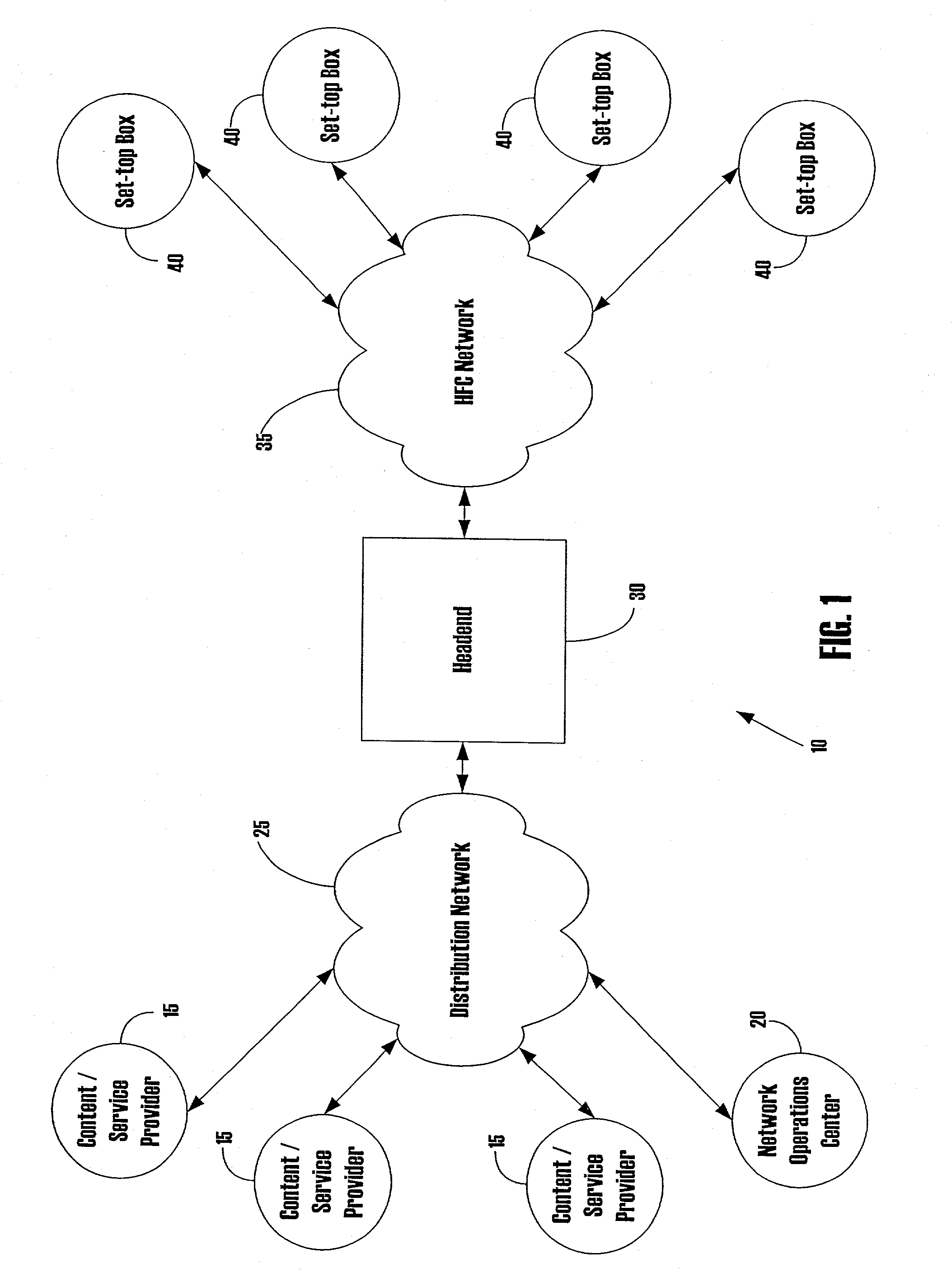
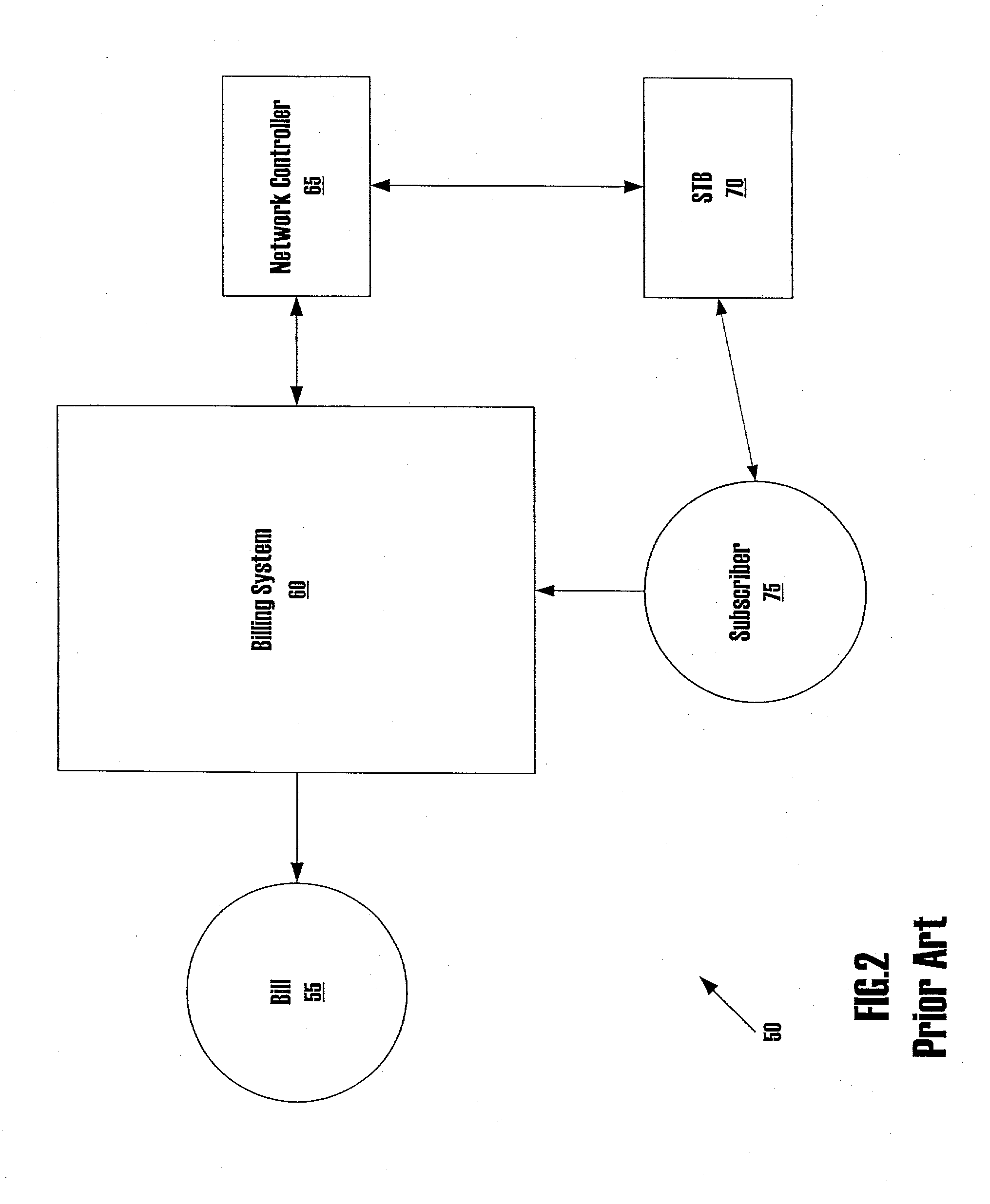
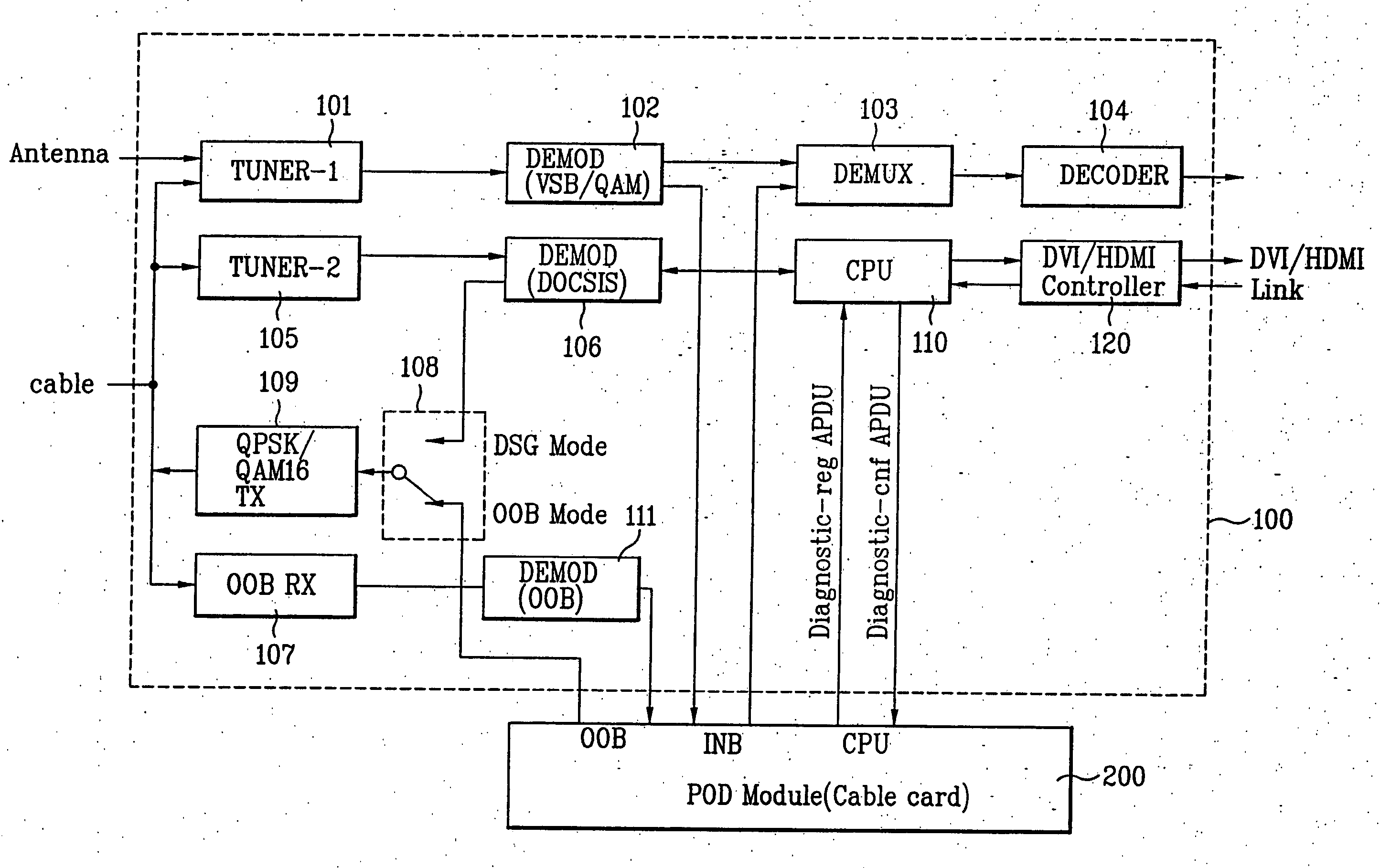
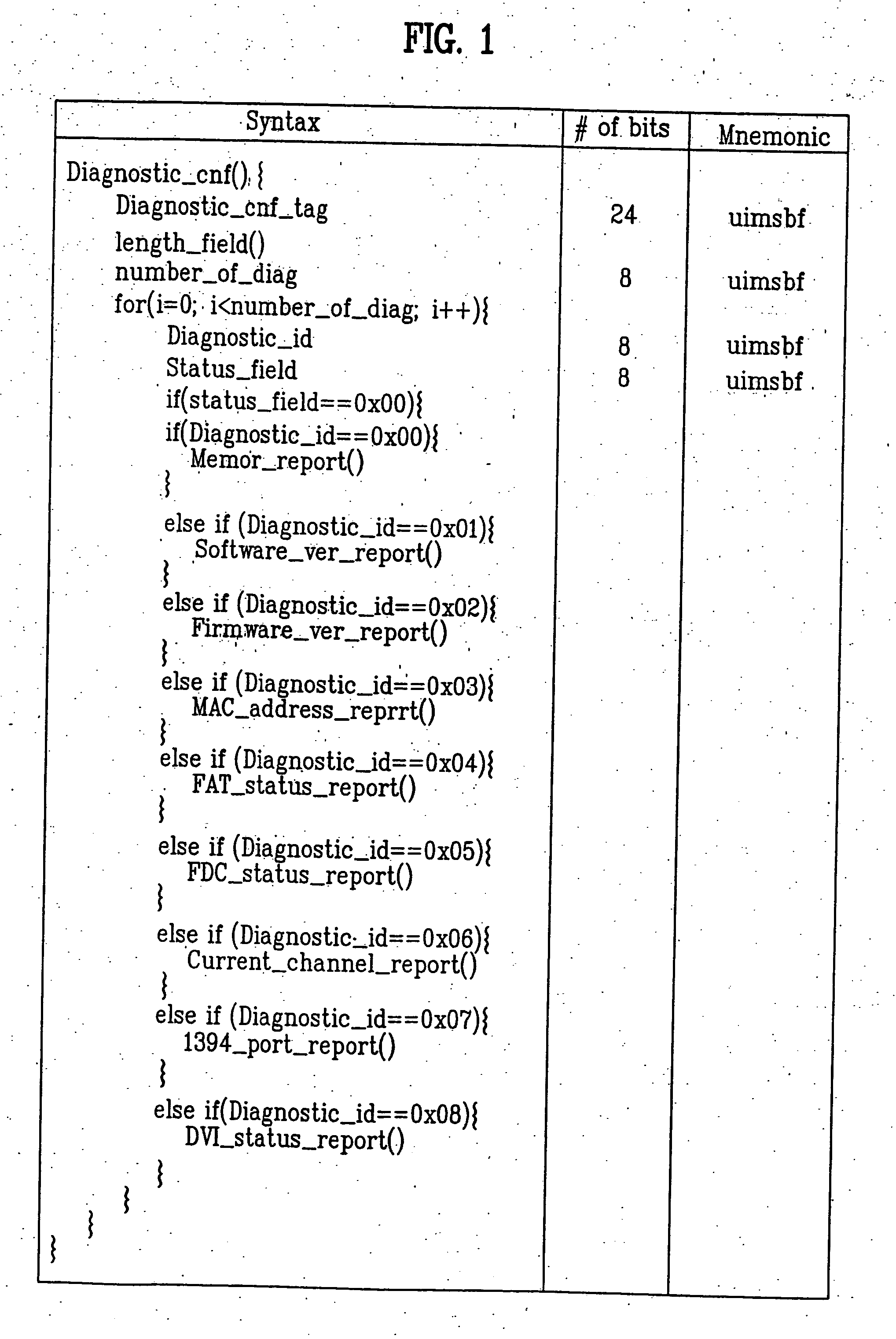
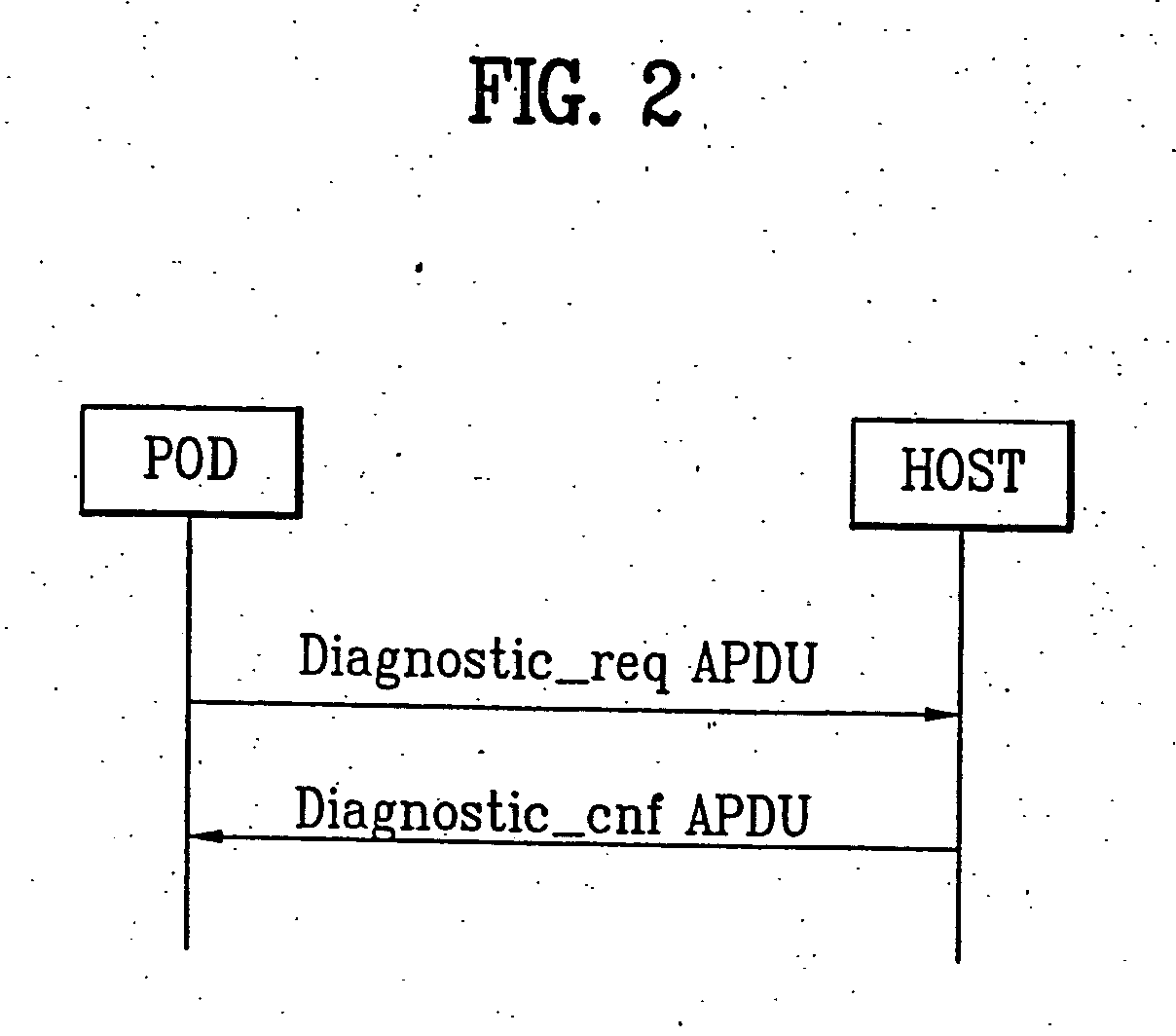
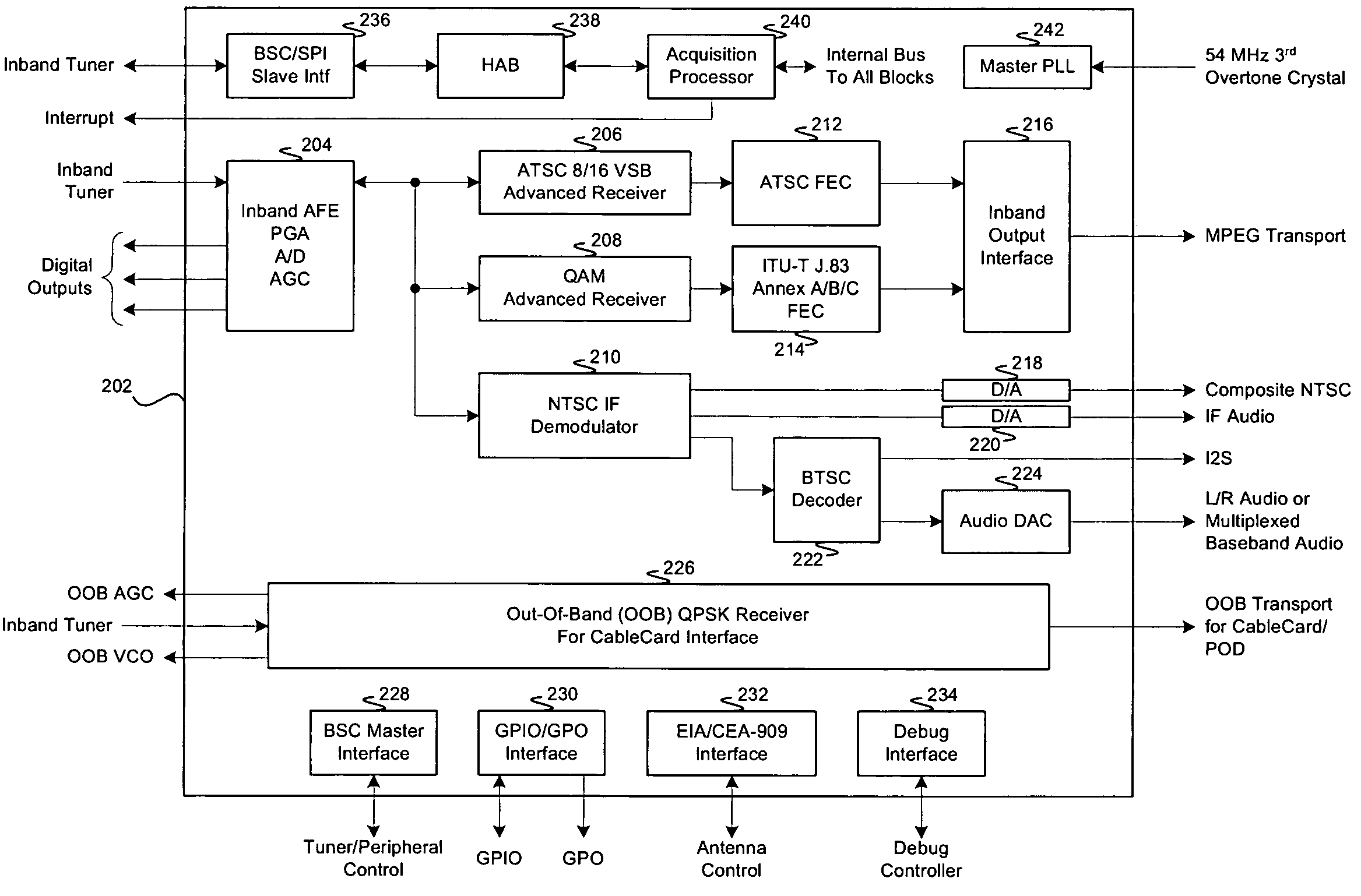
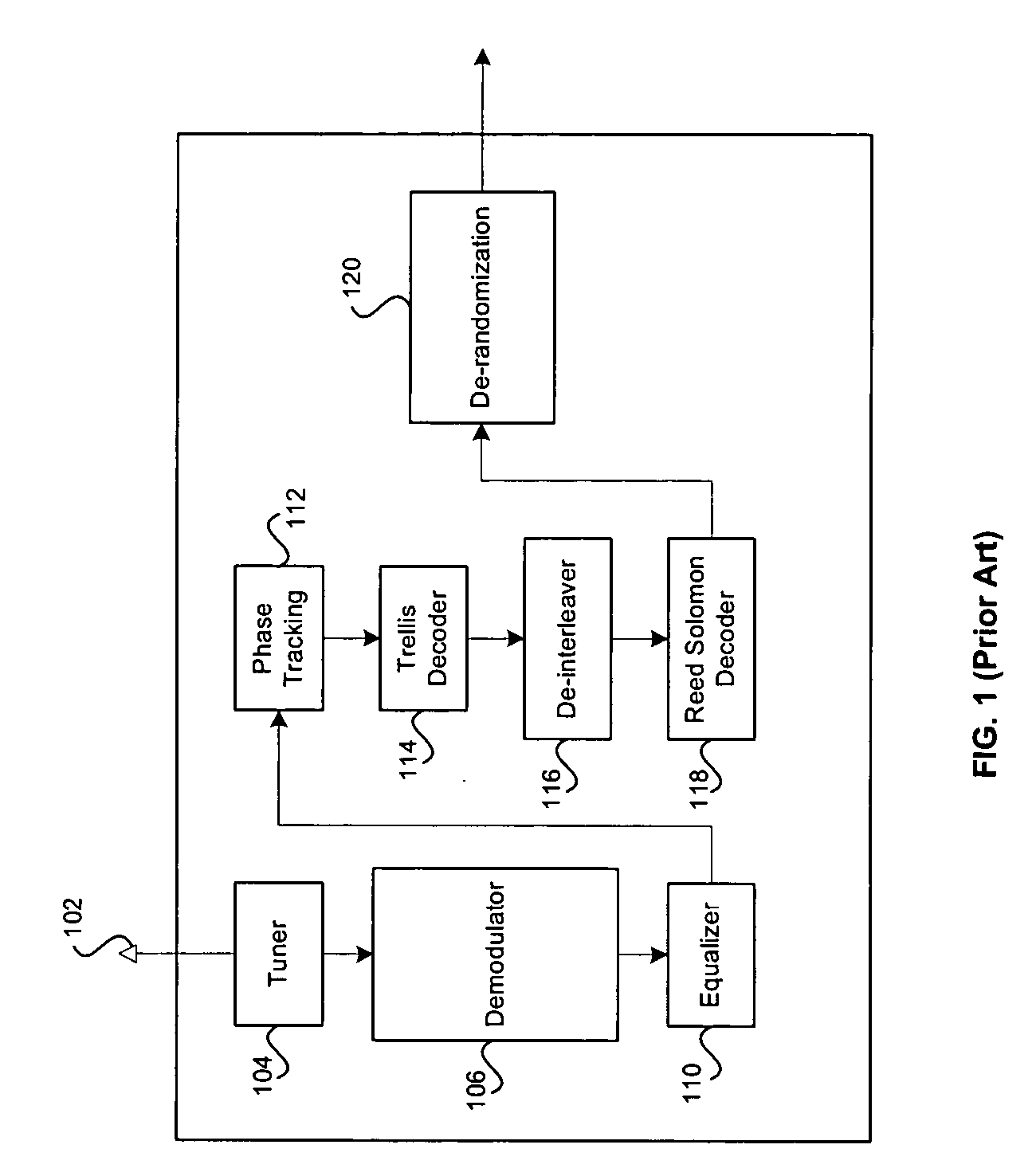
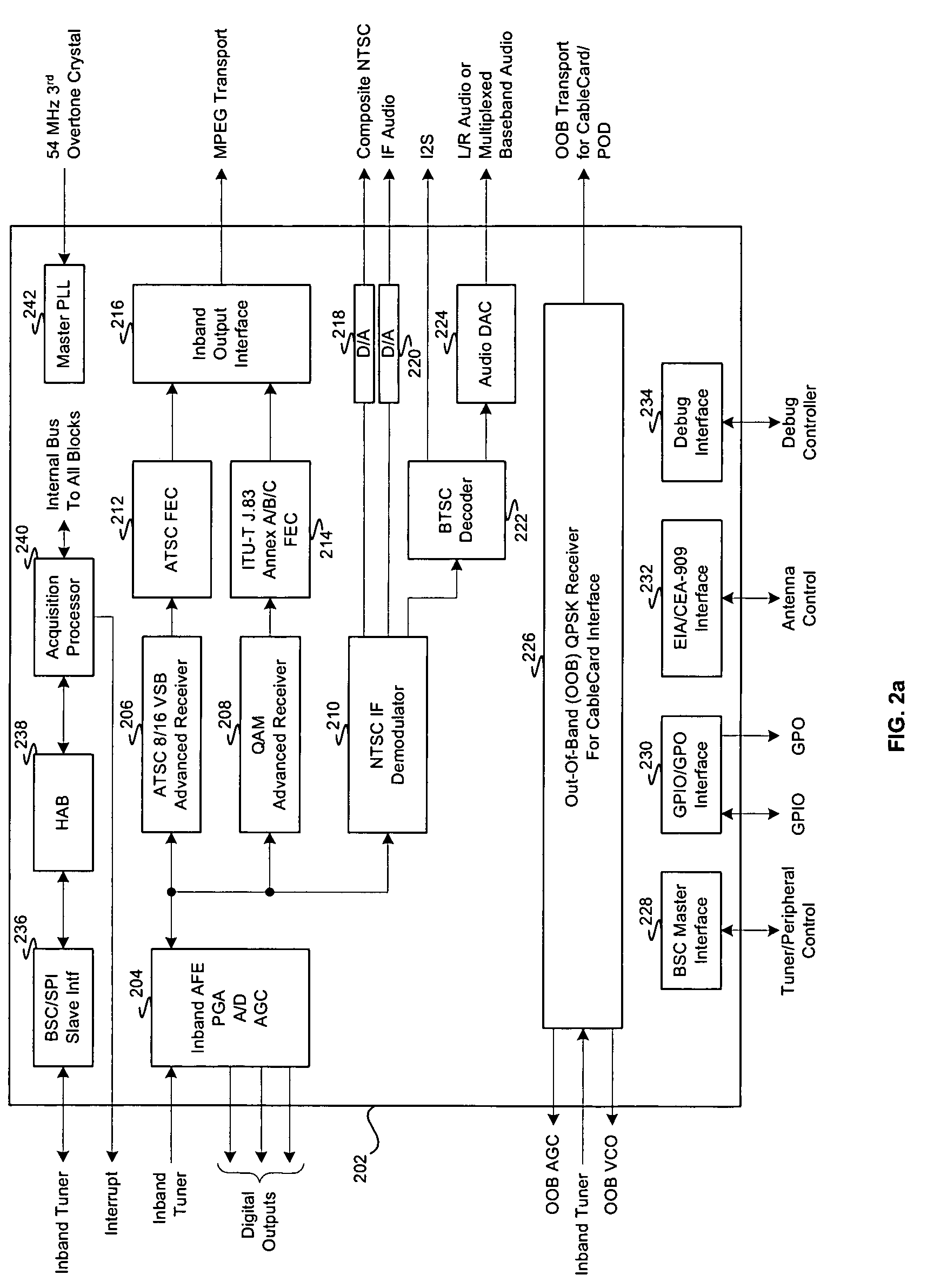
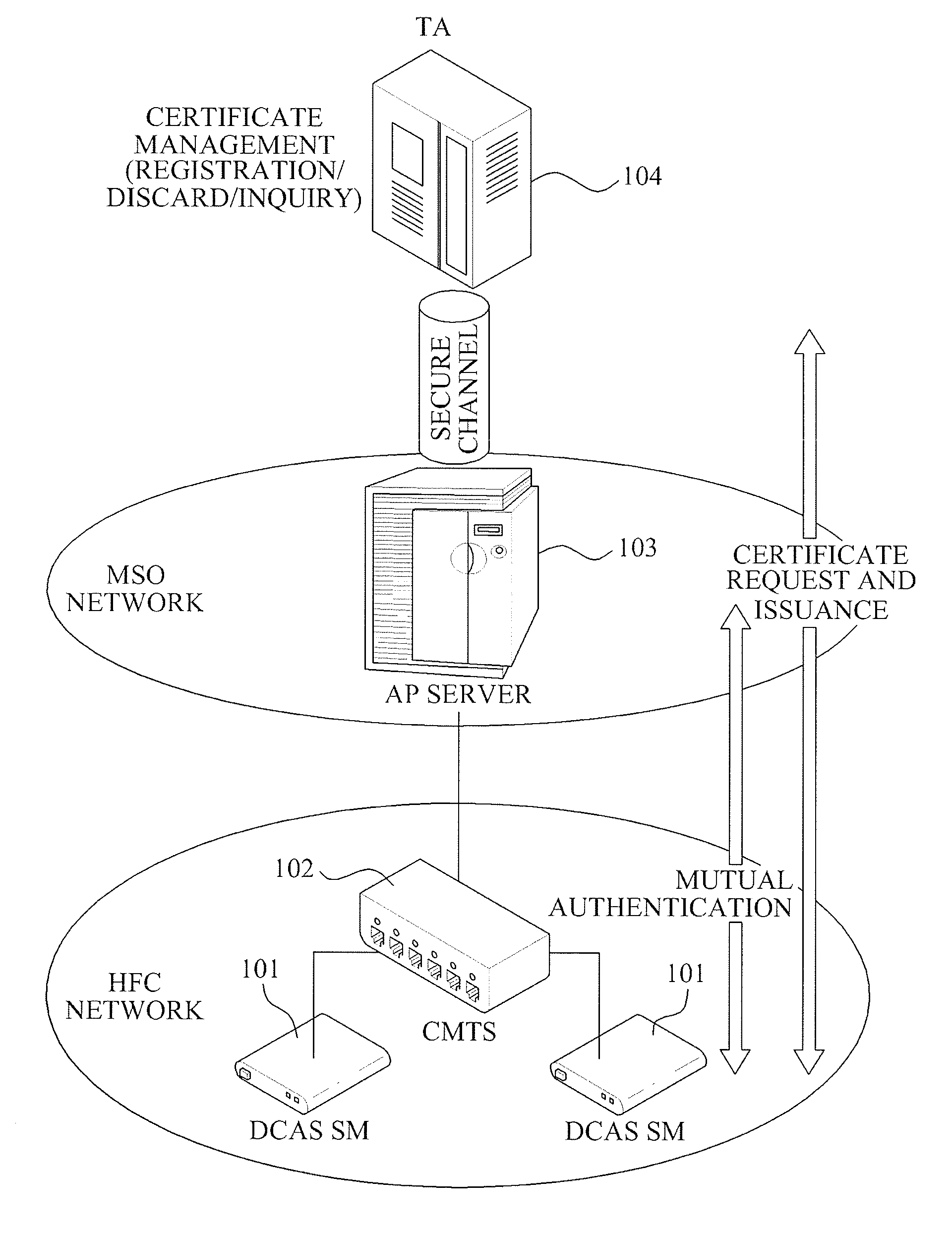
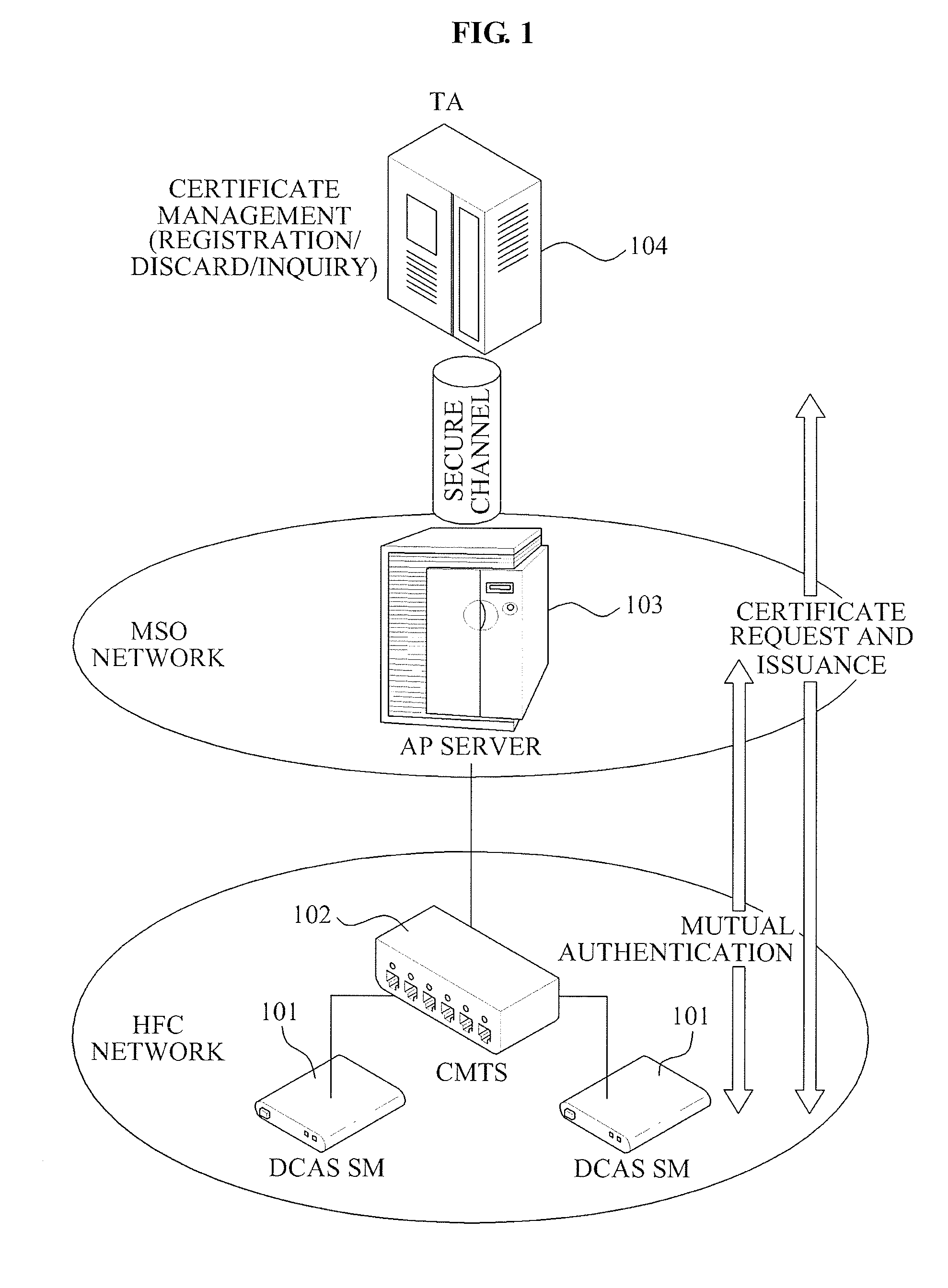
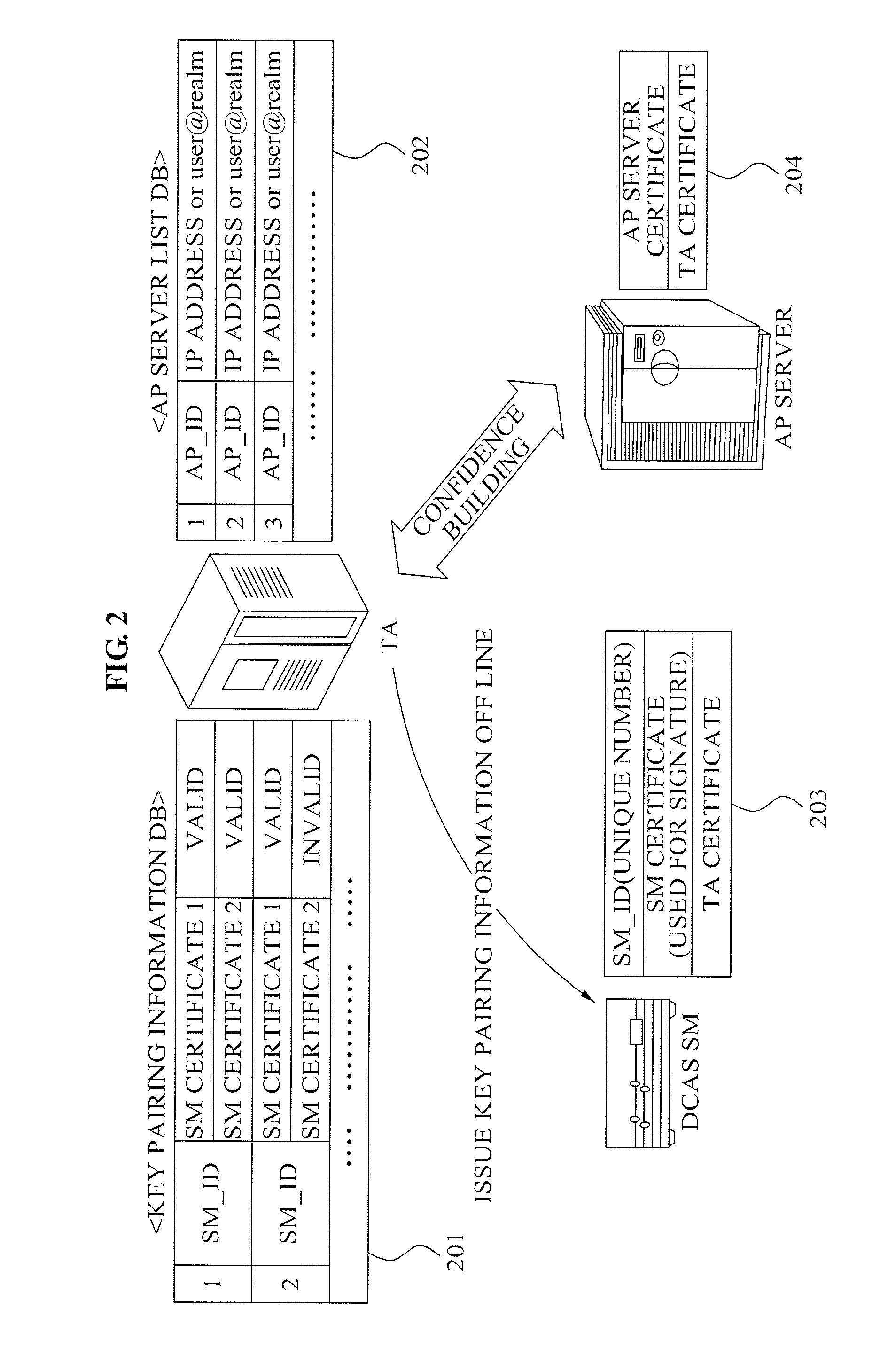
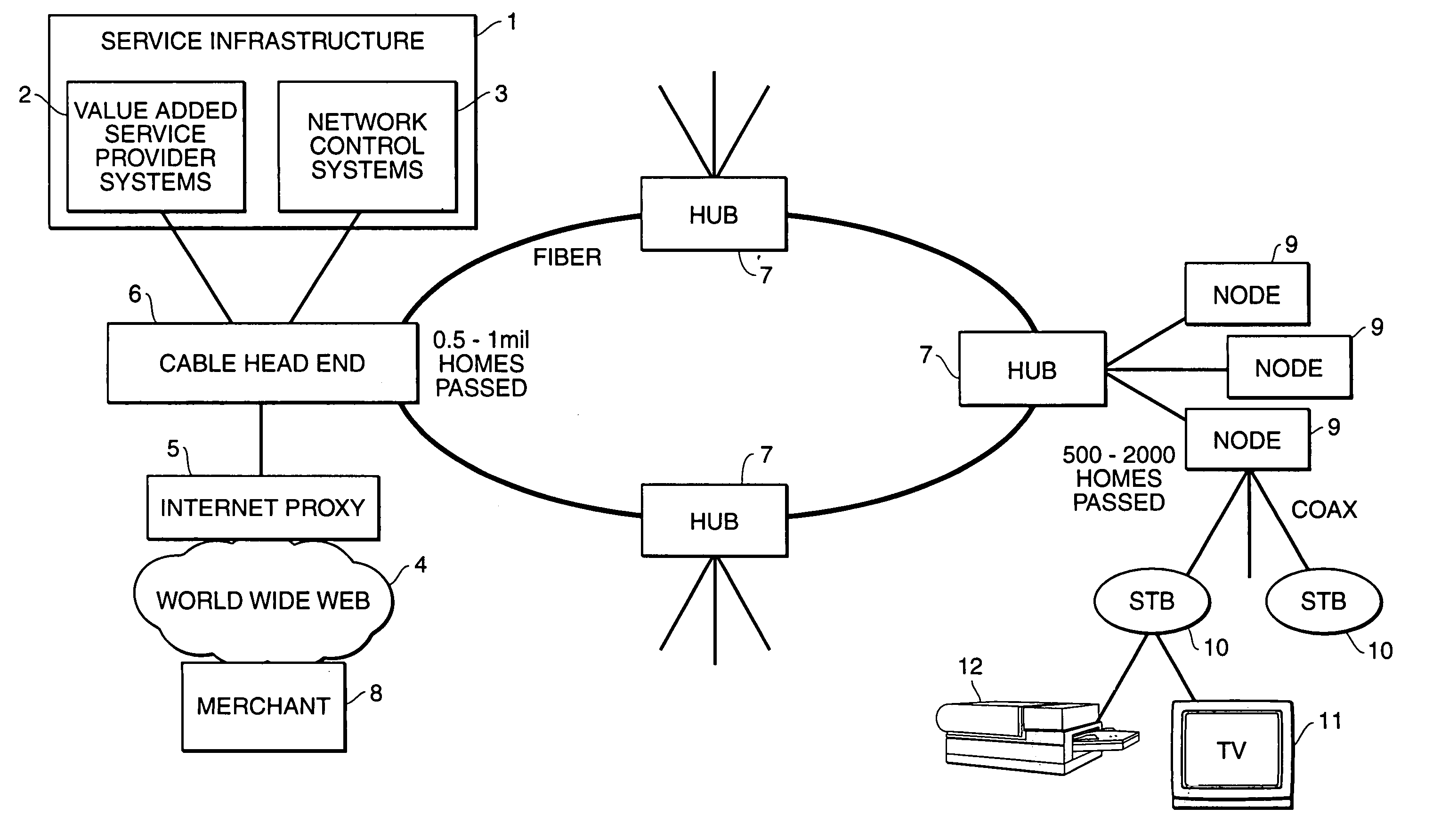
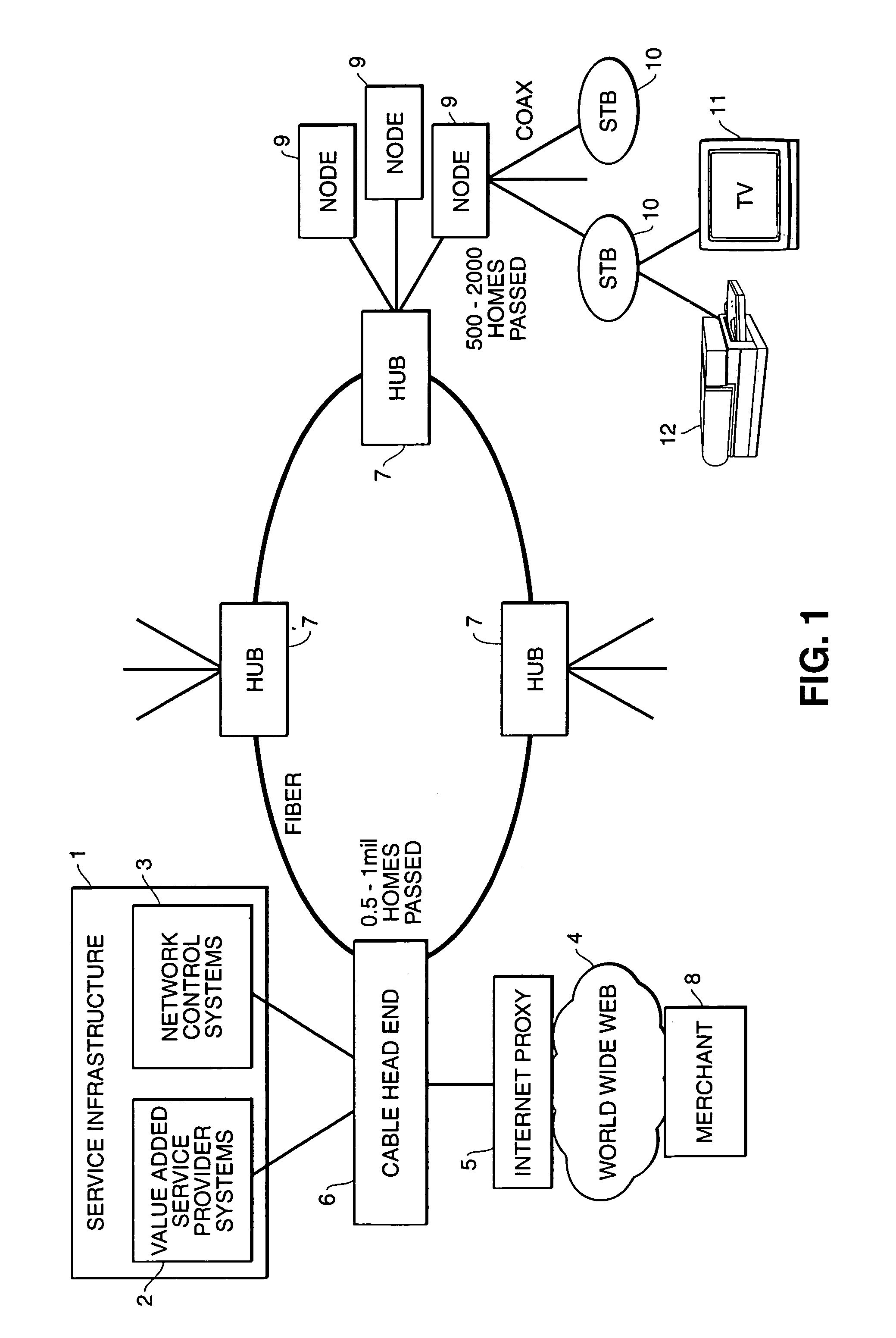
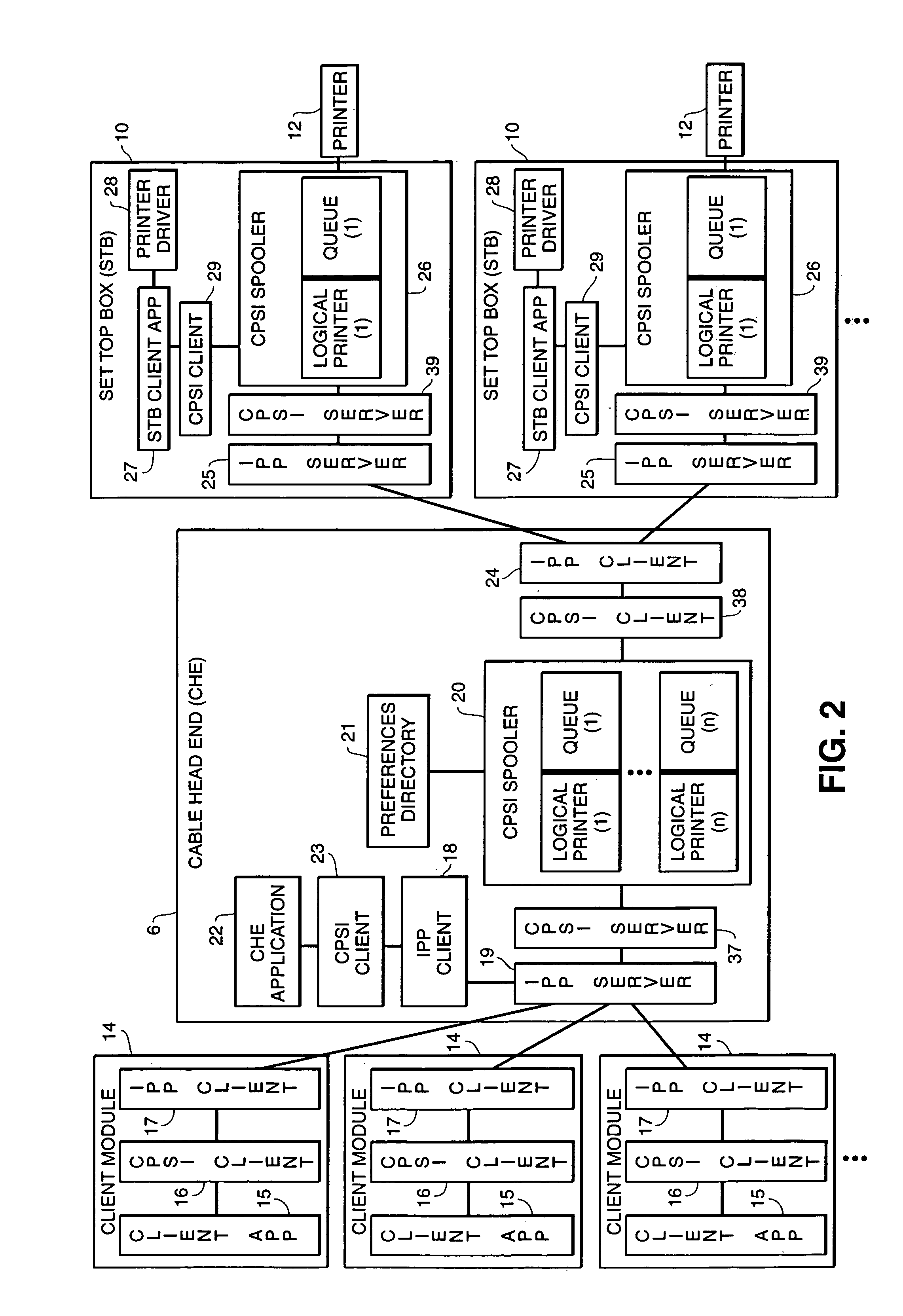
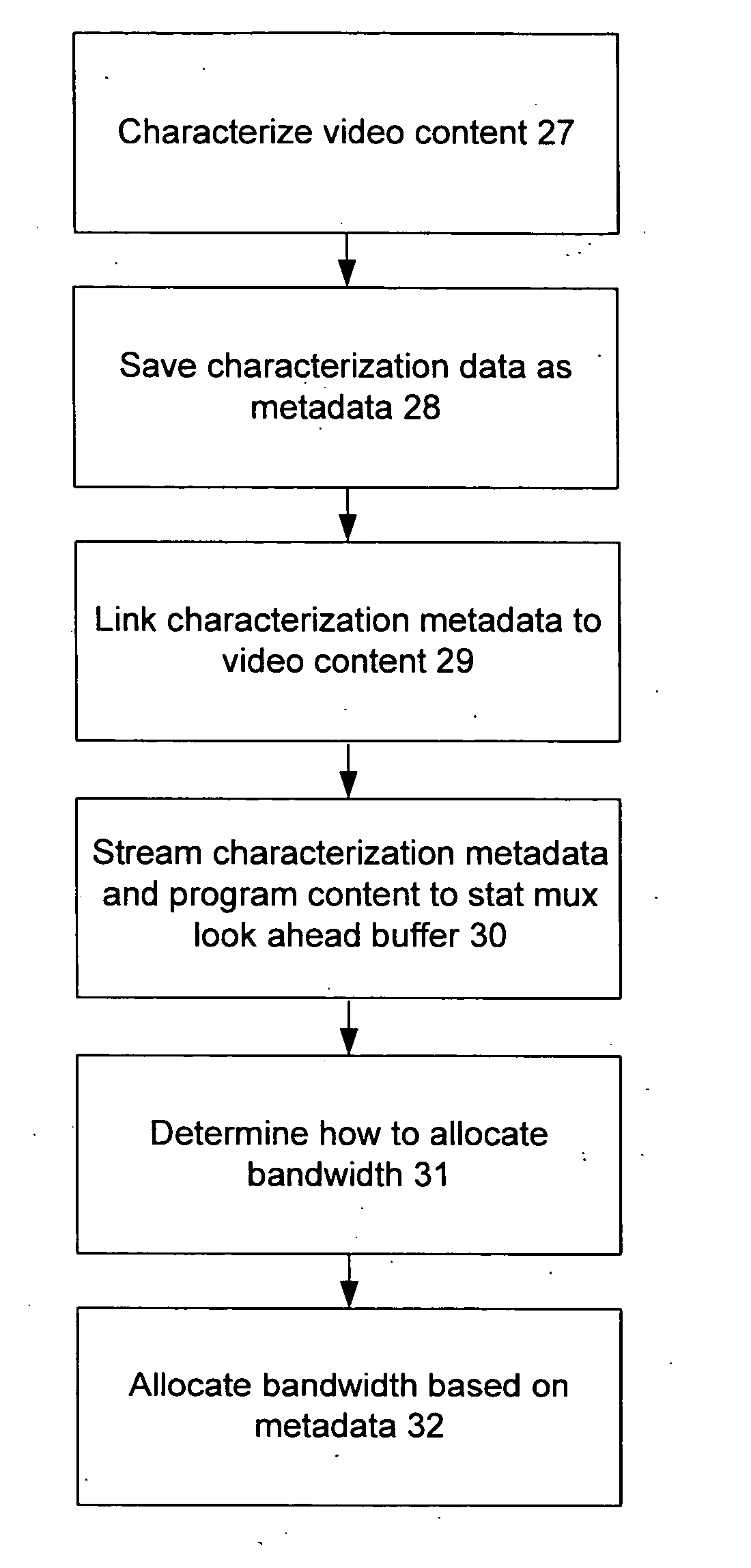
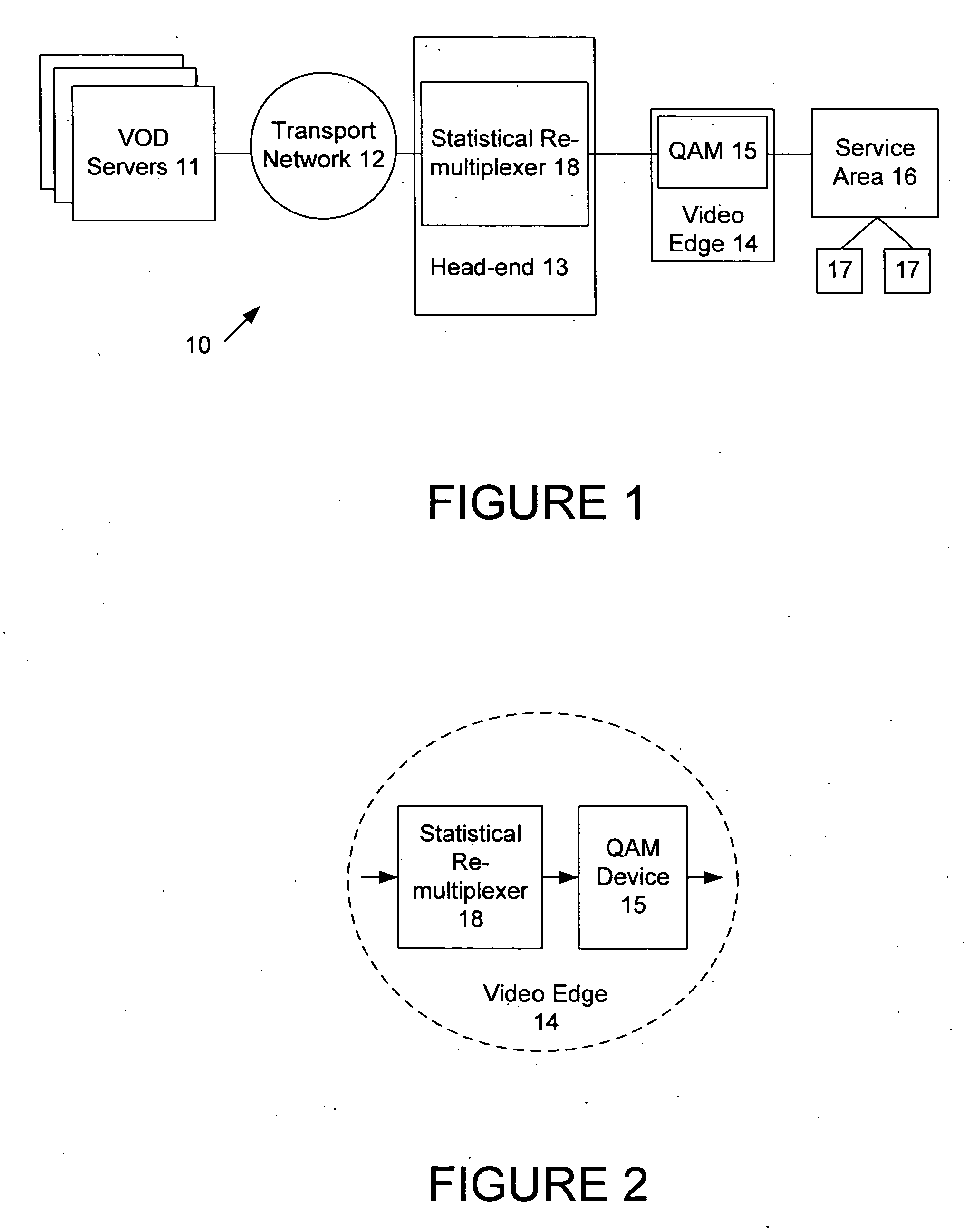
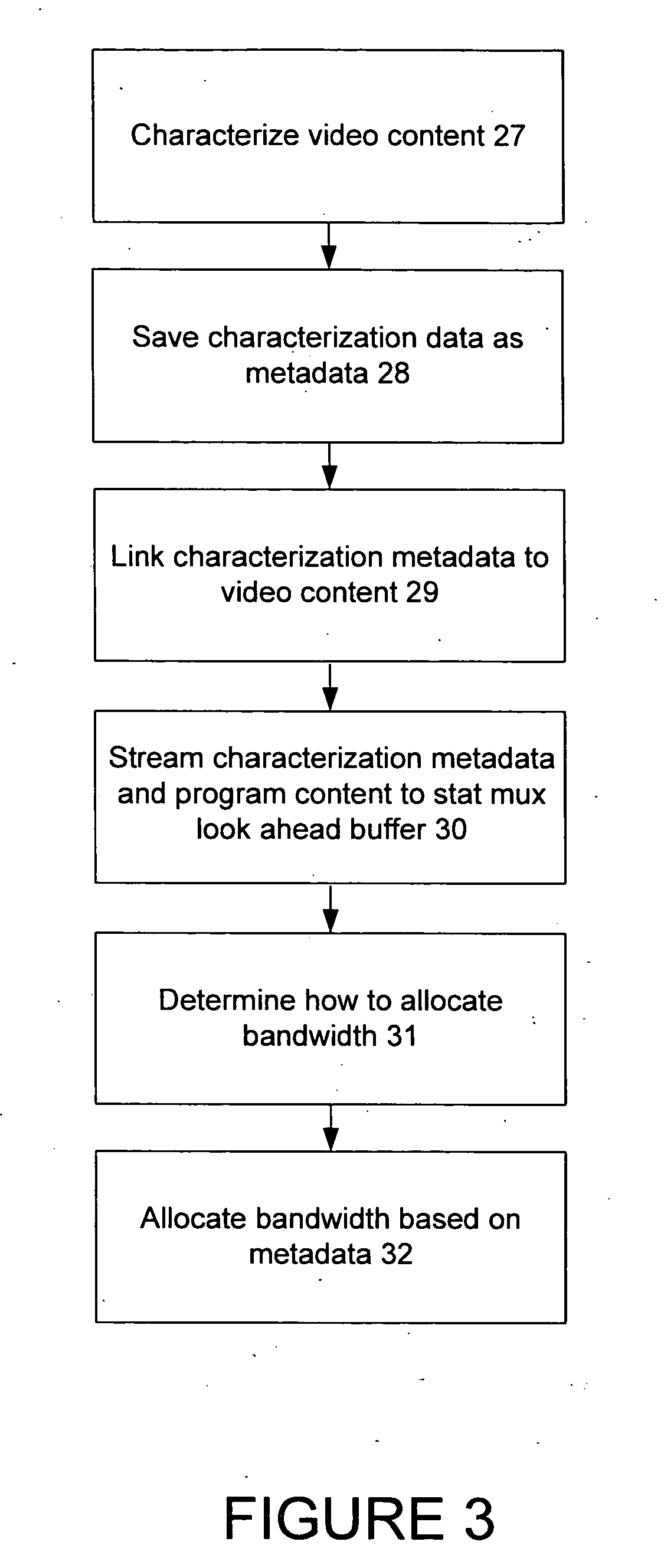
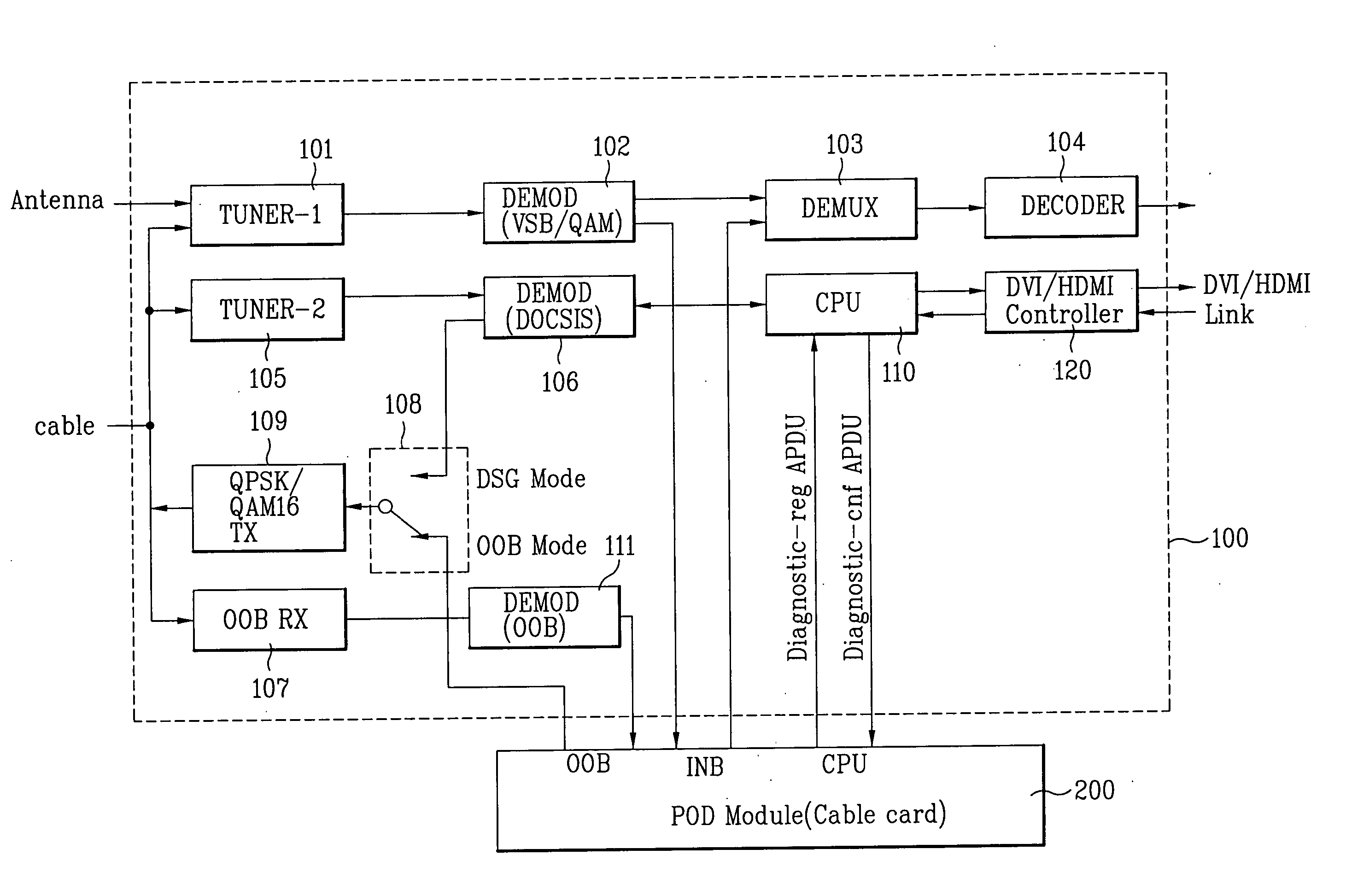
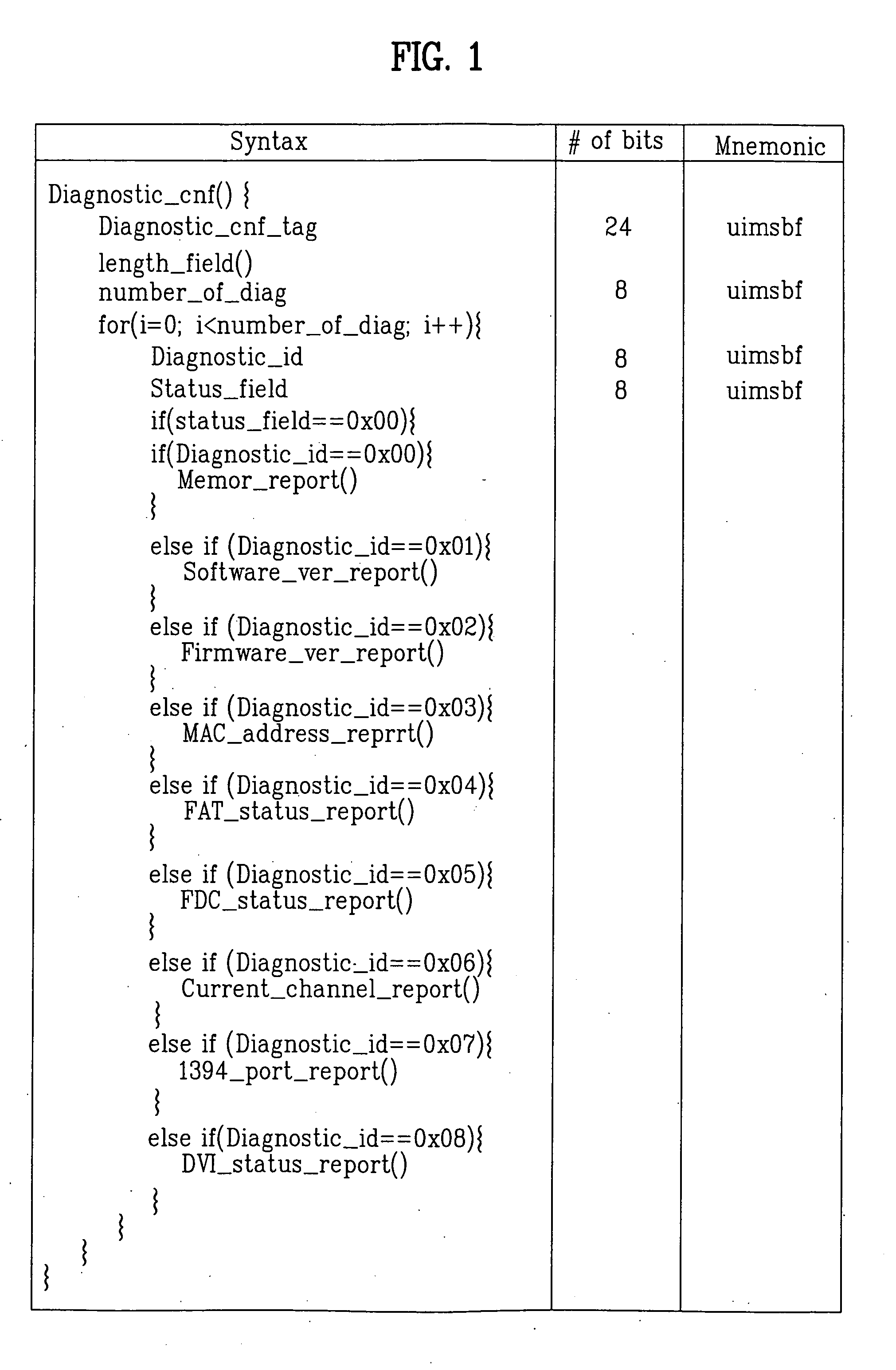
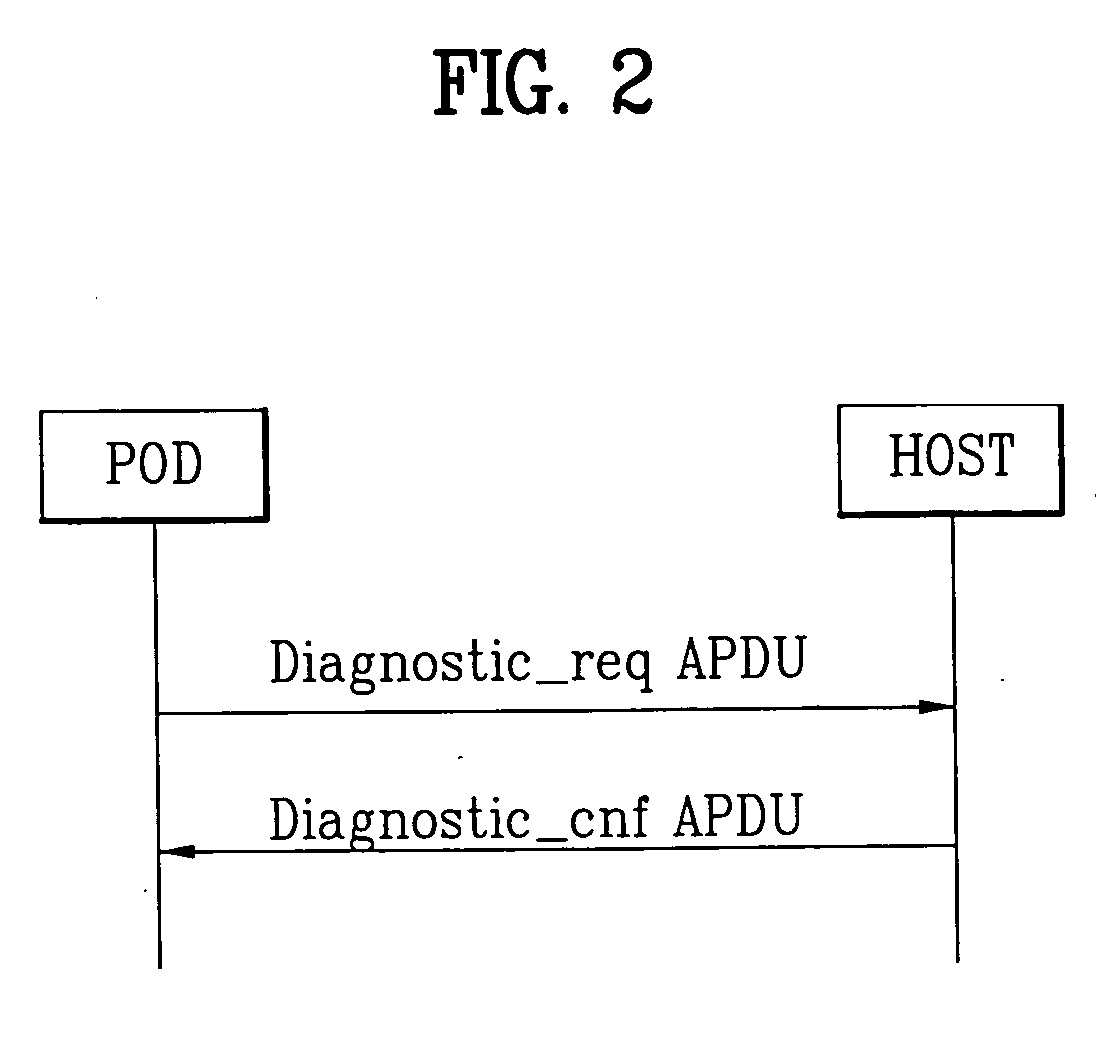
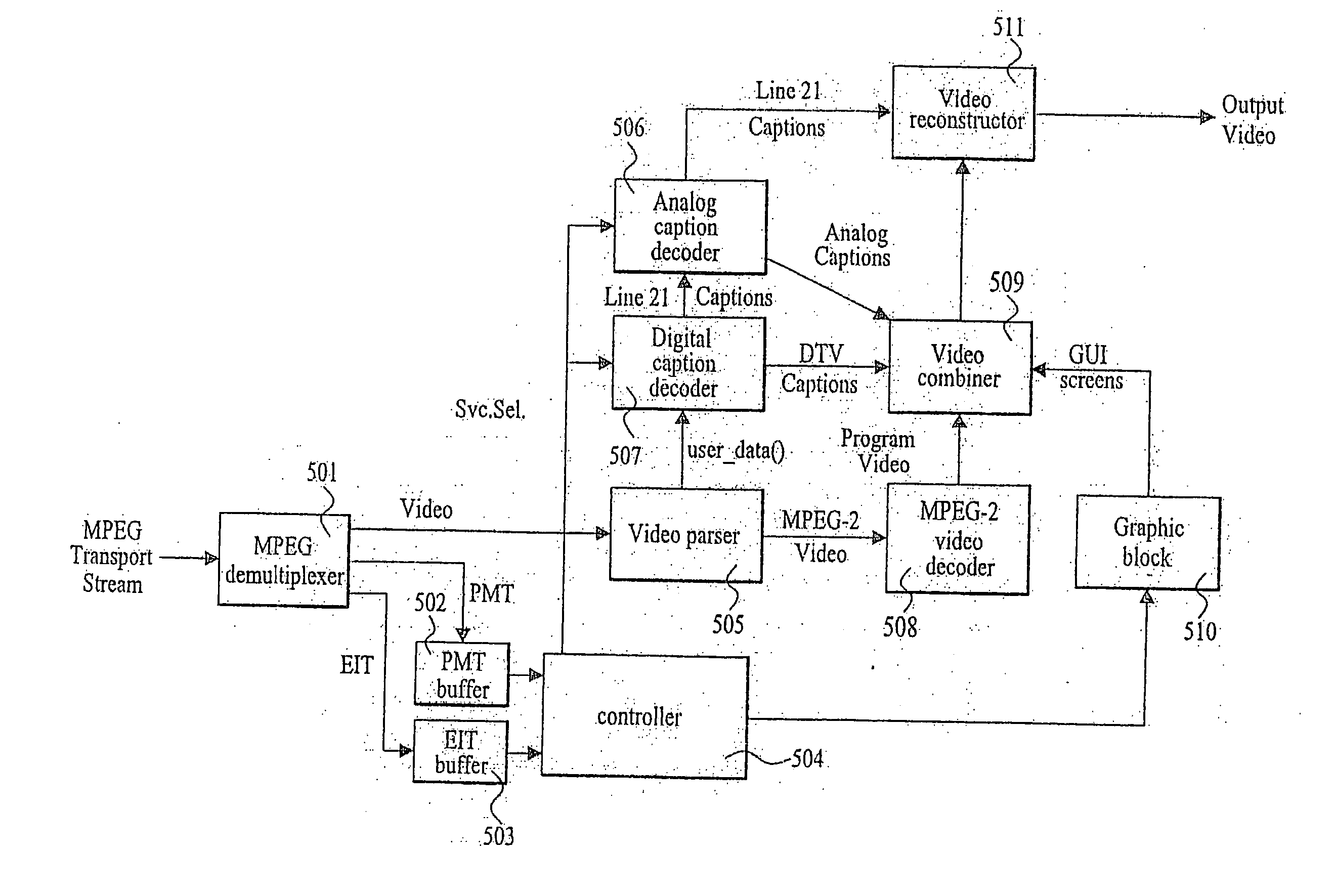
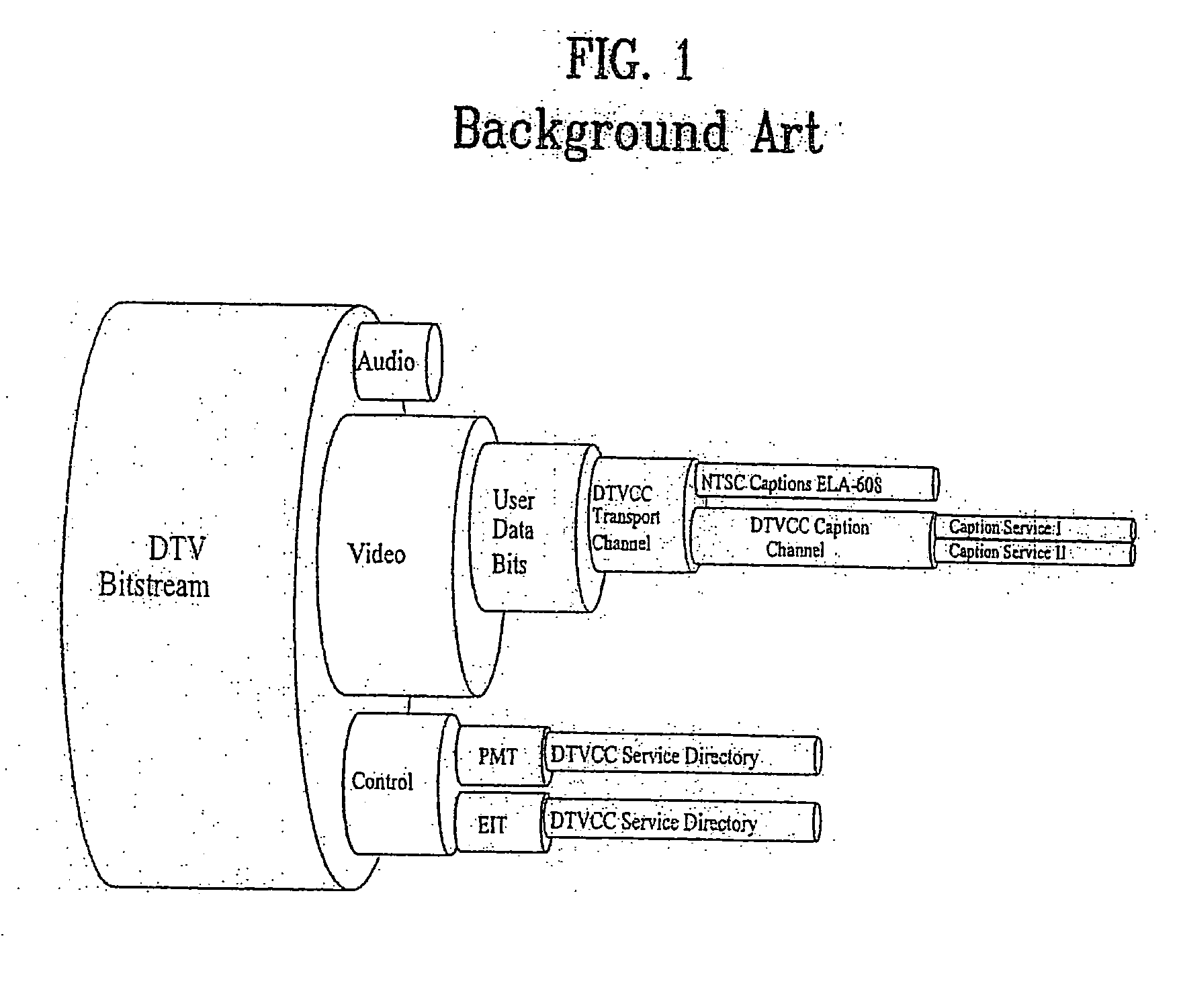
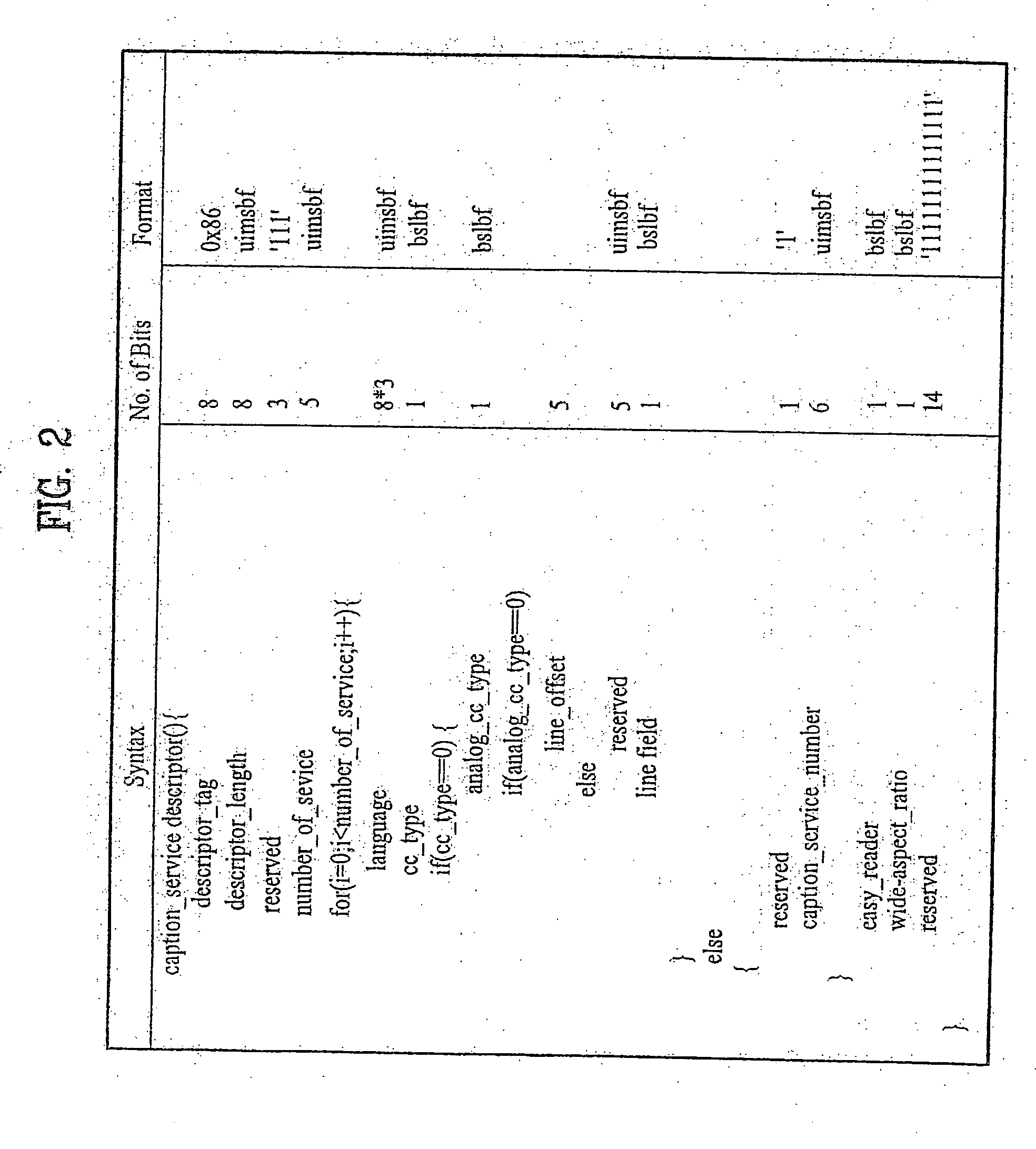
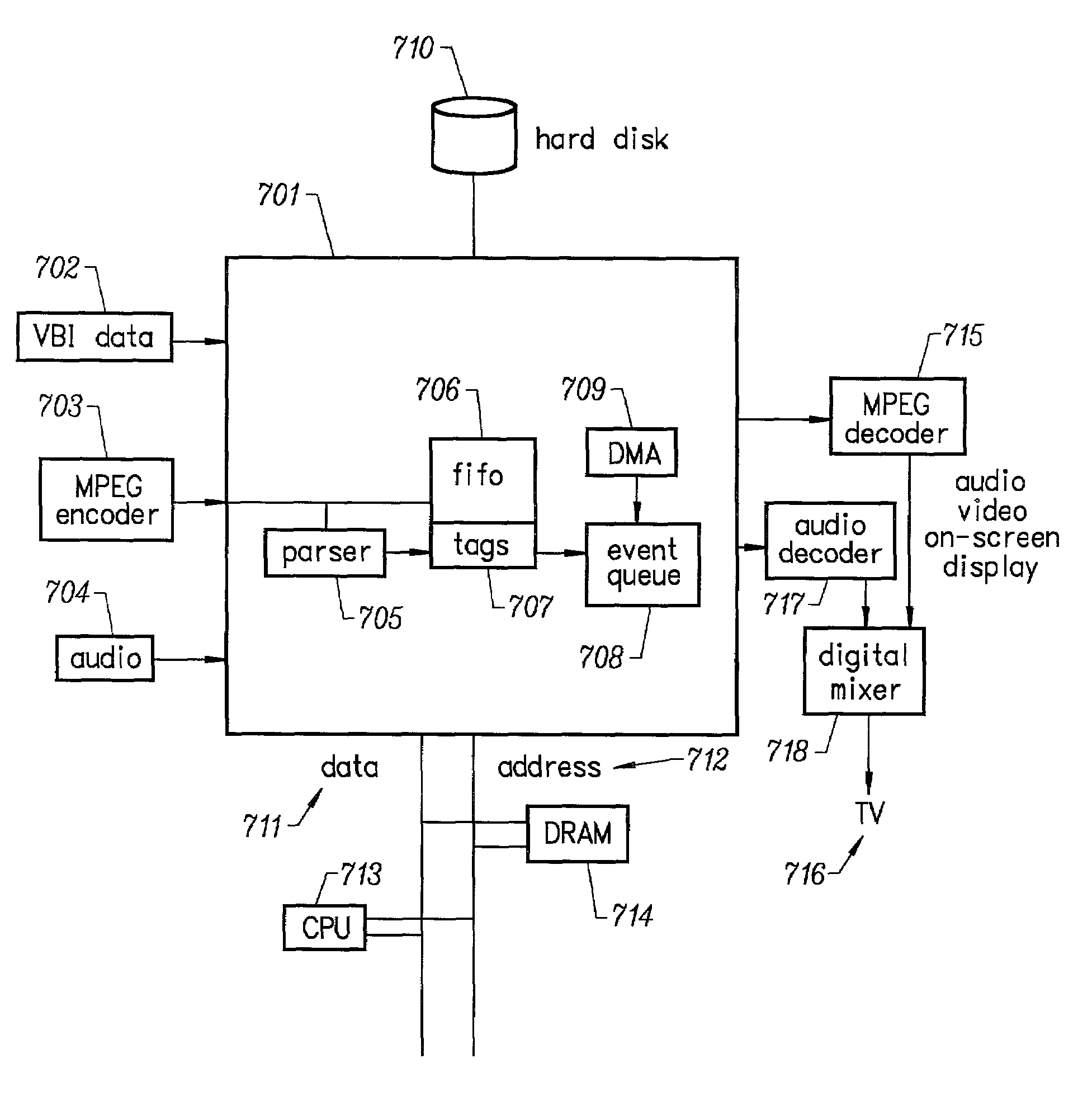
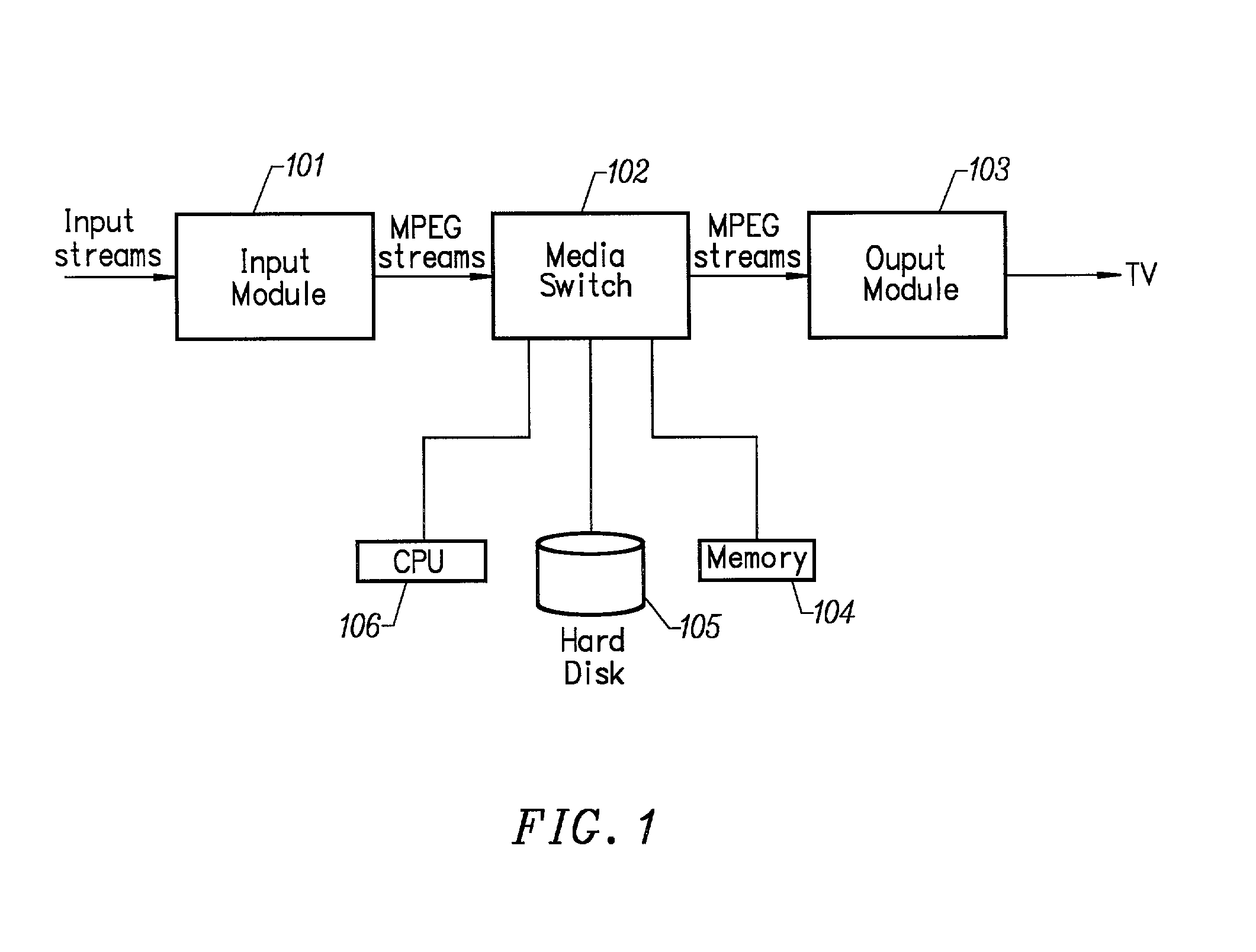
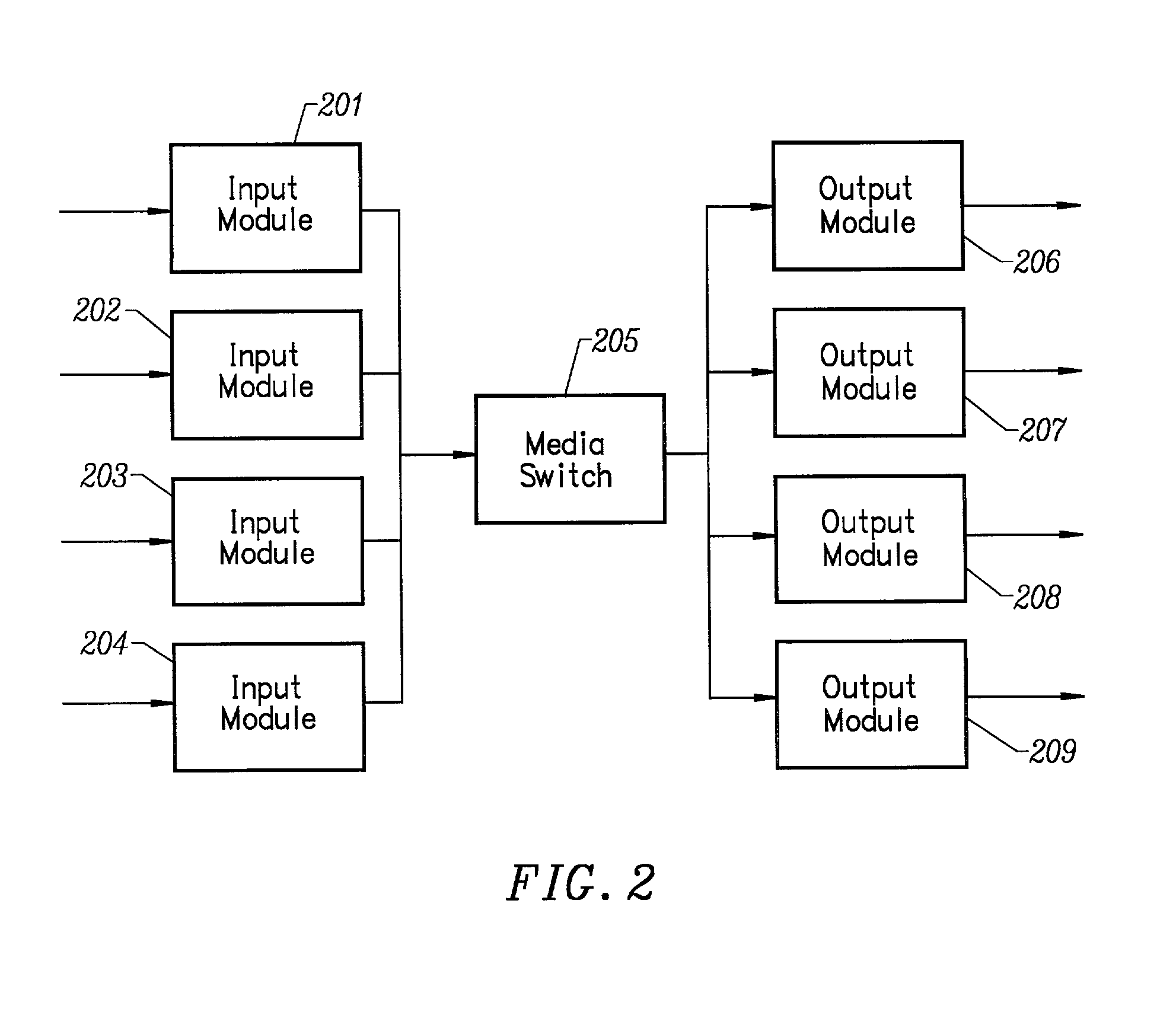
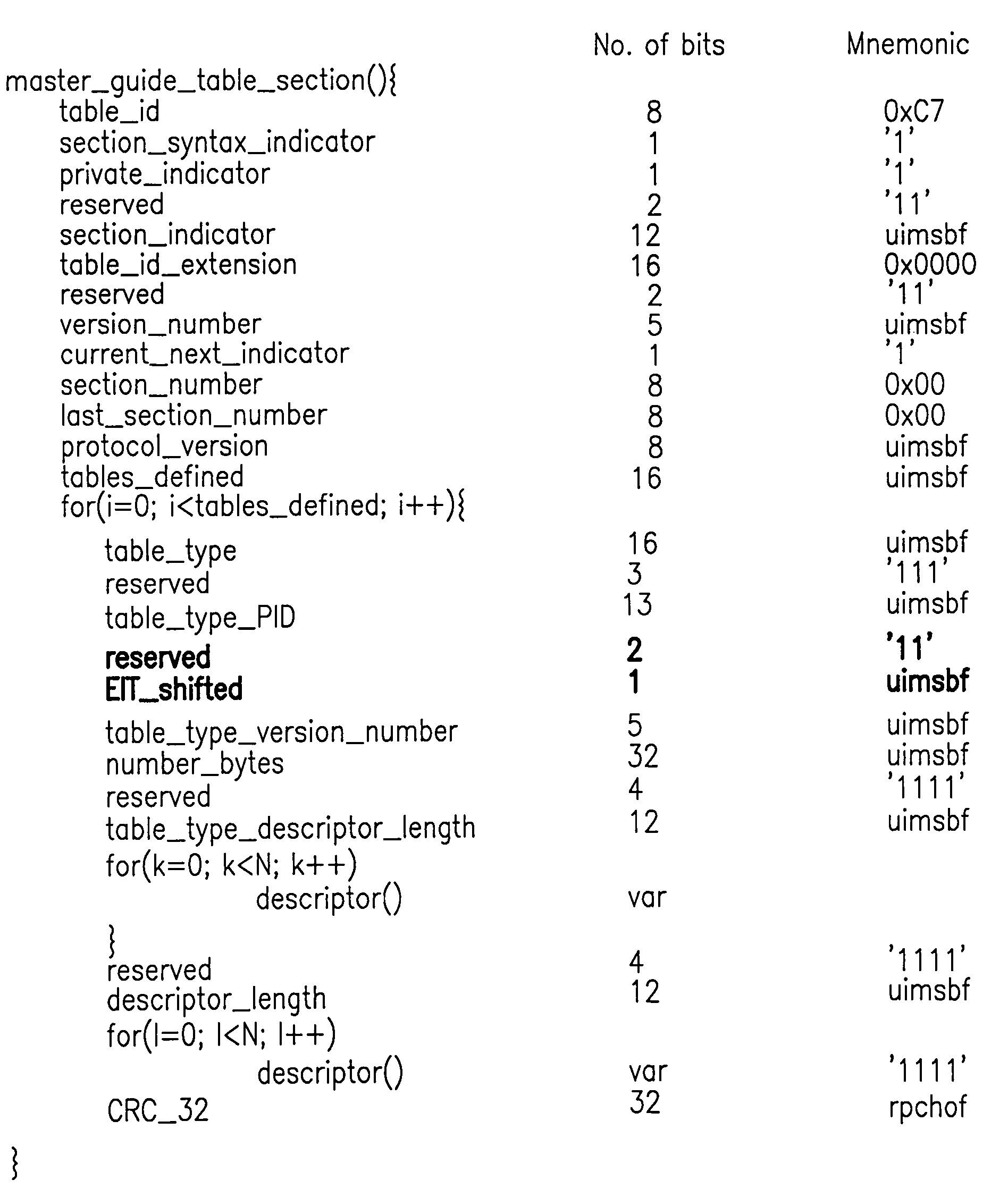
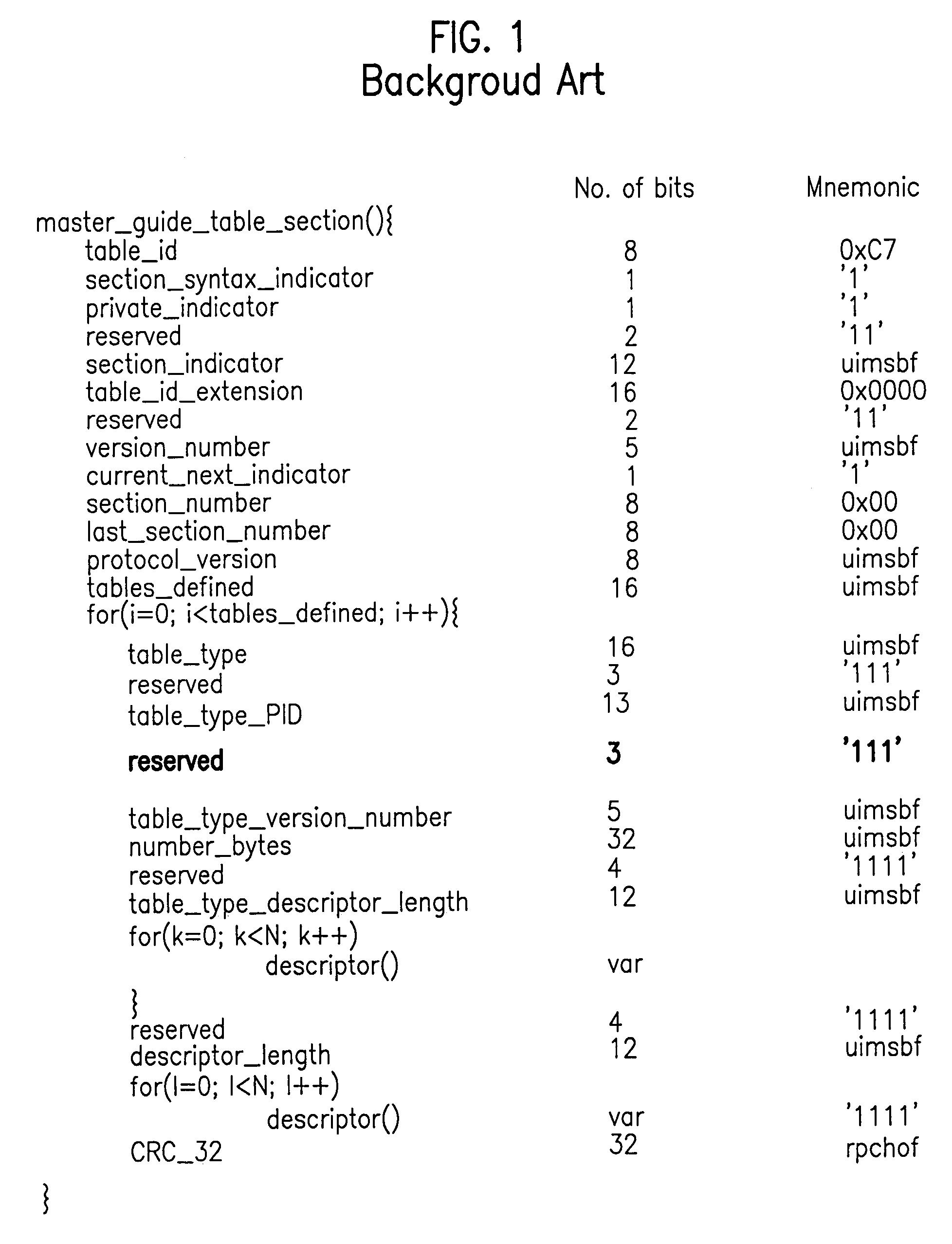
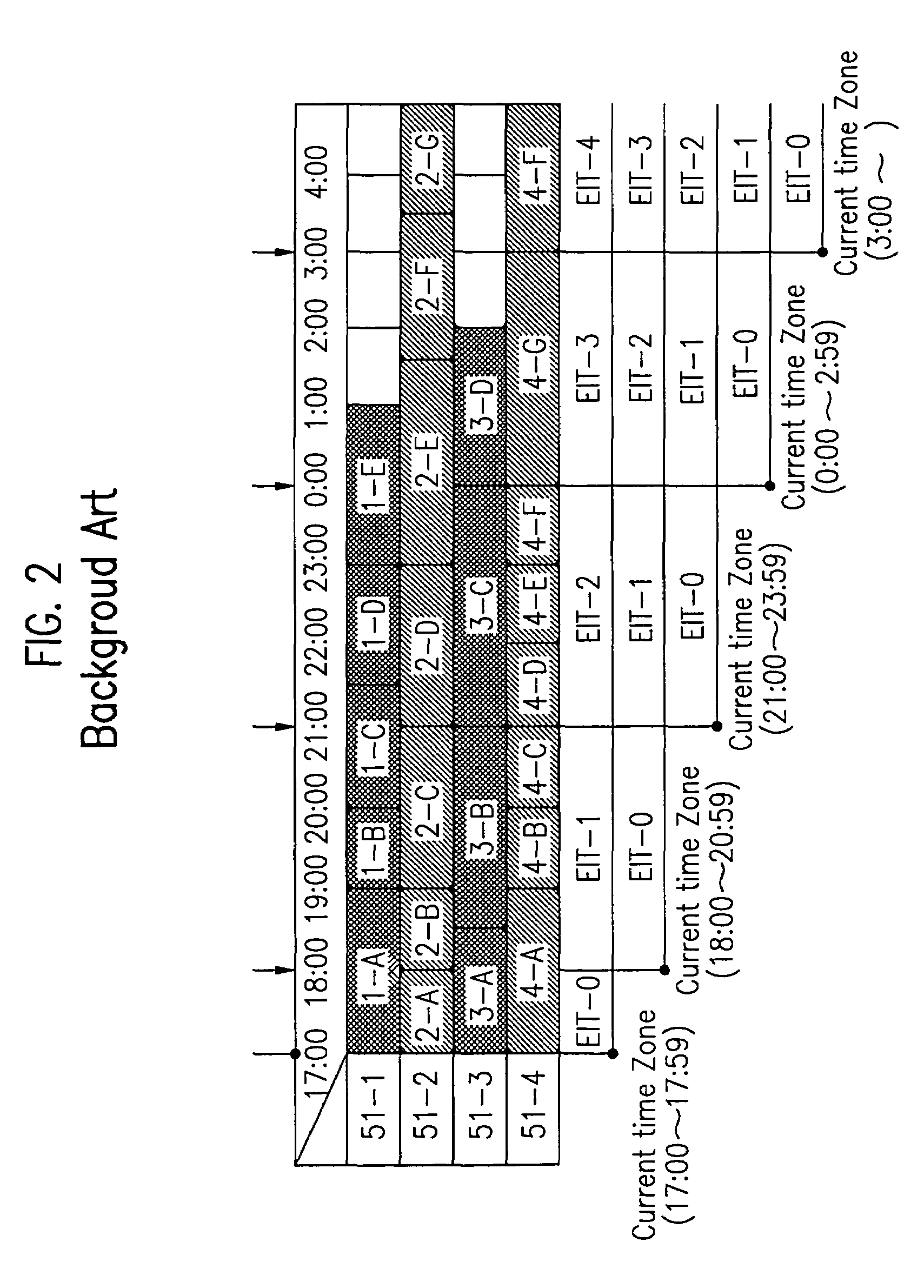
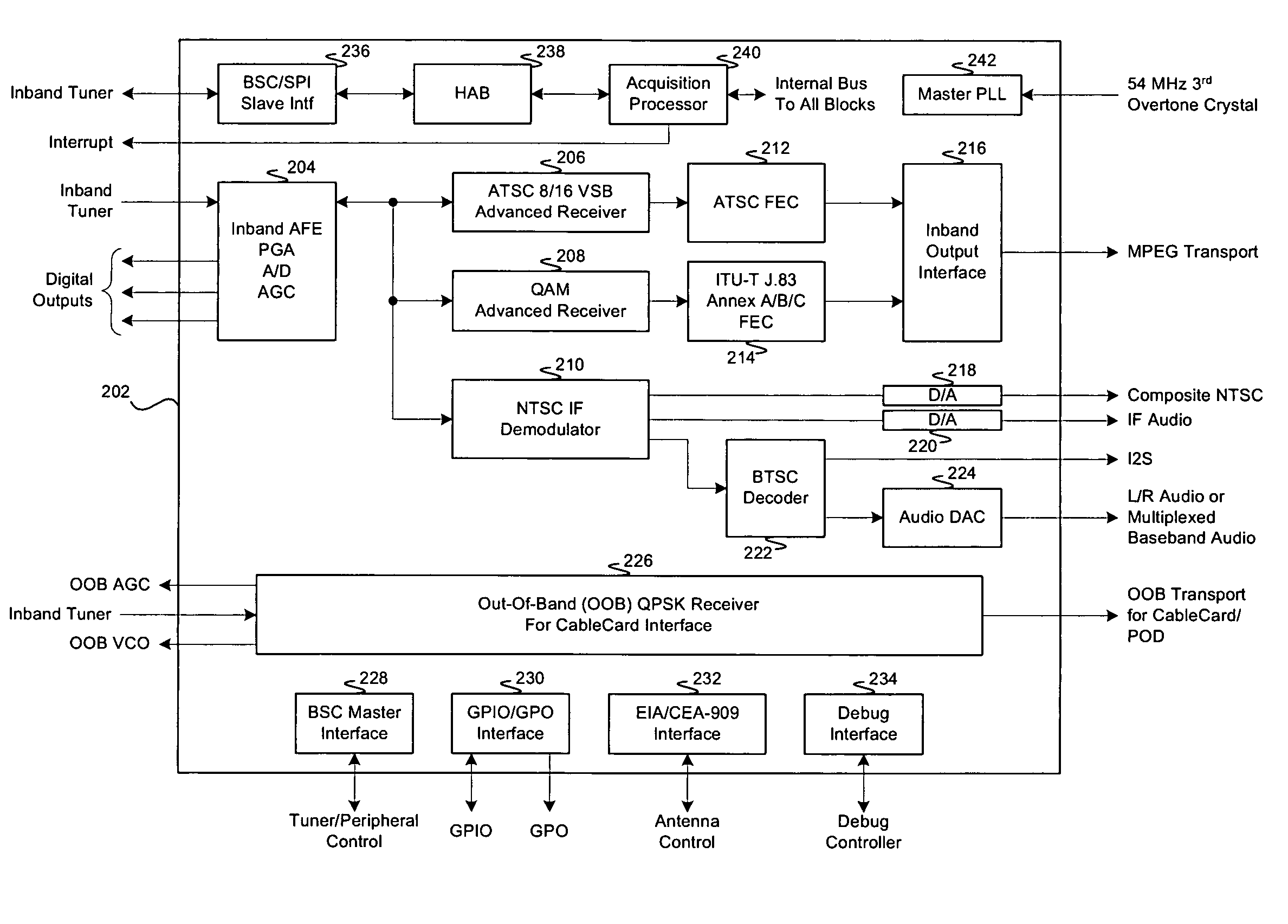
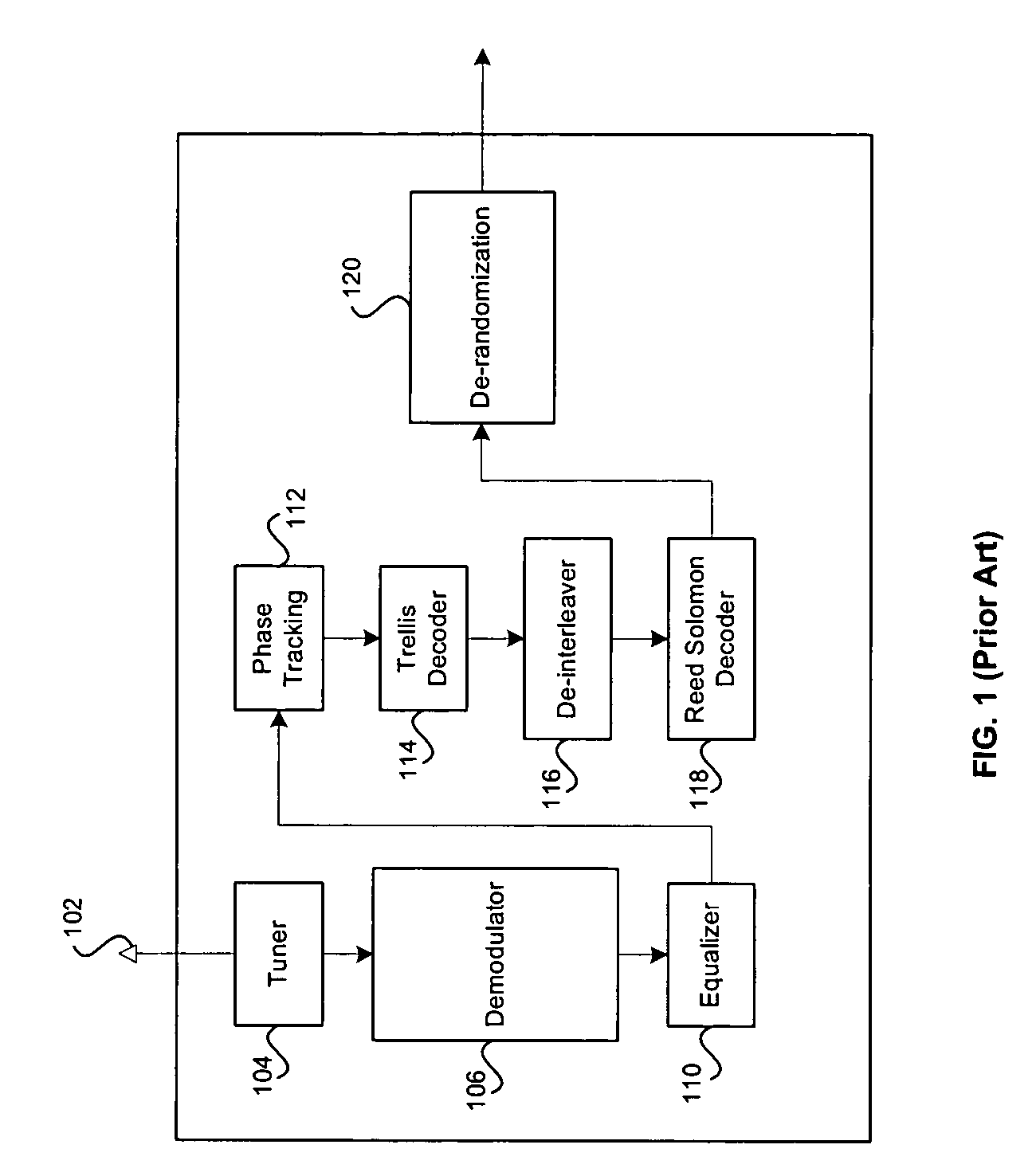
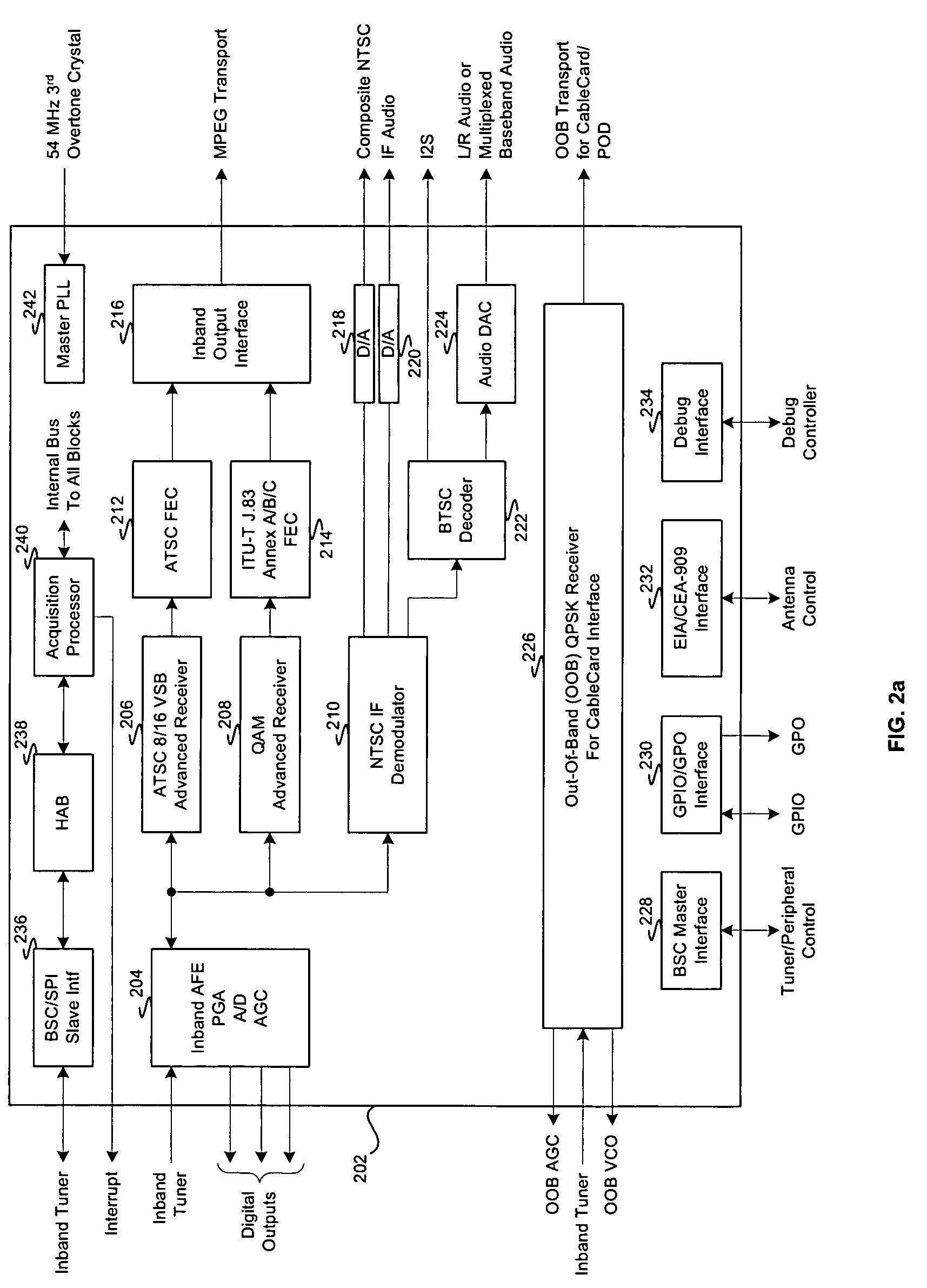
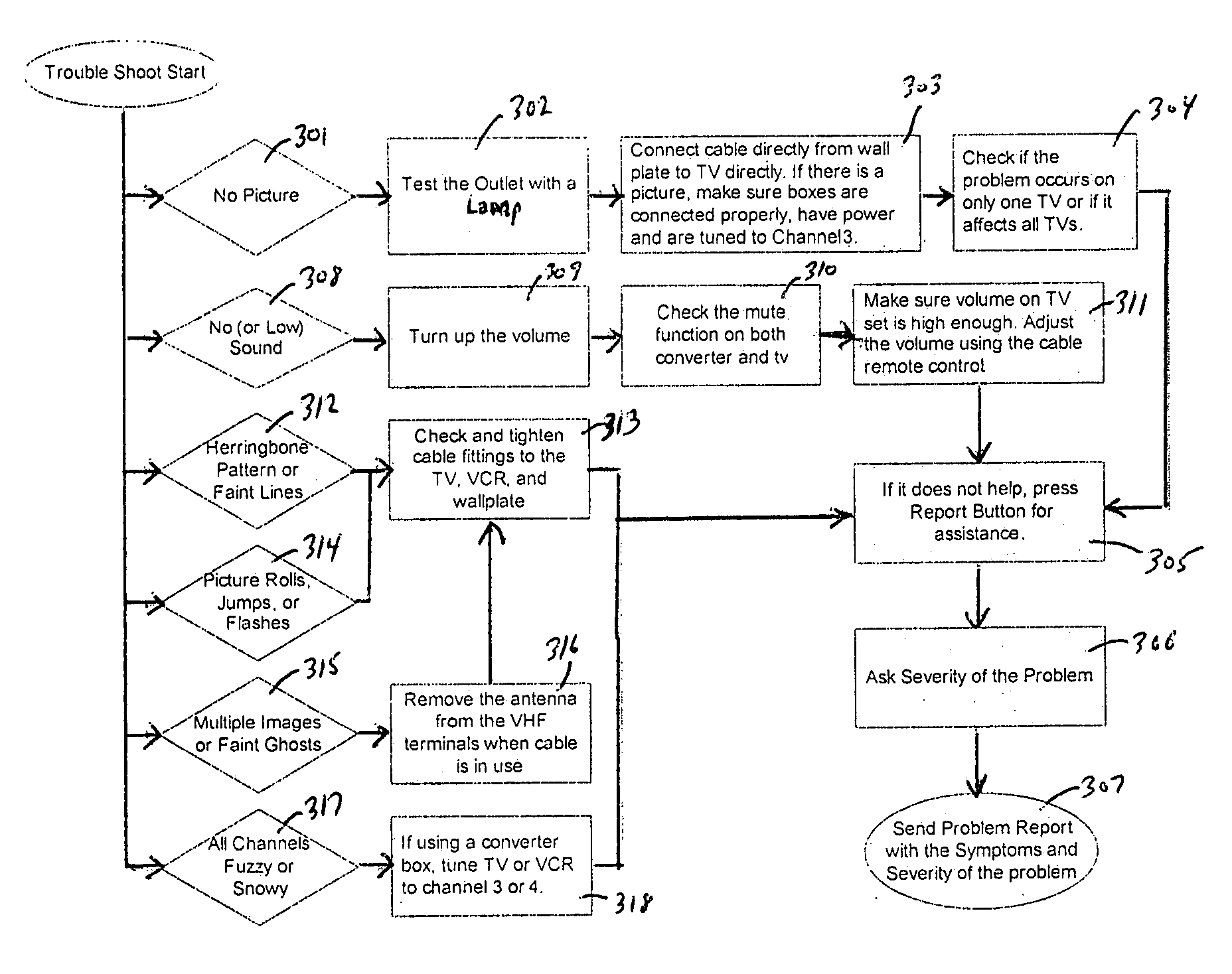
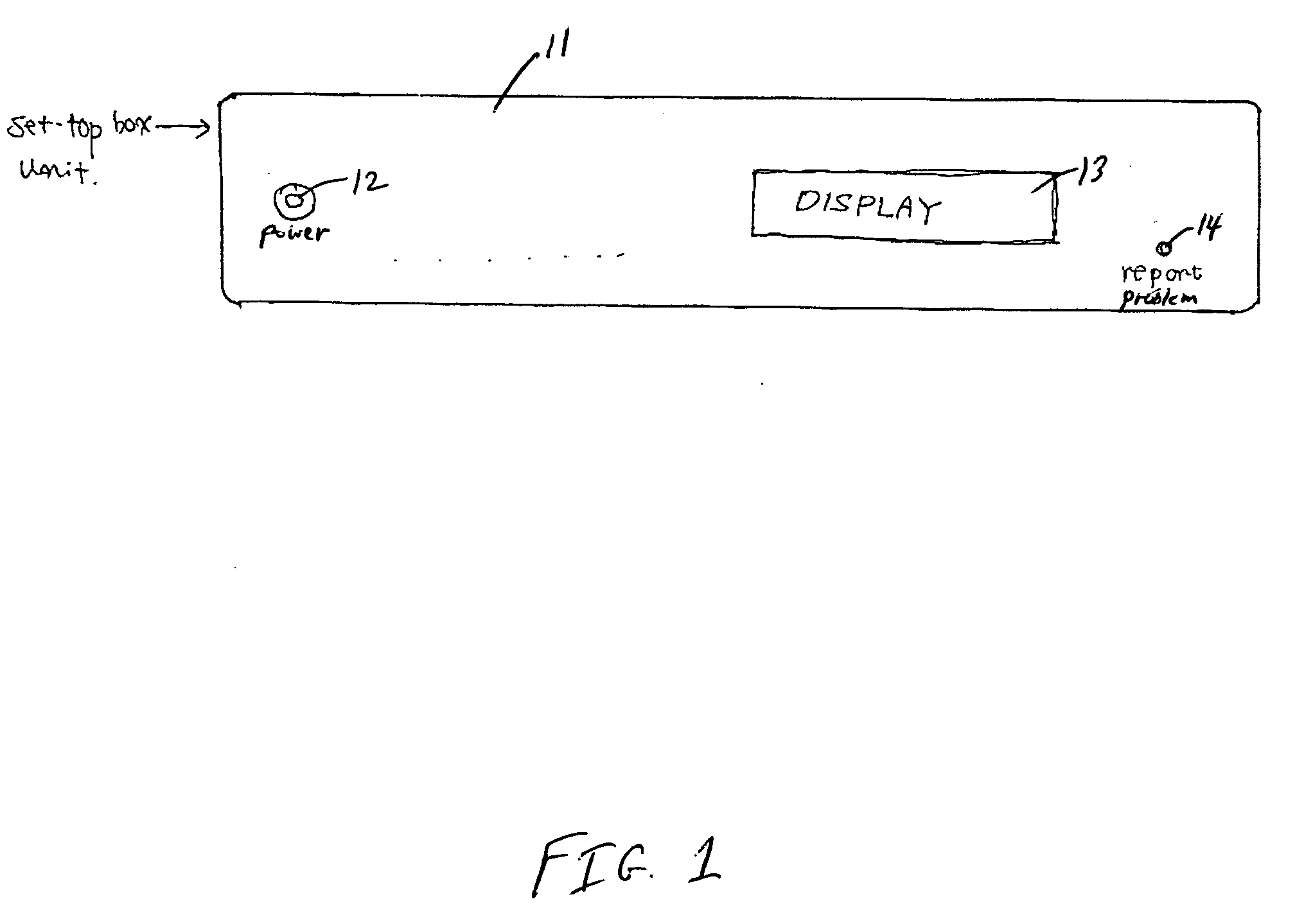
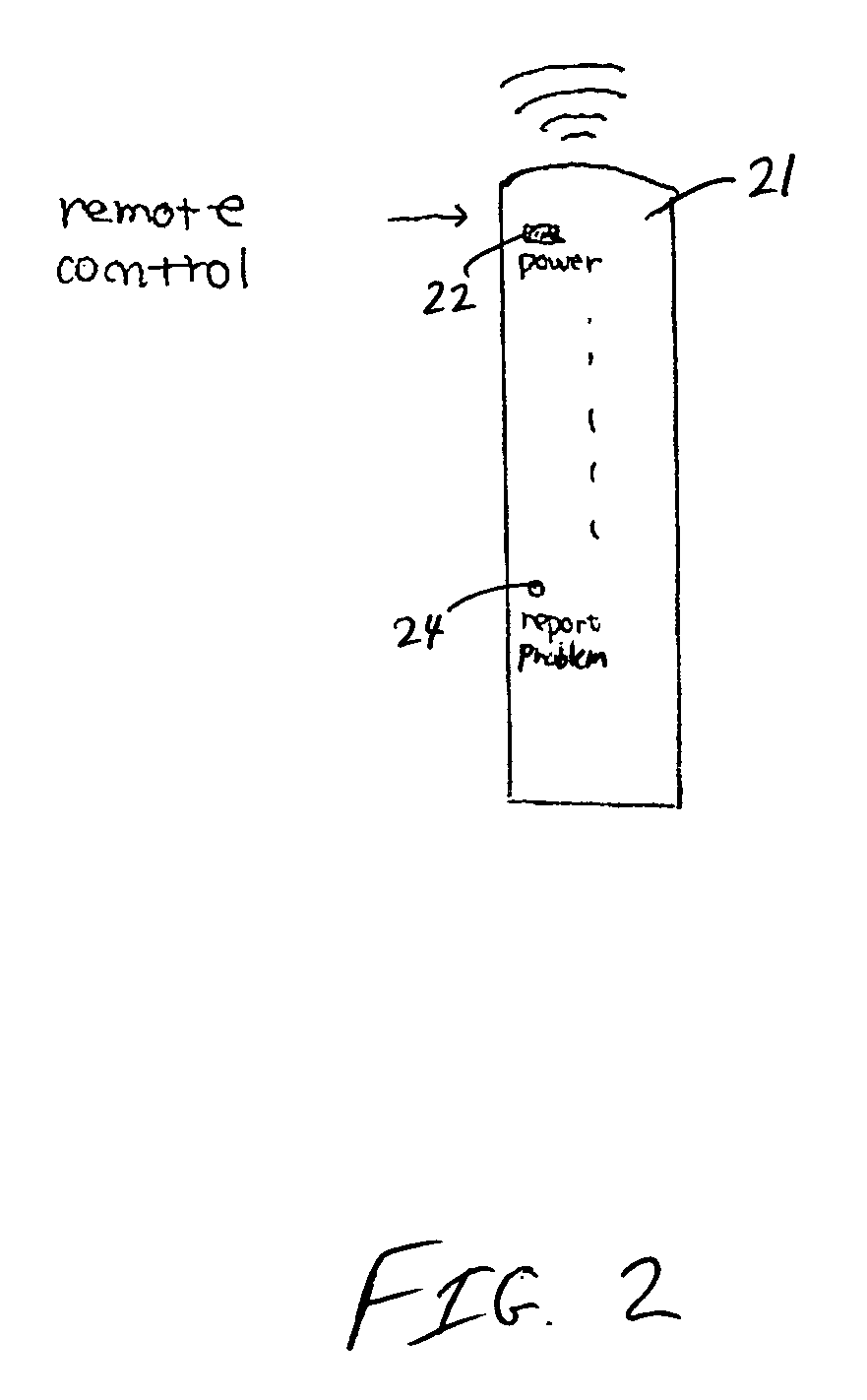
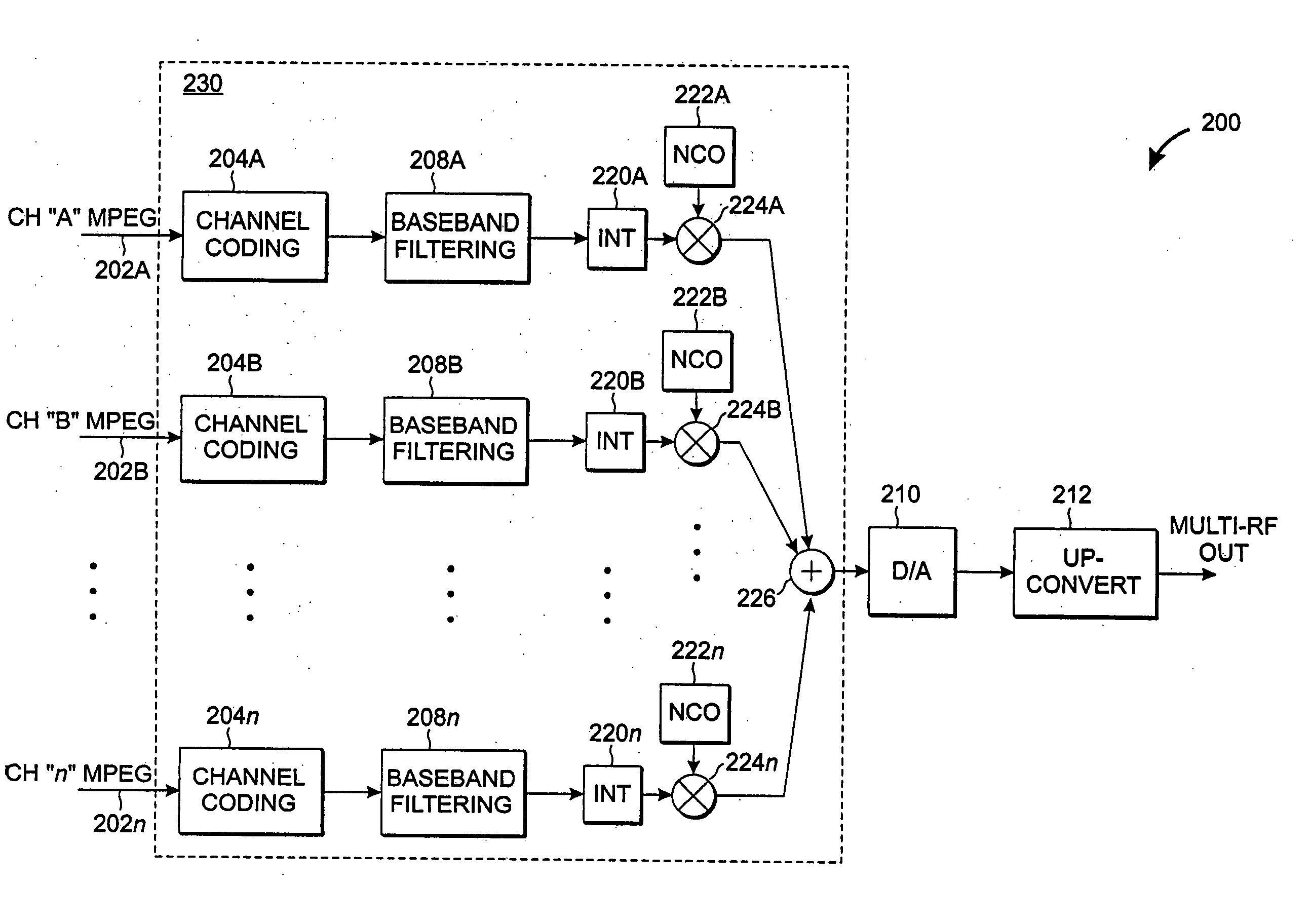
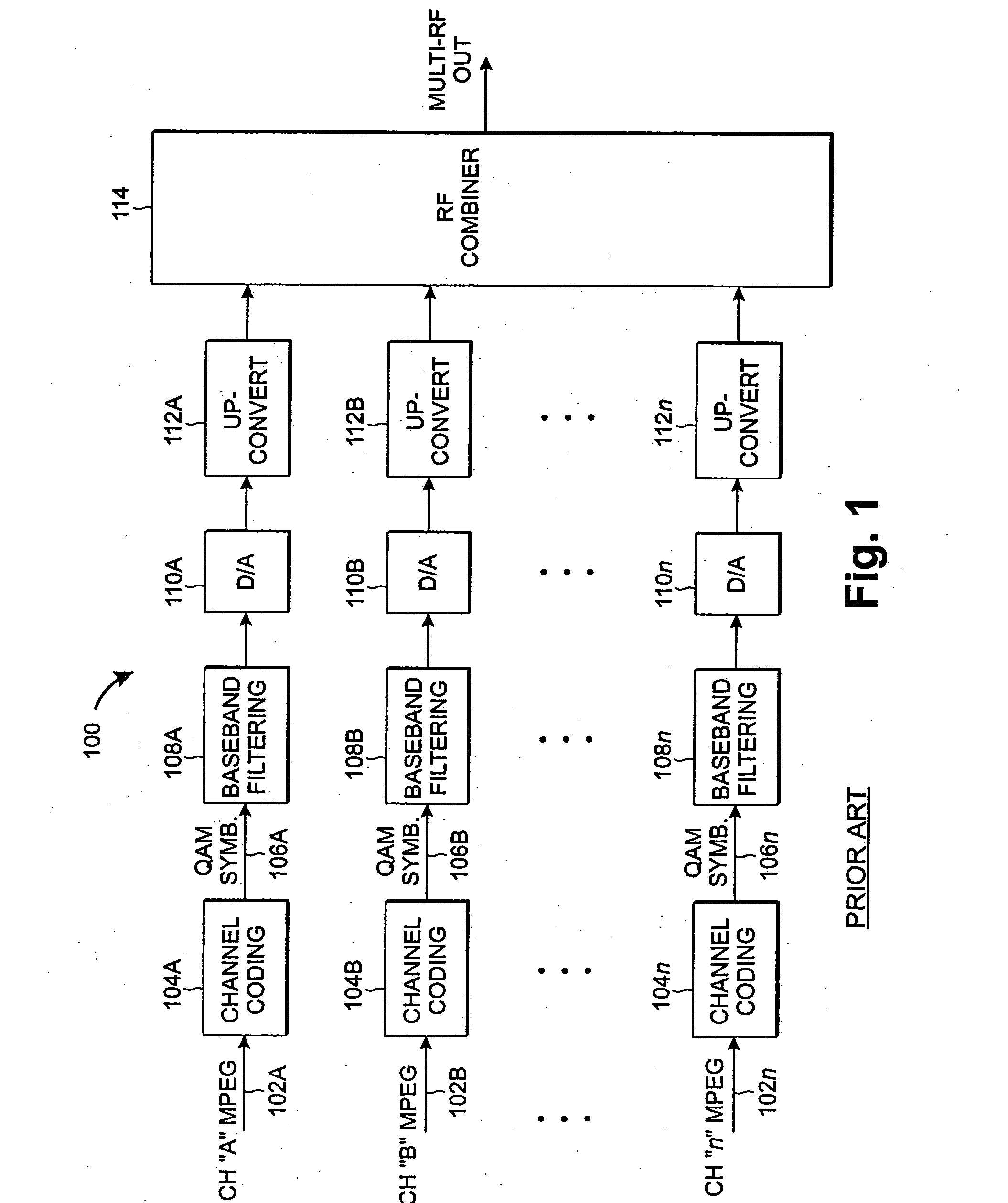
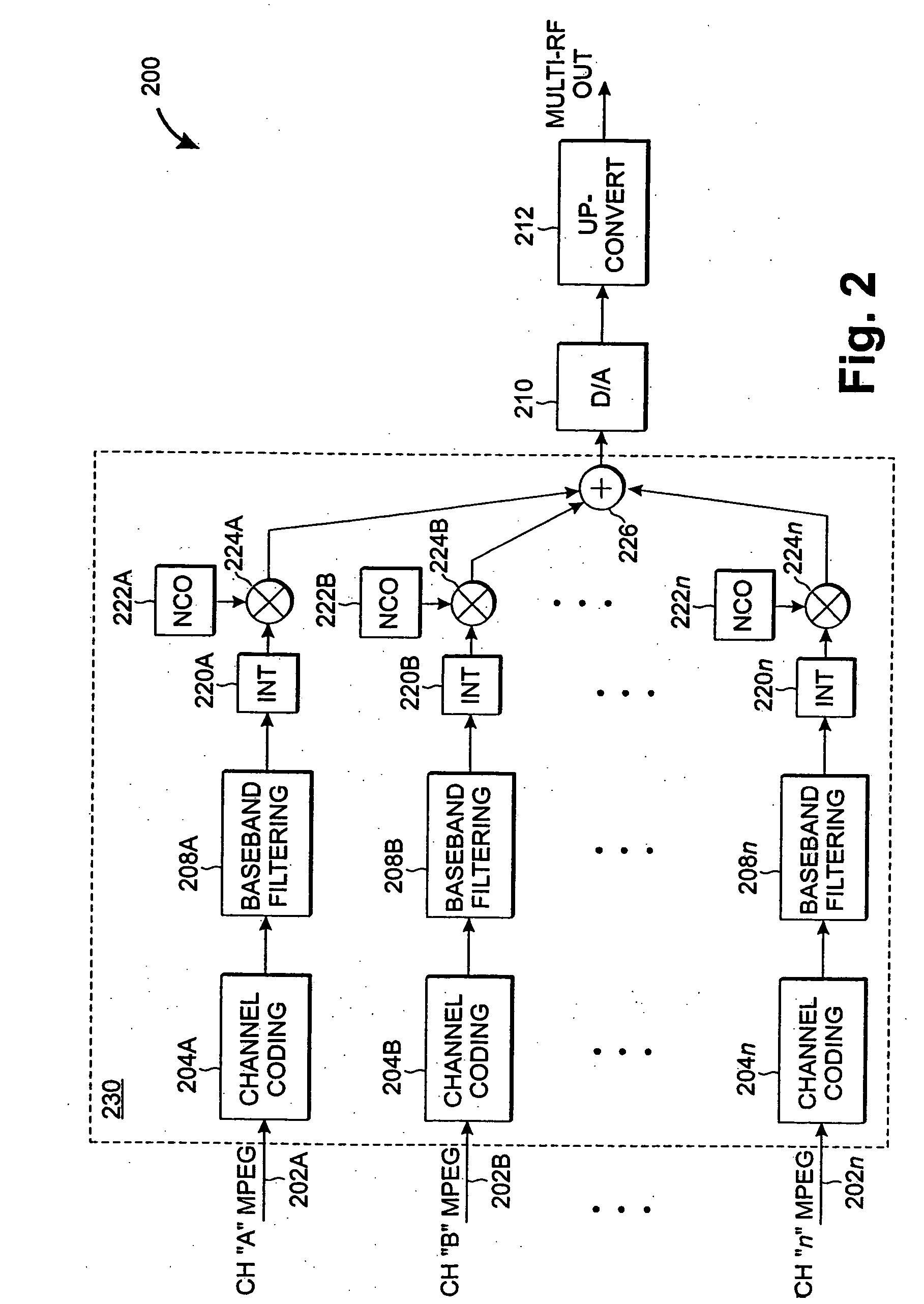
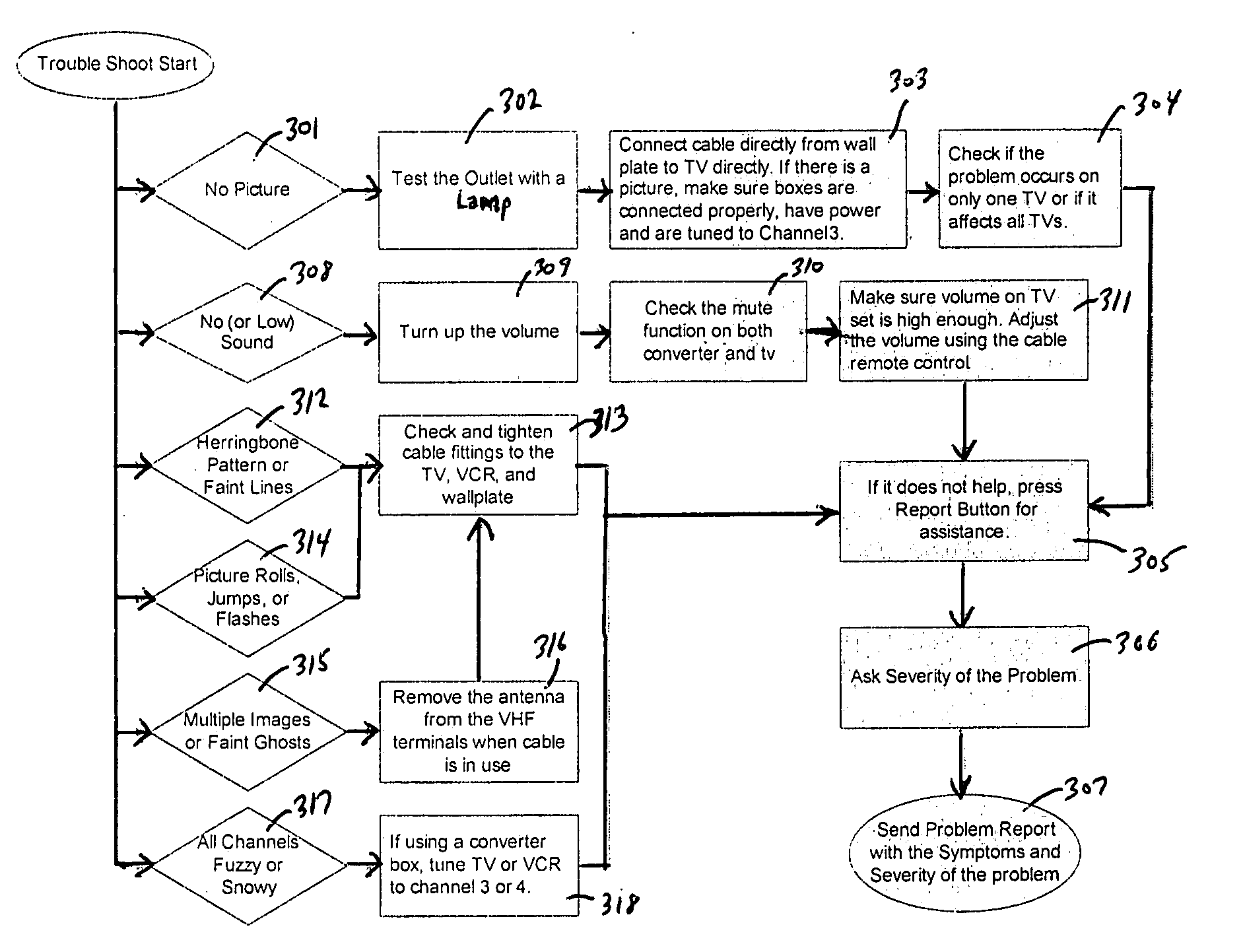
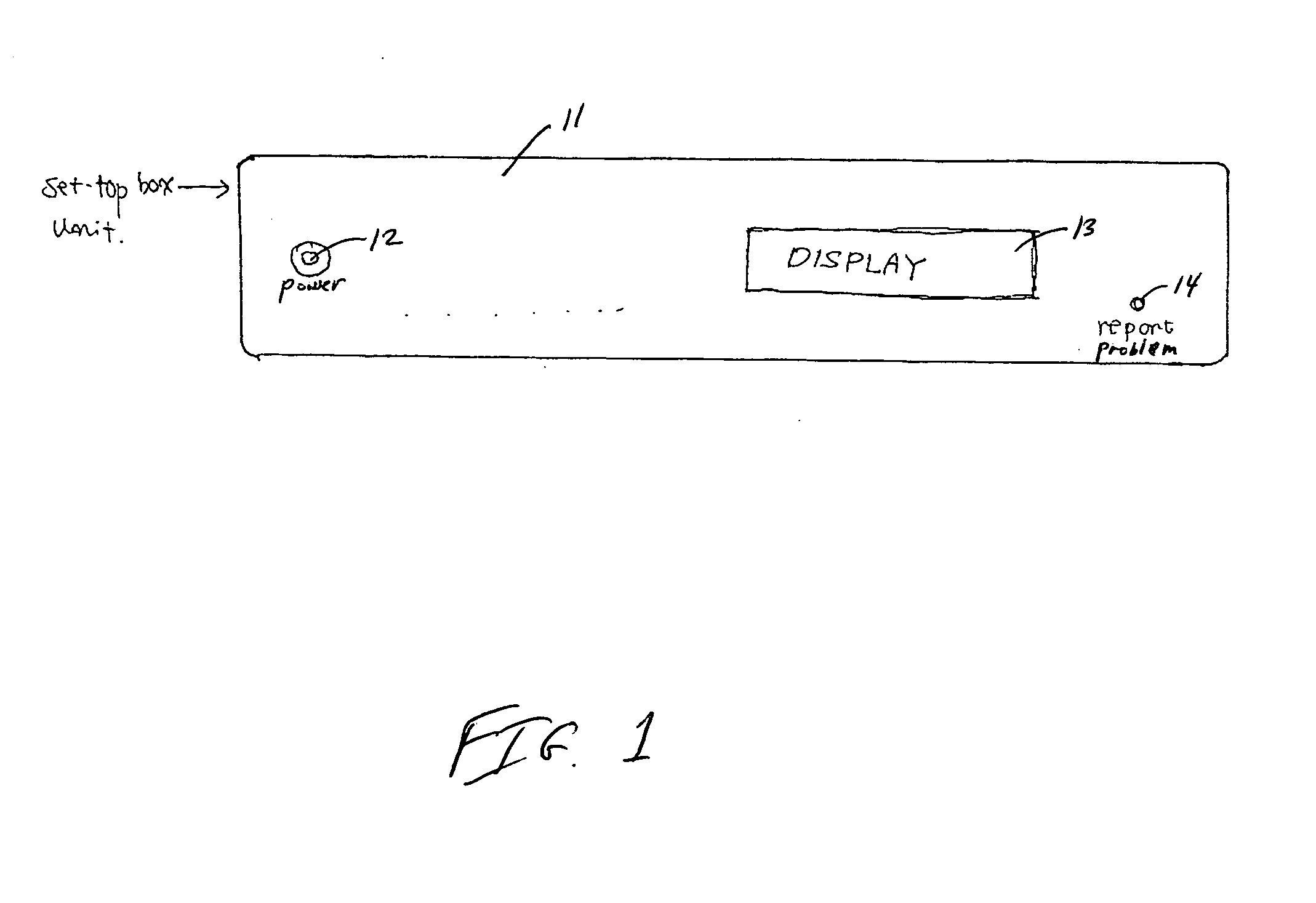
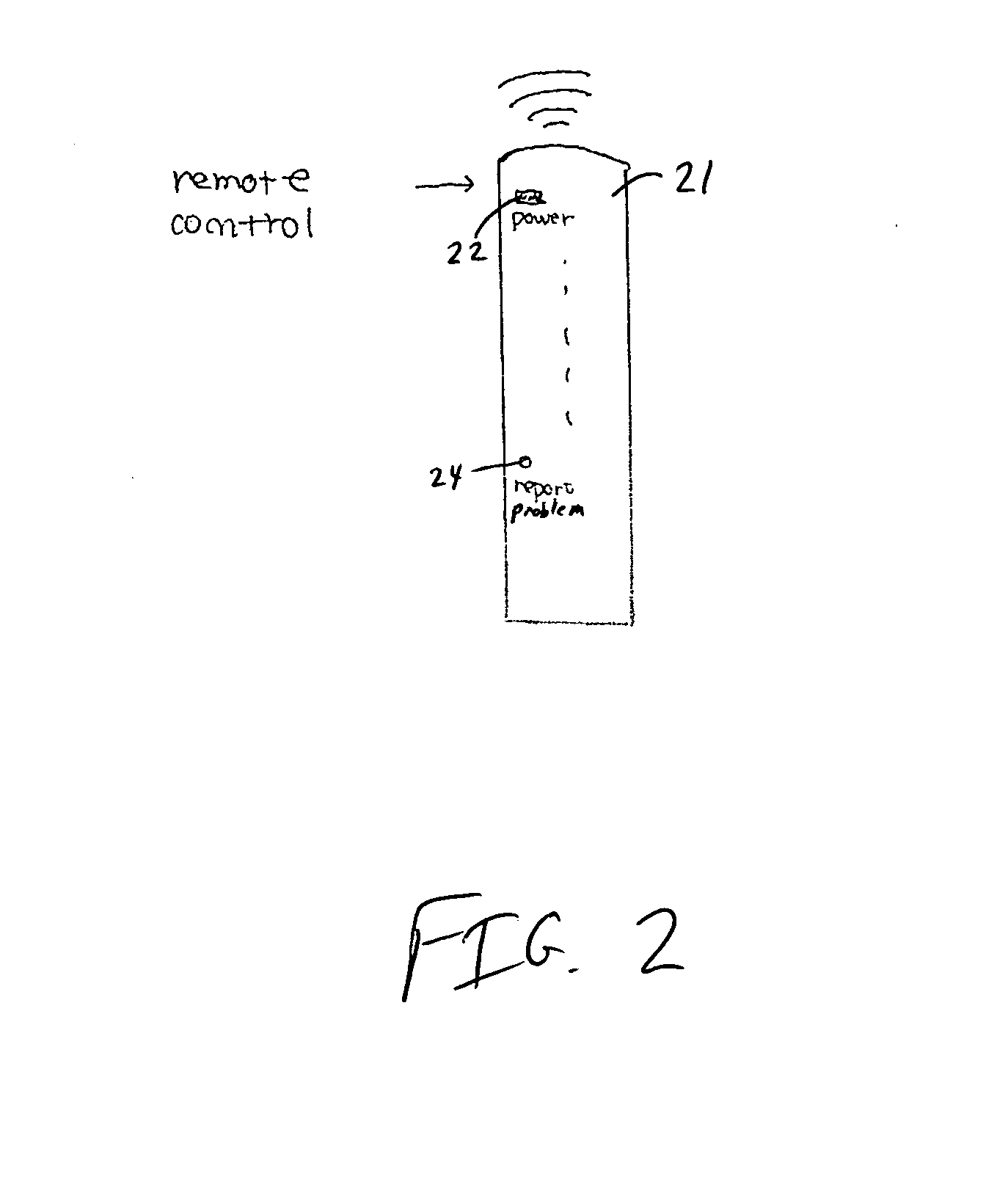
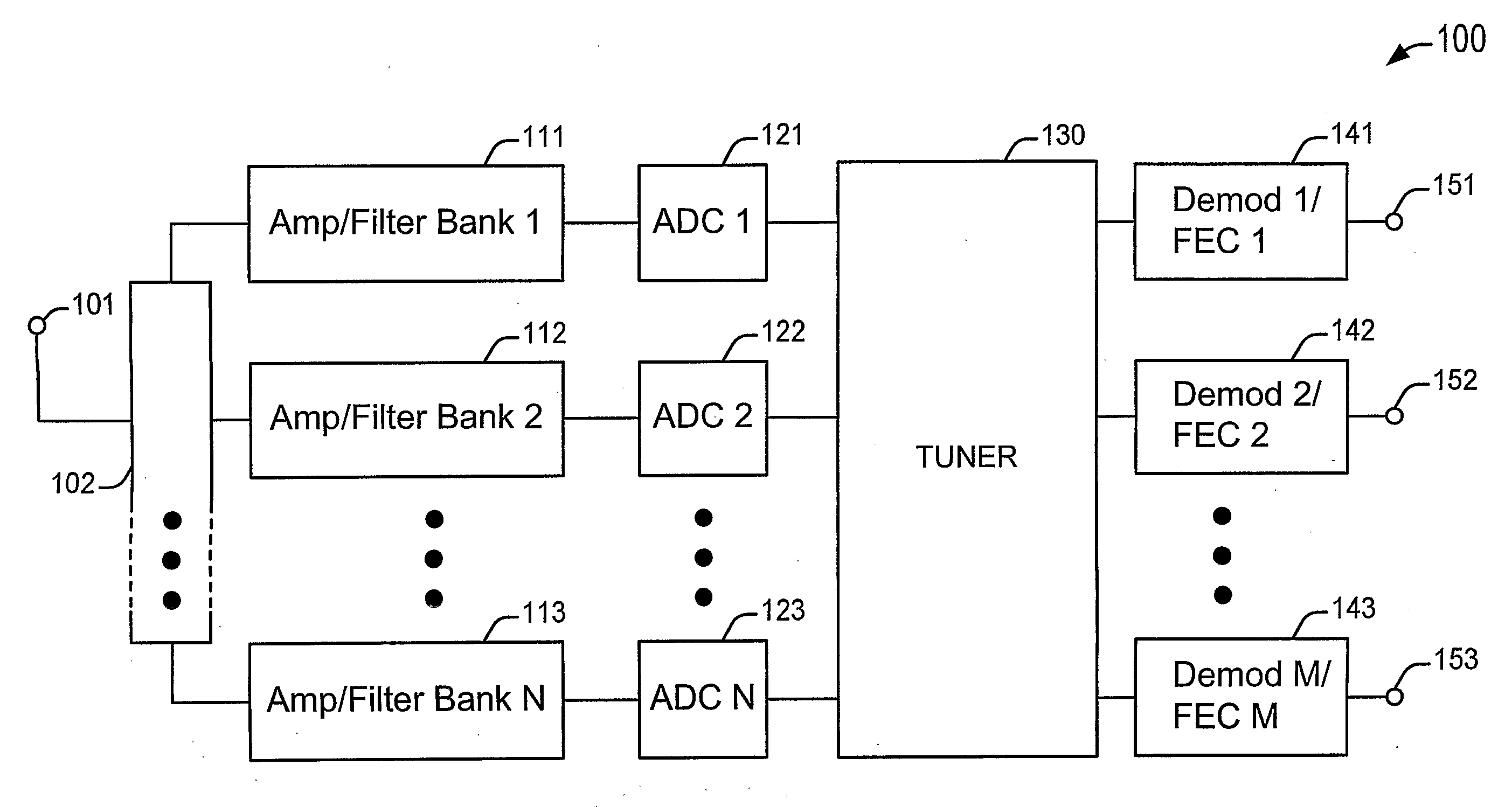
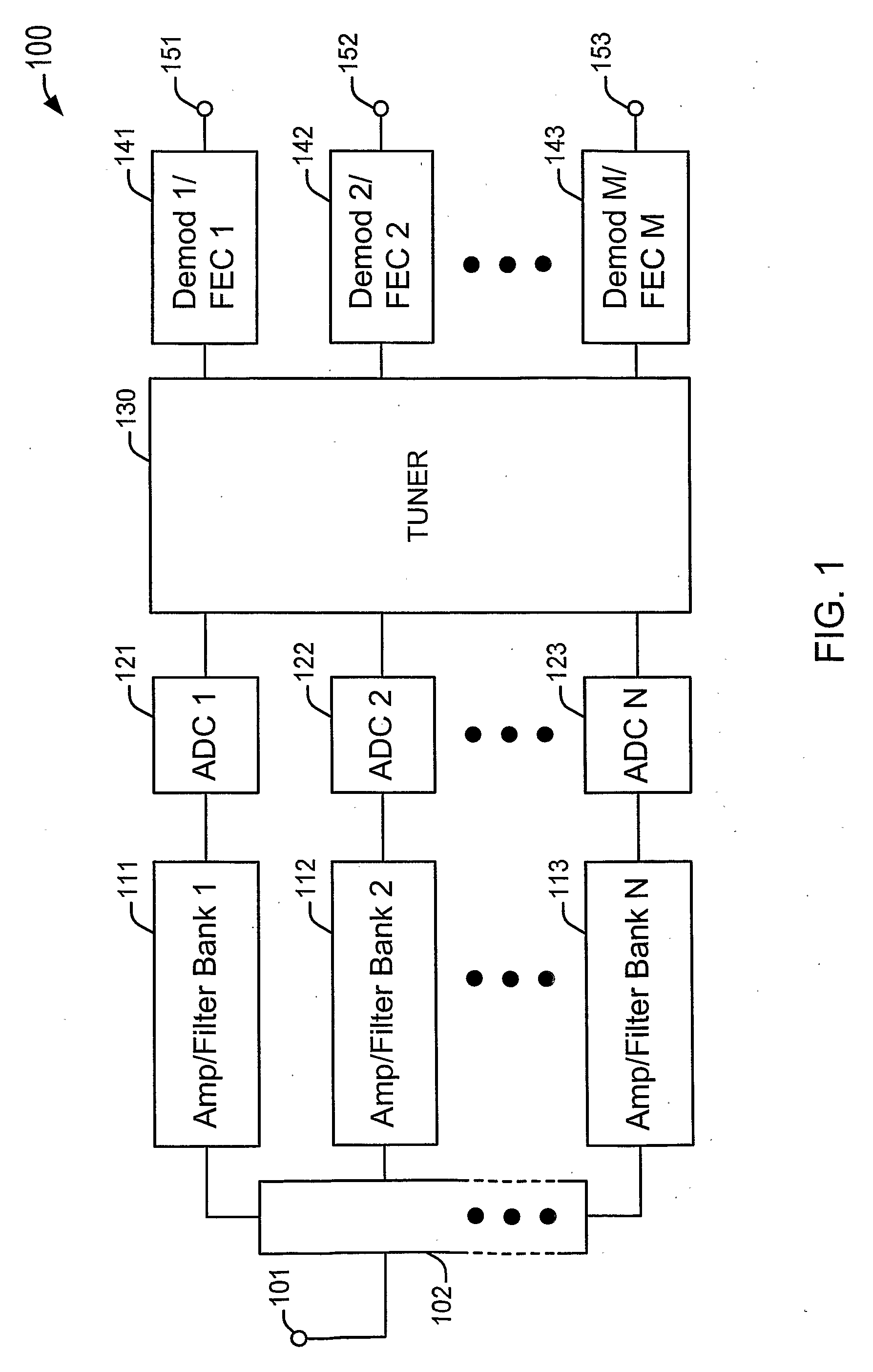
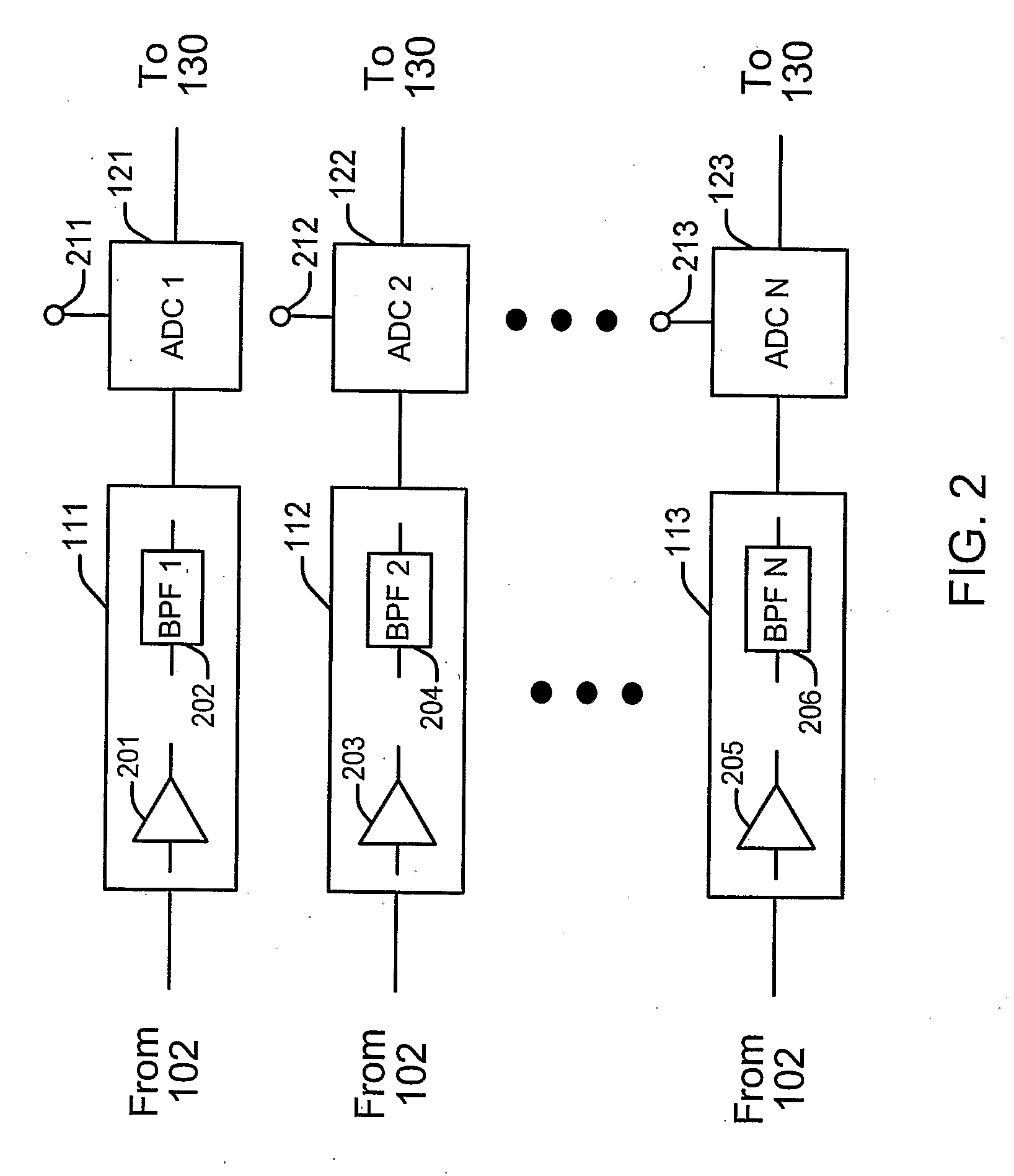
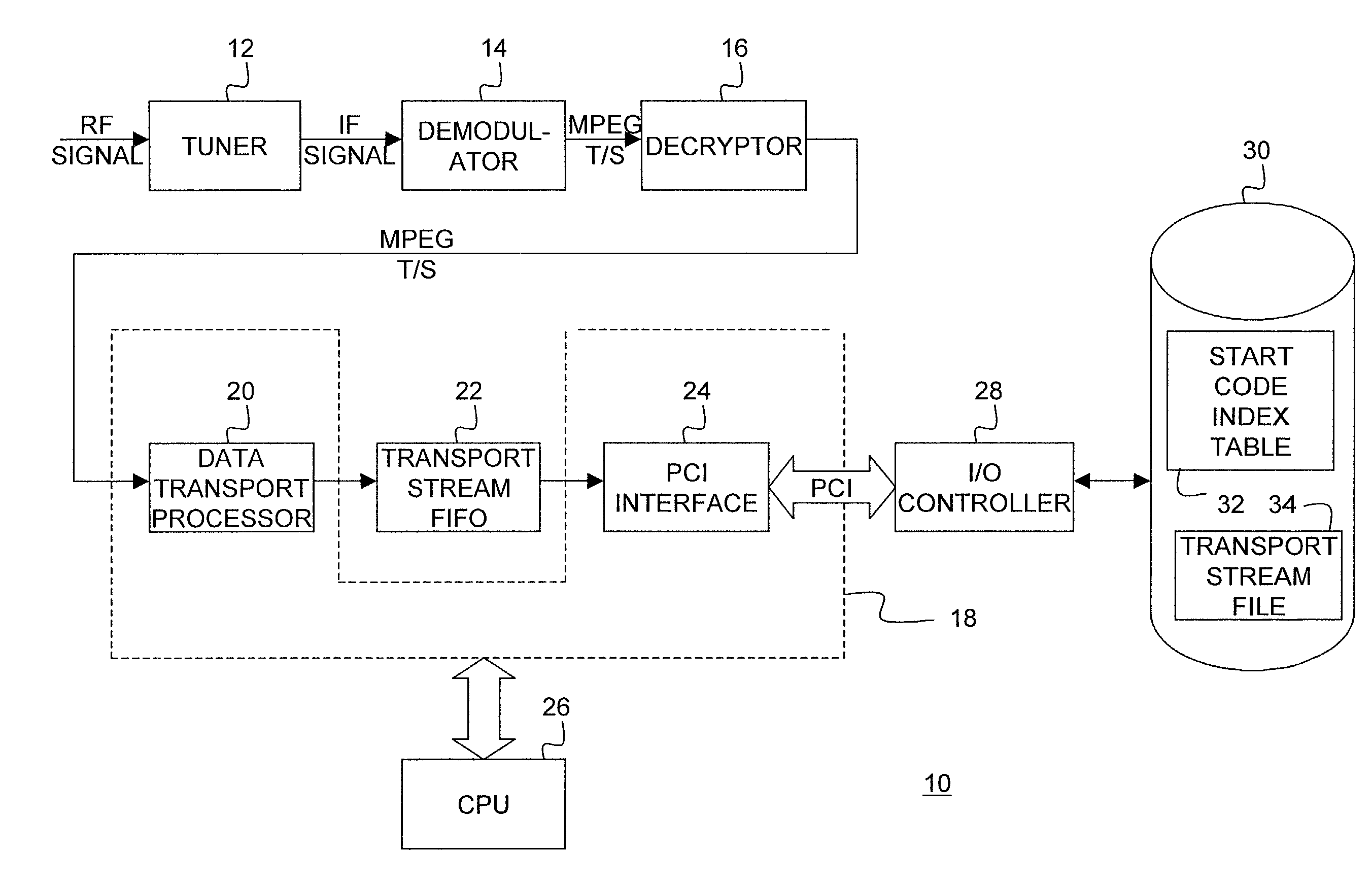
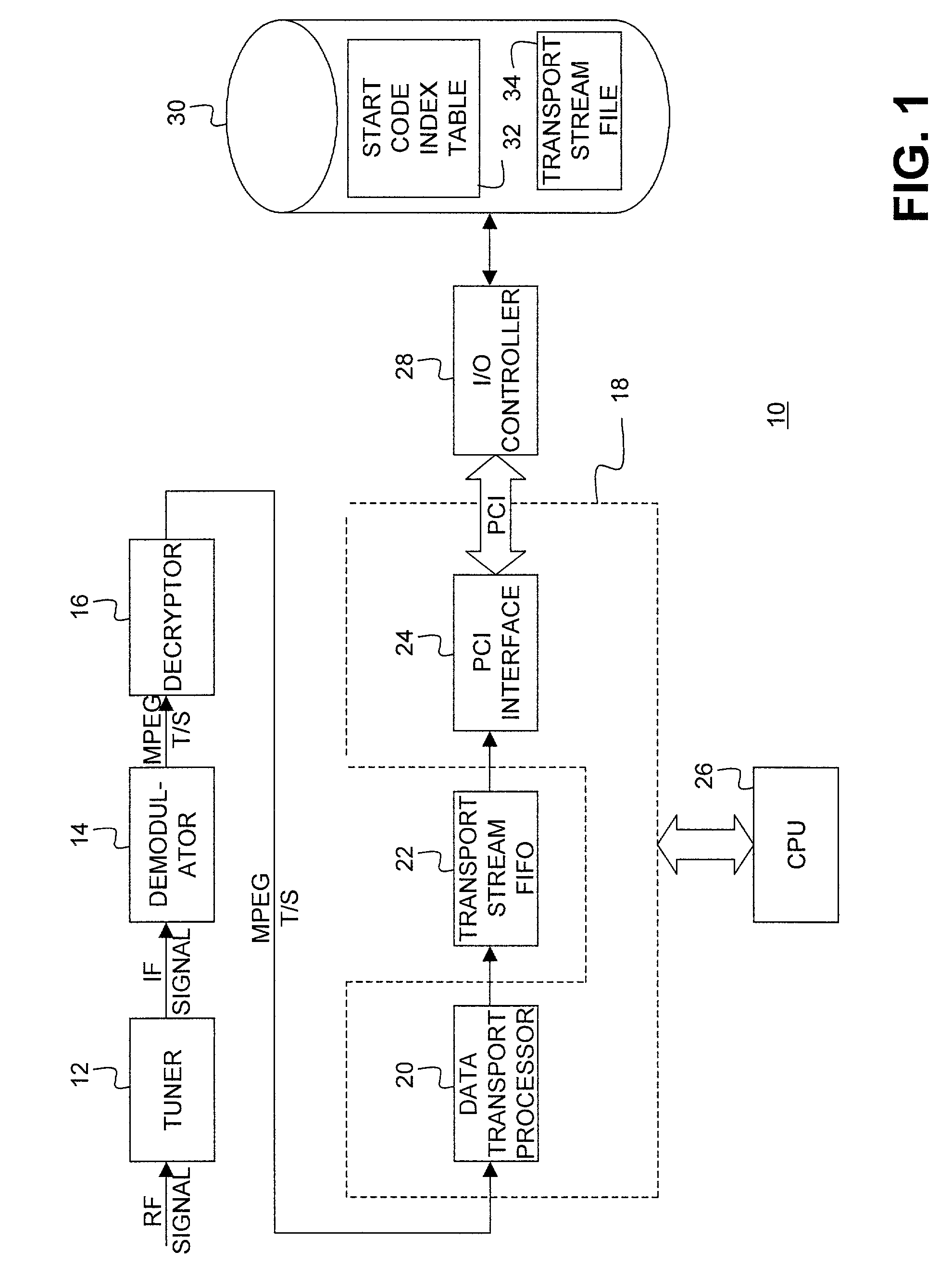
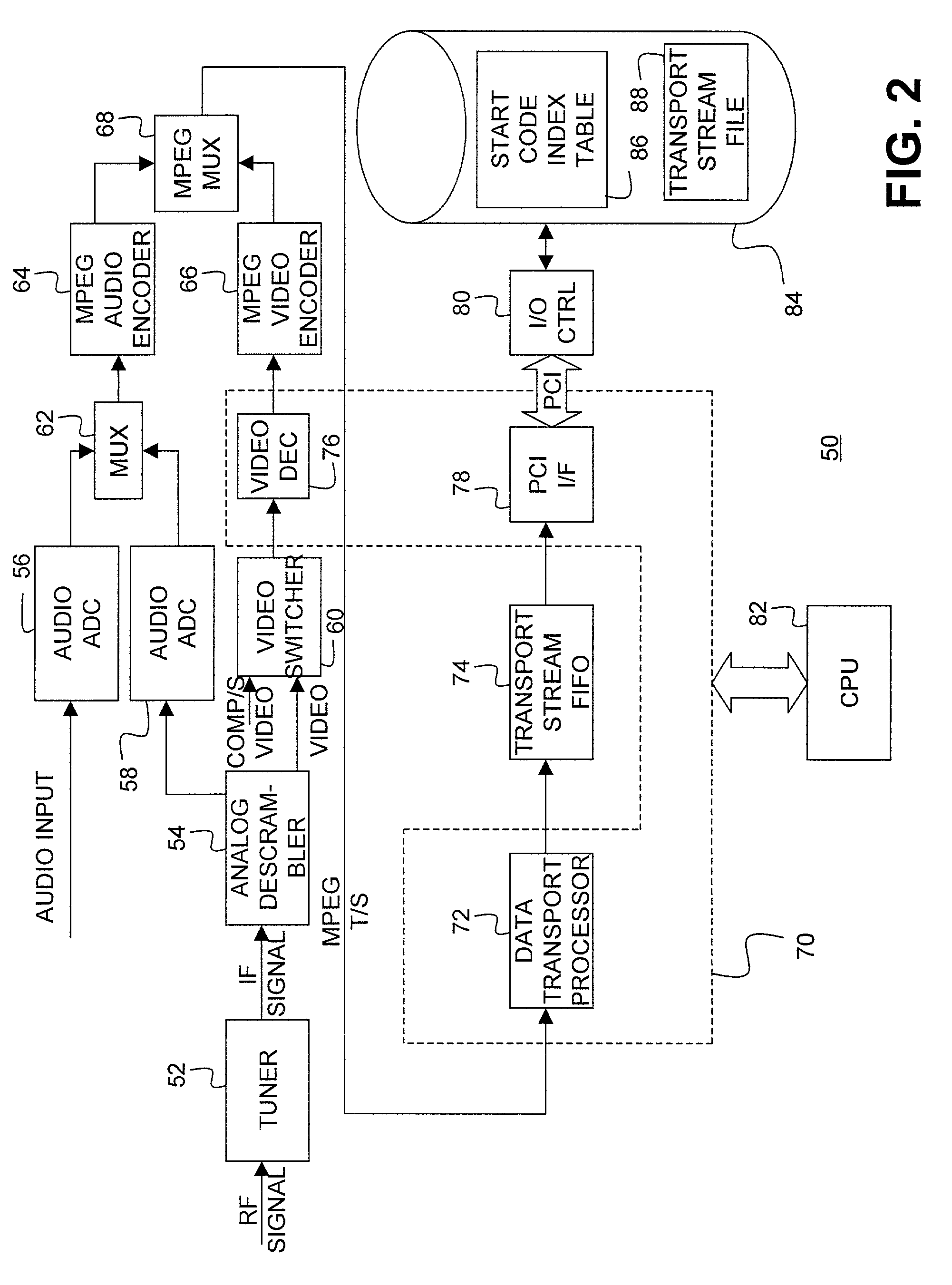
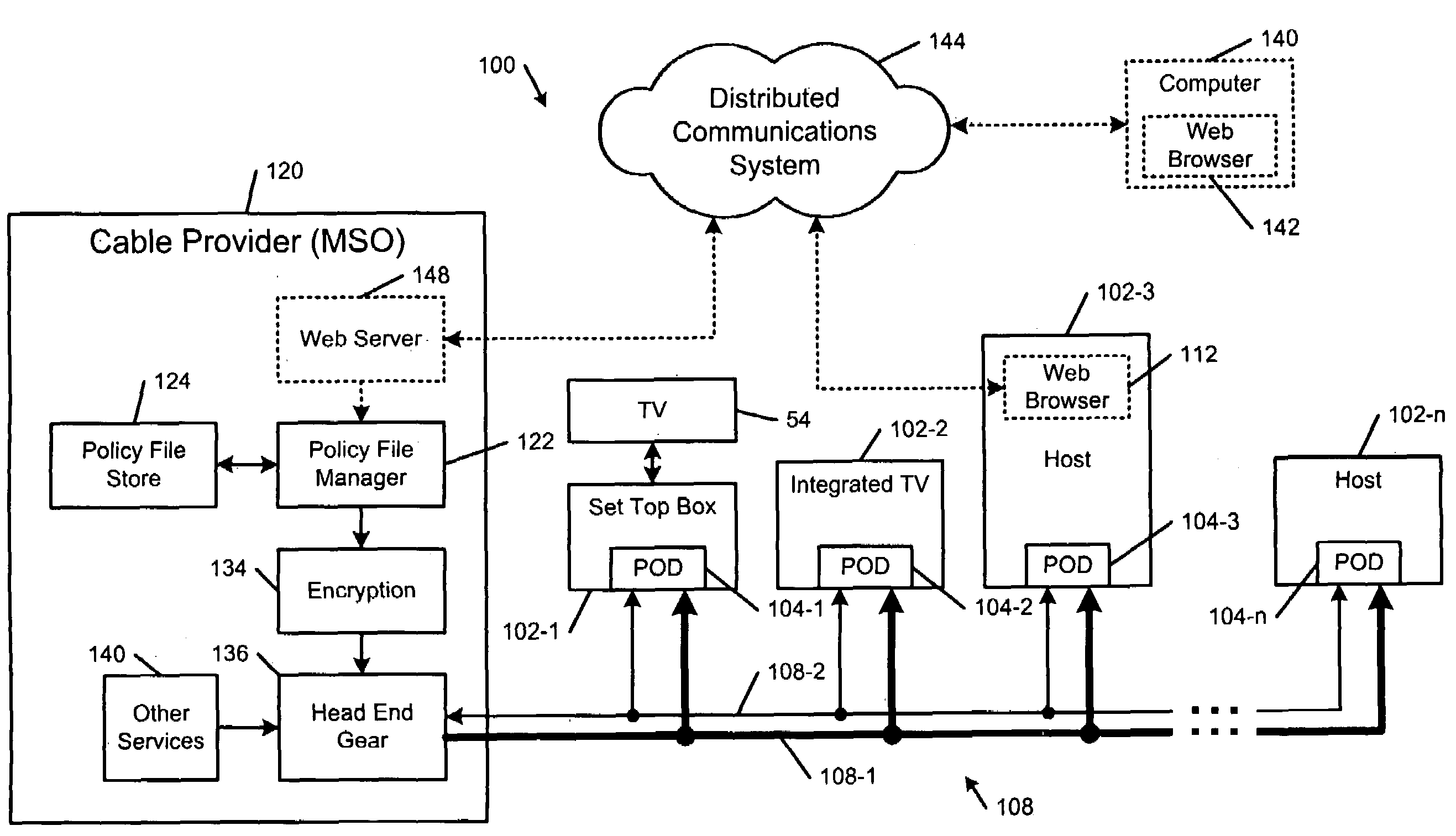
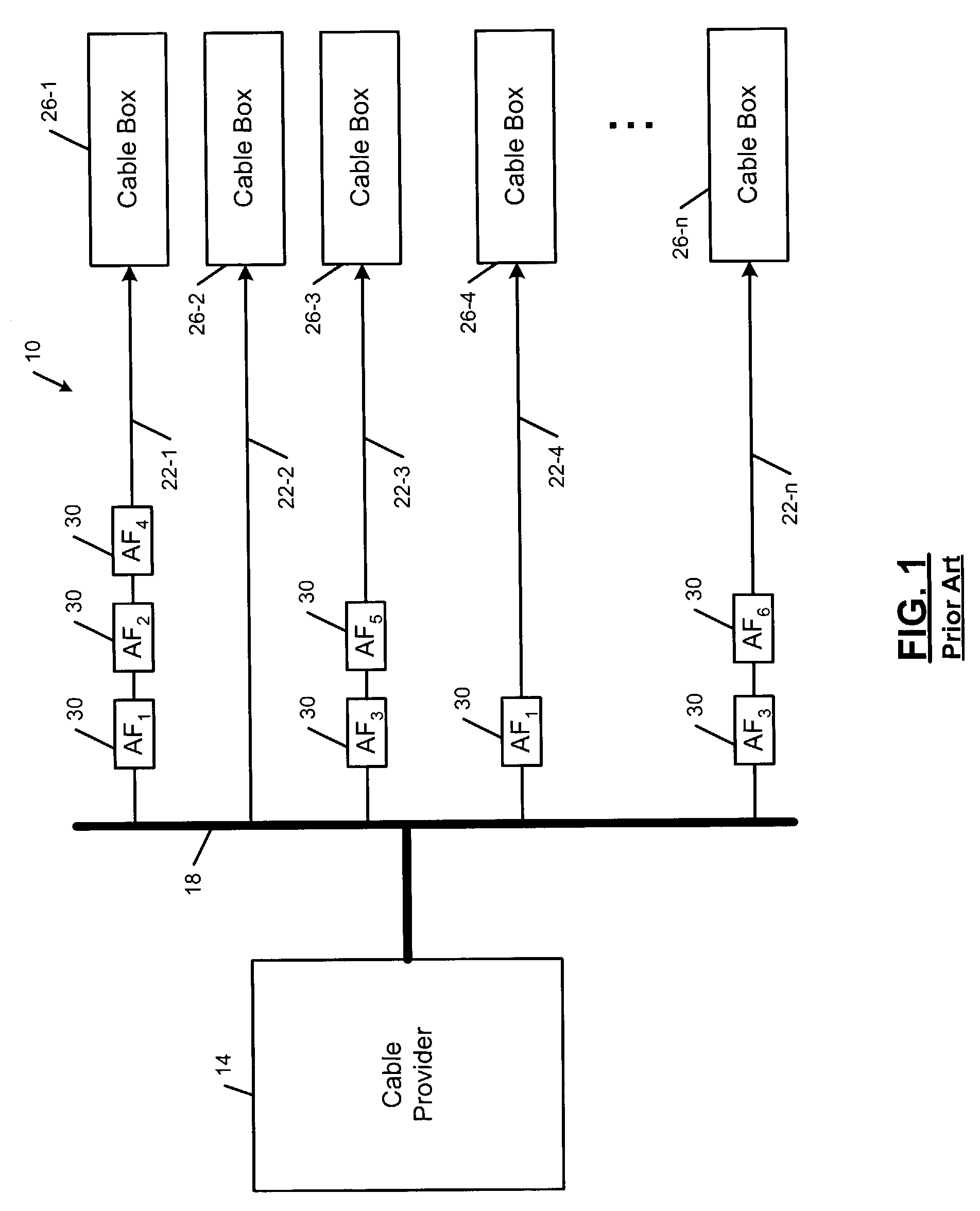
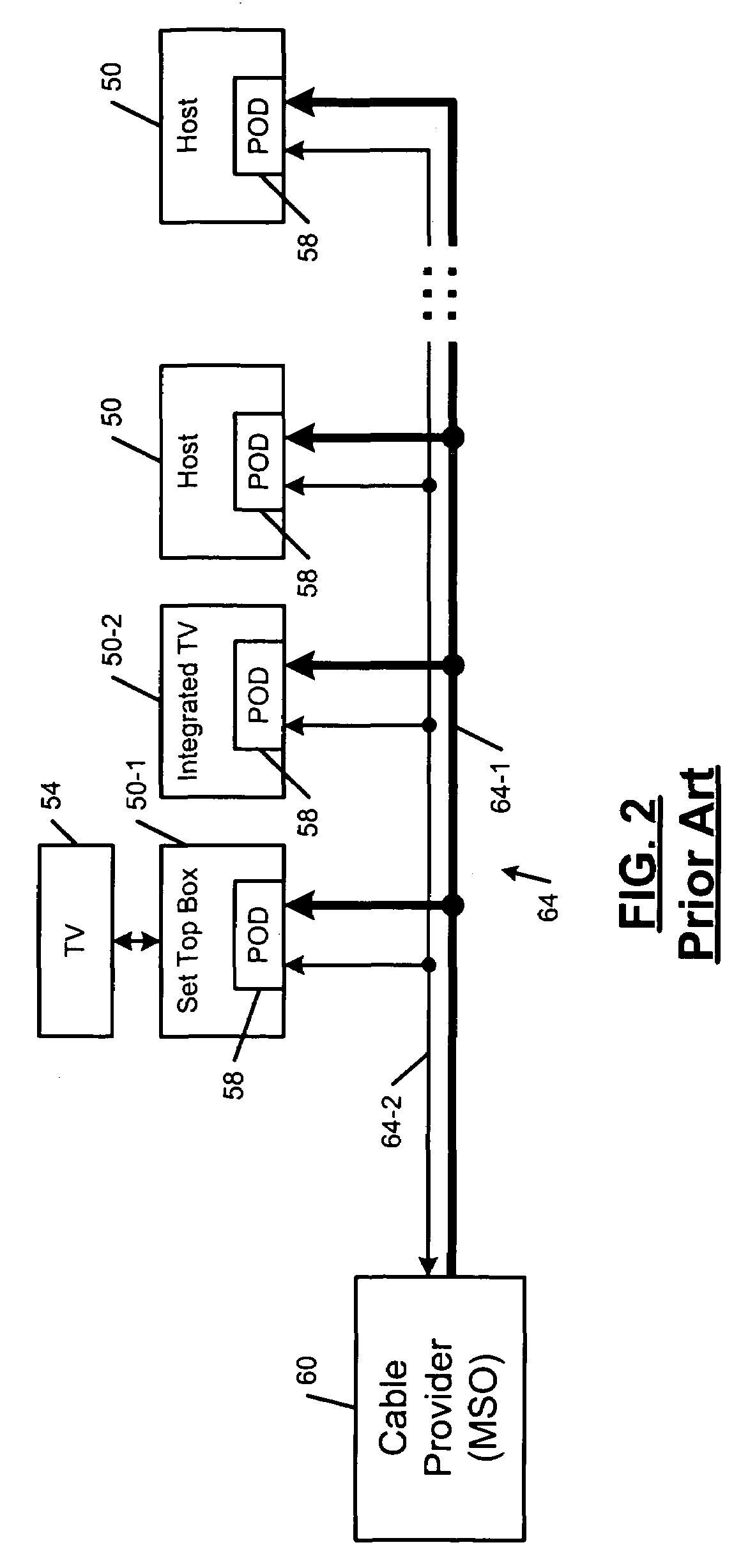
![[cable signal distribution system] [cable signal distribution system]](https://images-eureka.patsnap.com/patent_img/ae462c00-7ec4-4db4-b68c-c43325889ce8/US20050044573A1-20050224-D00000.png)
![[cable signal distribution system] [cable signal distribution system]](https://images-eureka.patsnap.com/patent_img/ae462c00-7ec4-4db4-b68c-c43325889ce8/US20050044573A1-20050224-D00001.png)
![[cable signal distribution system] [cable signal distribution system]](https://images-eureka.patsnap.com/patent_img/ae462c00-7ec4-4db4-b68c-c43325889ce8/US20050044573A1-20050224-D00002.png)
